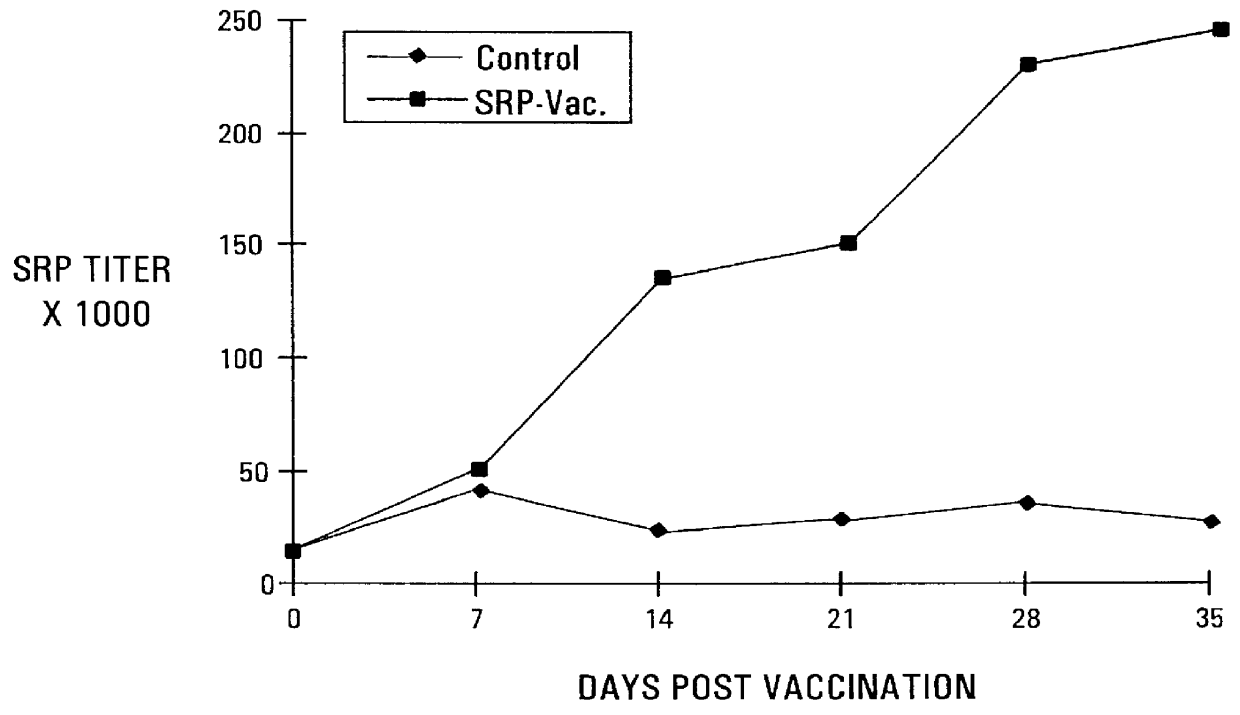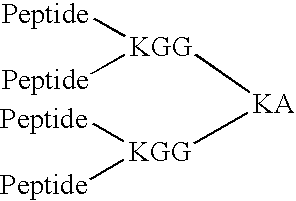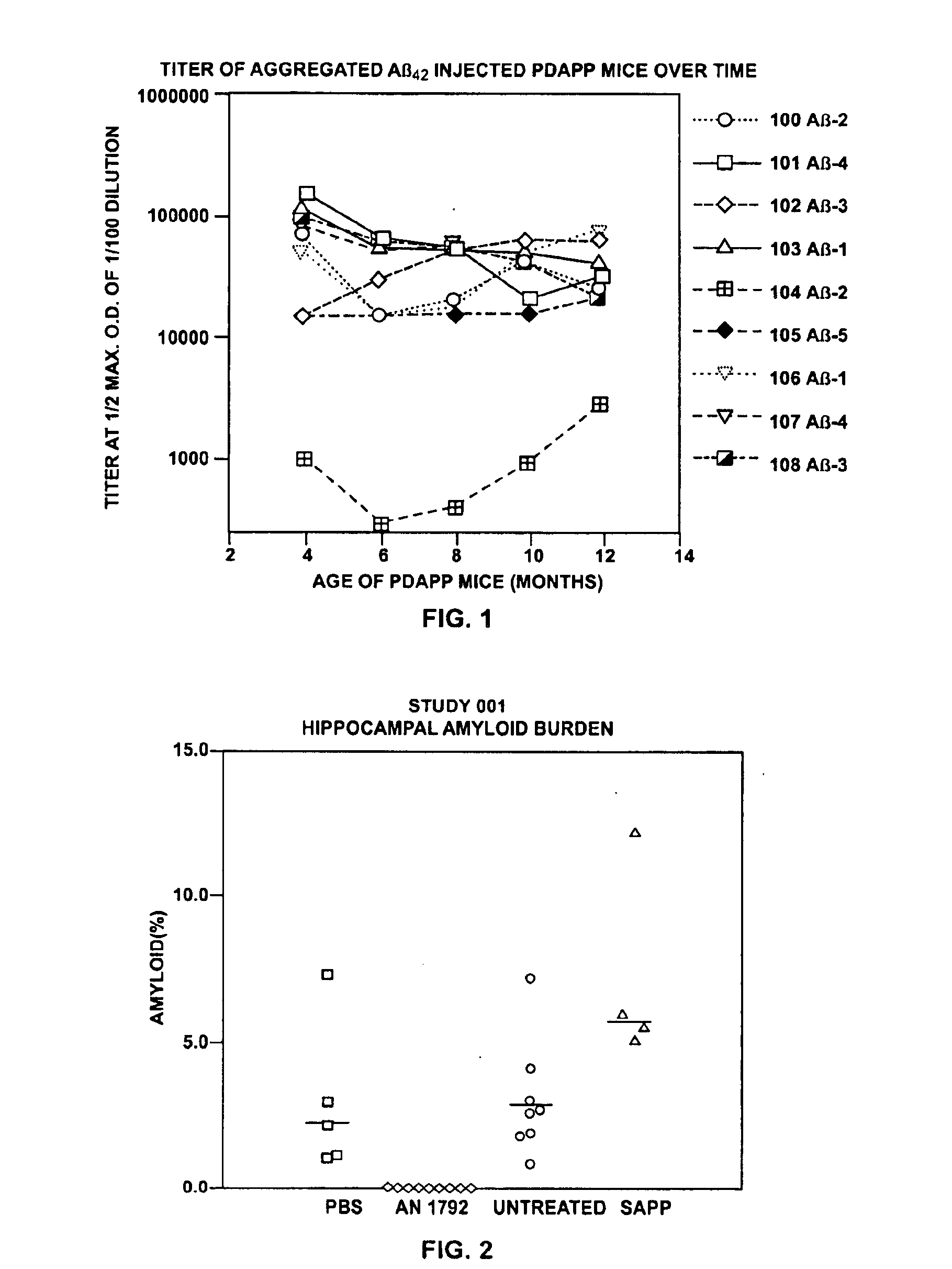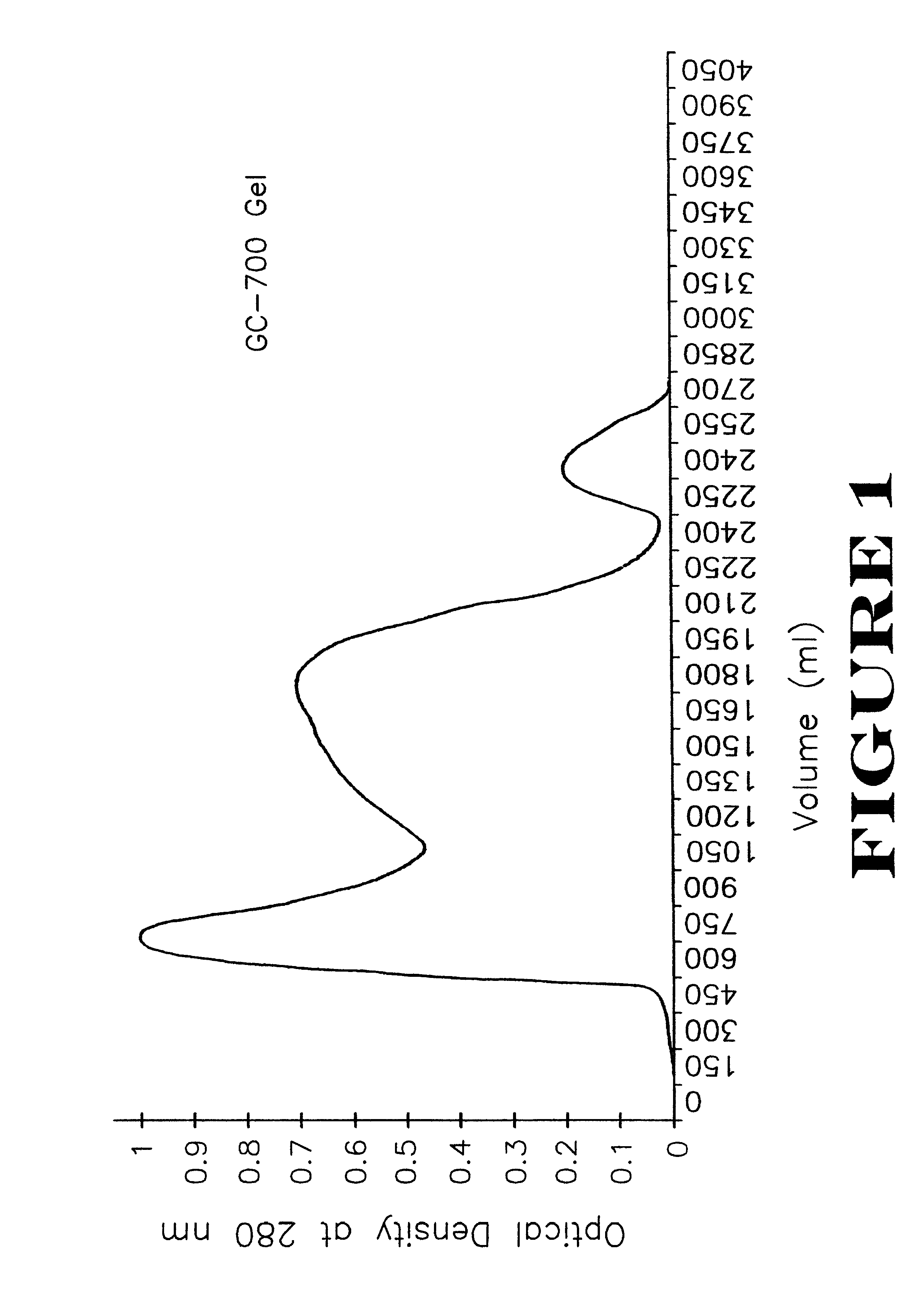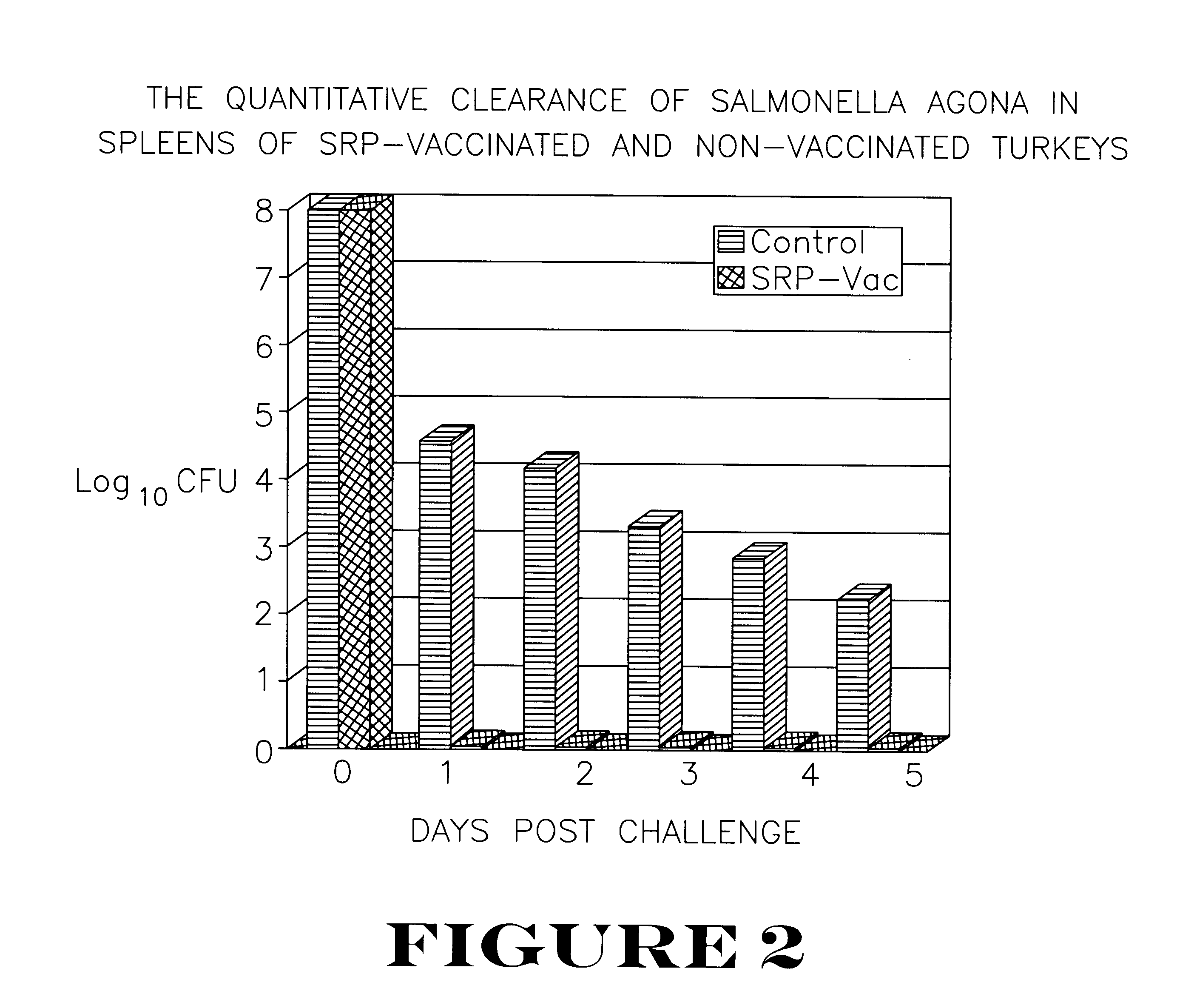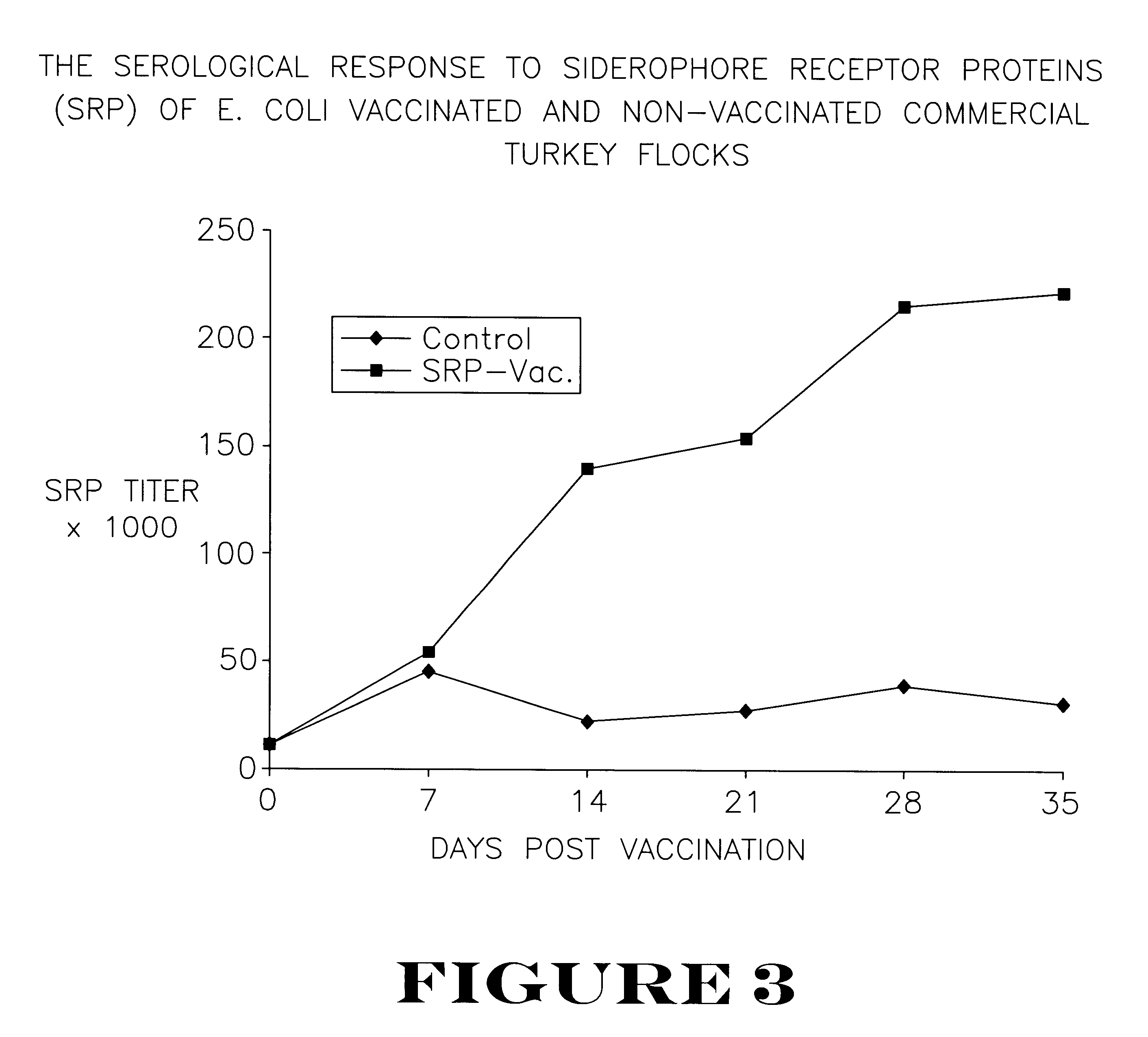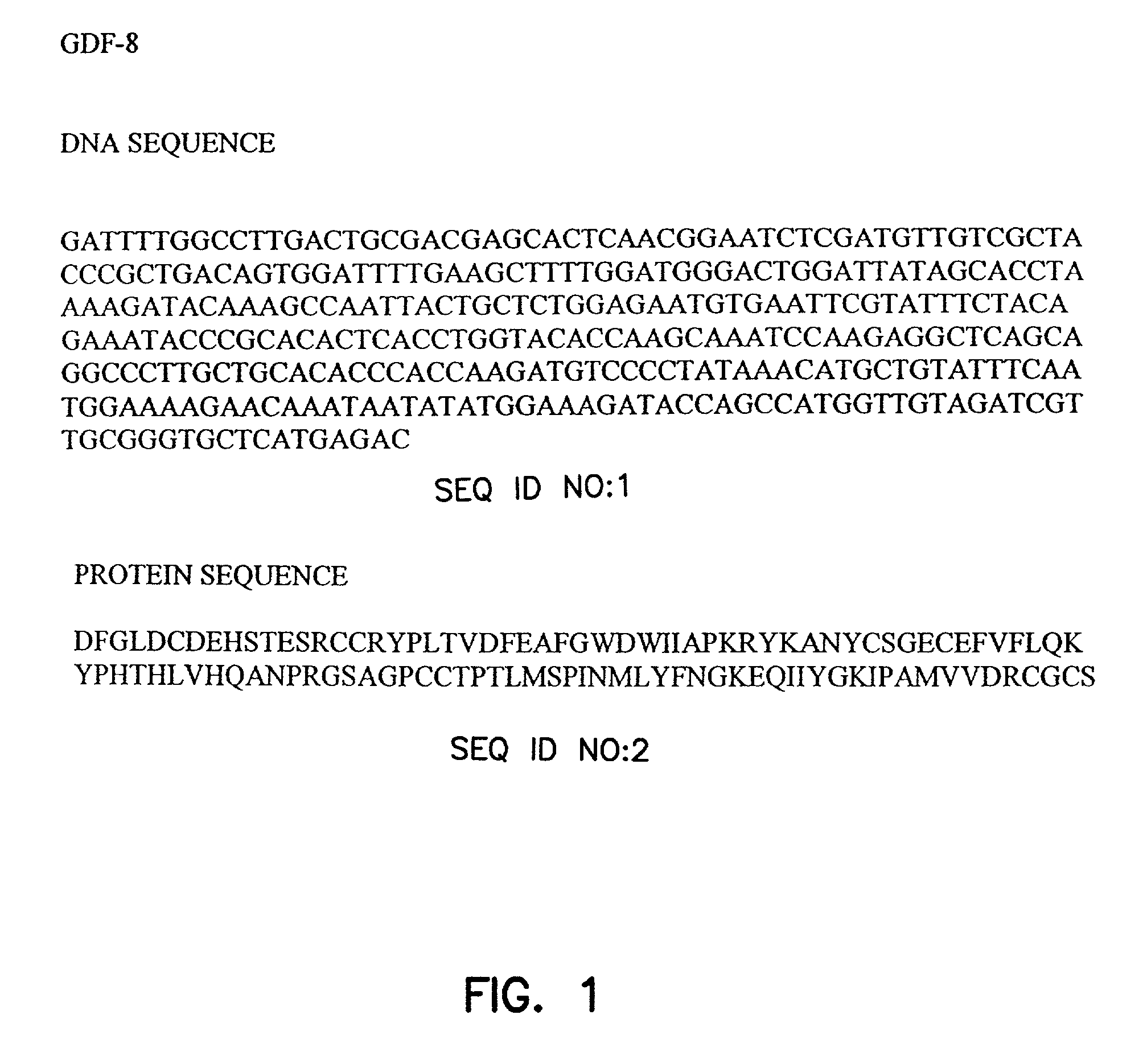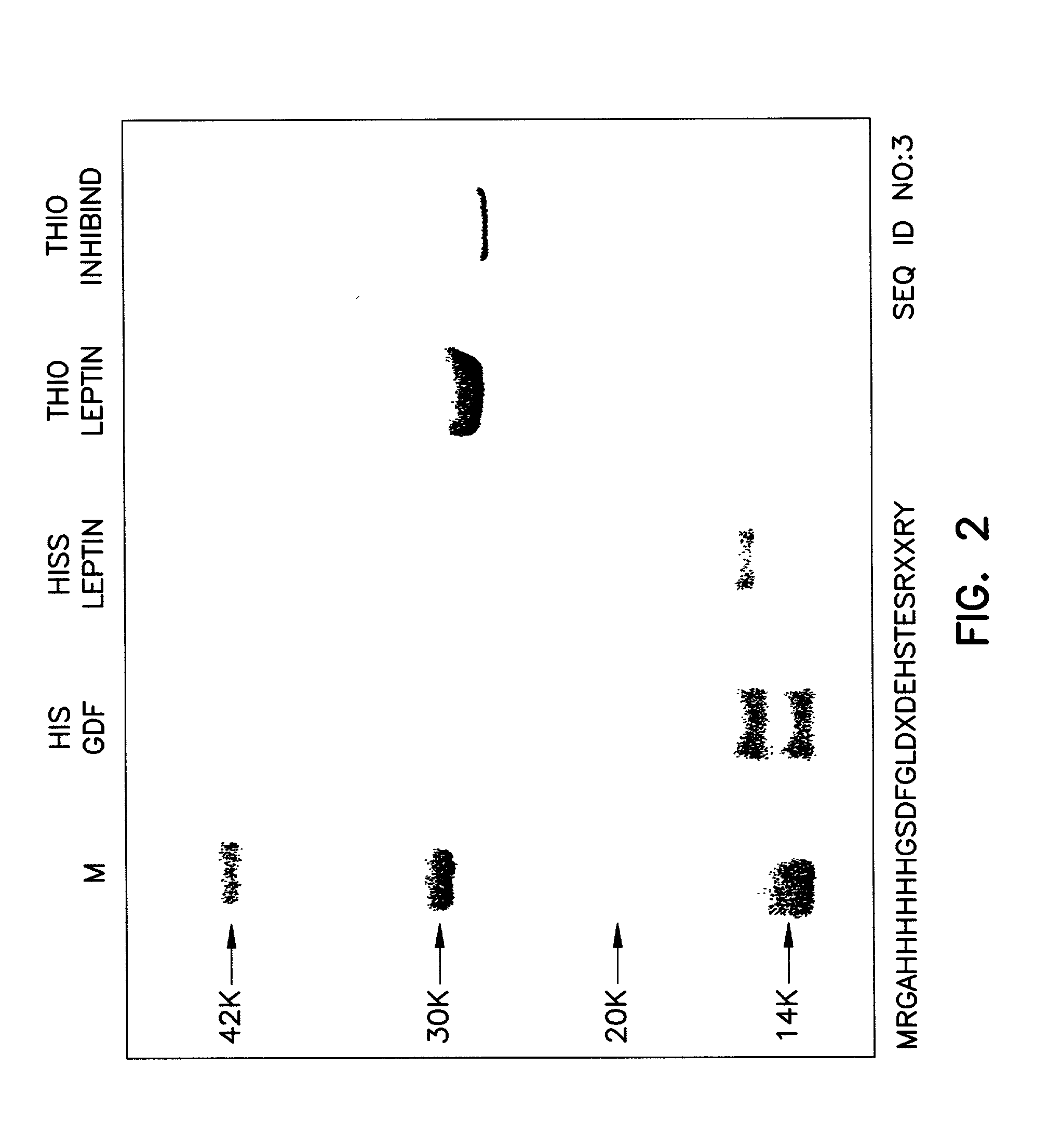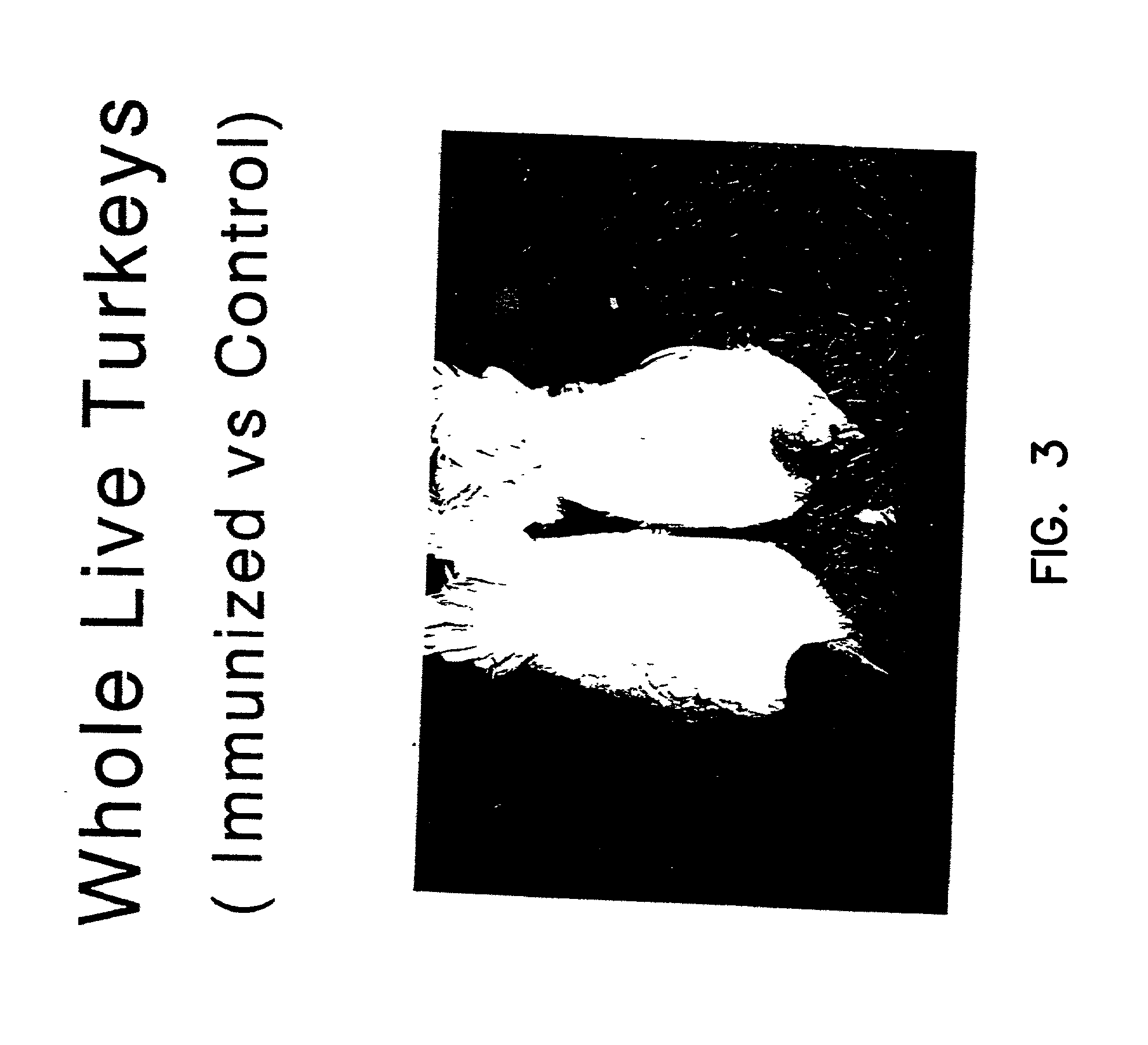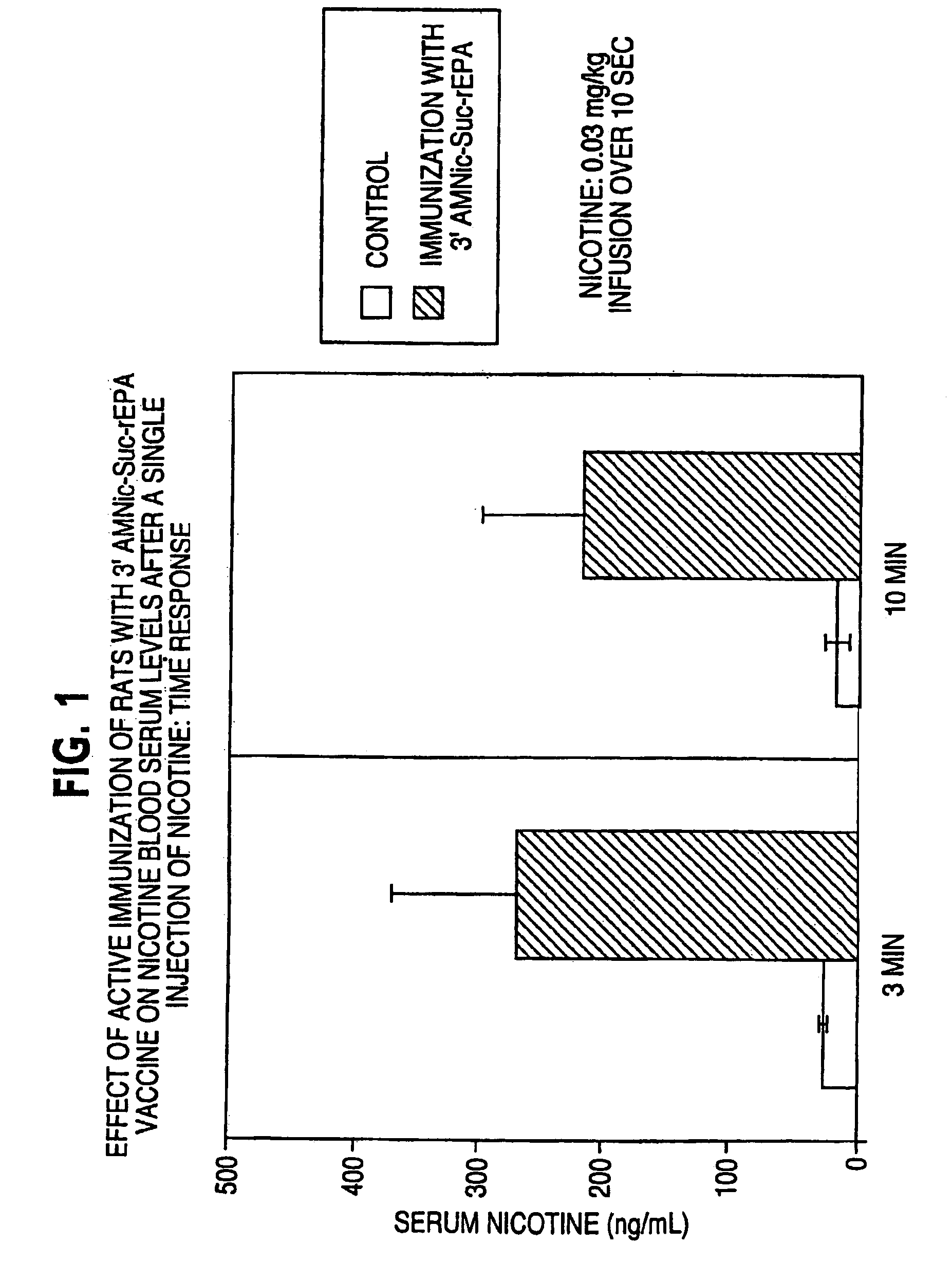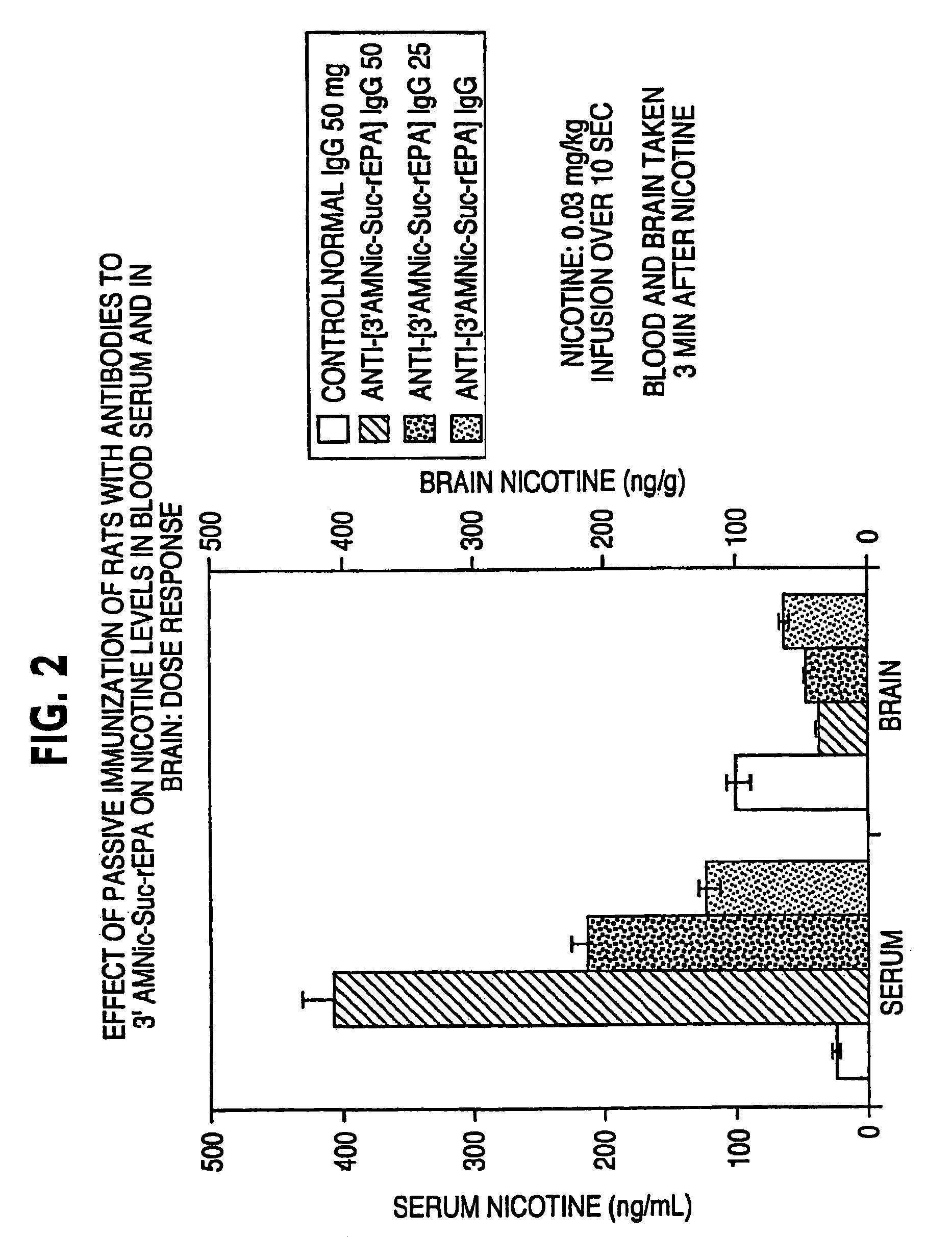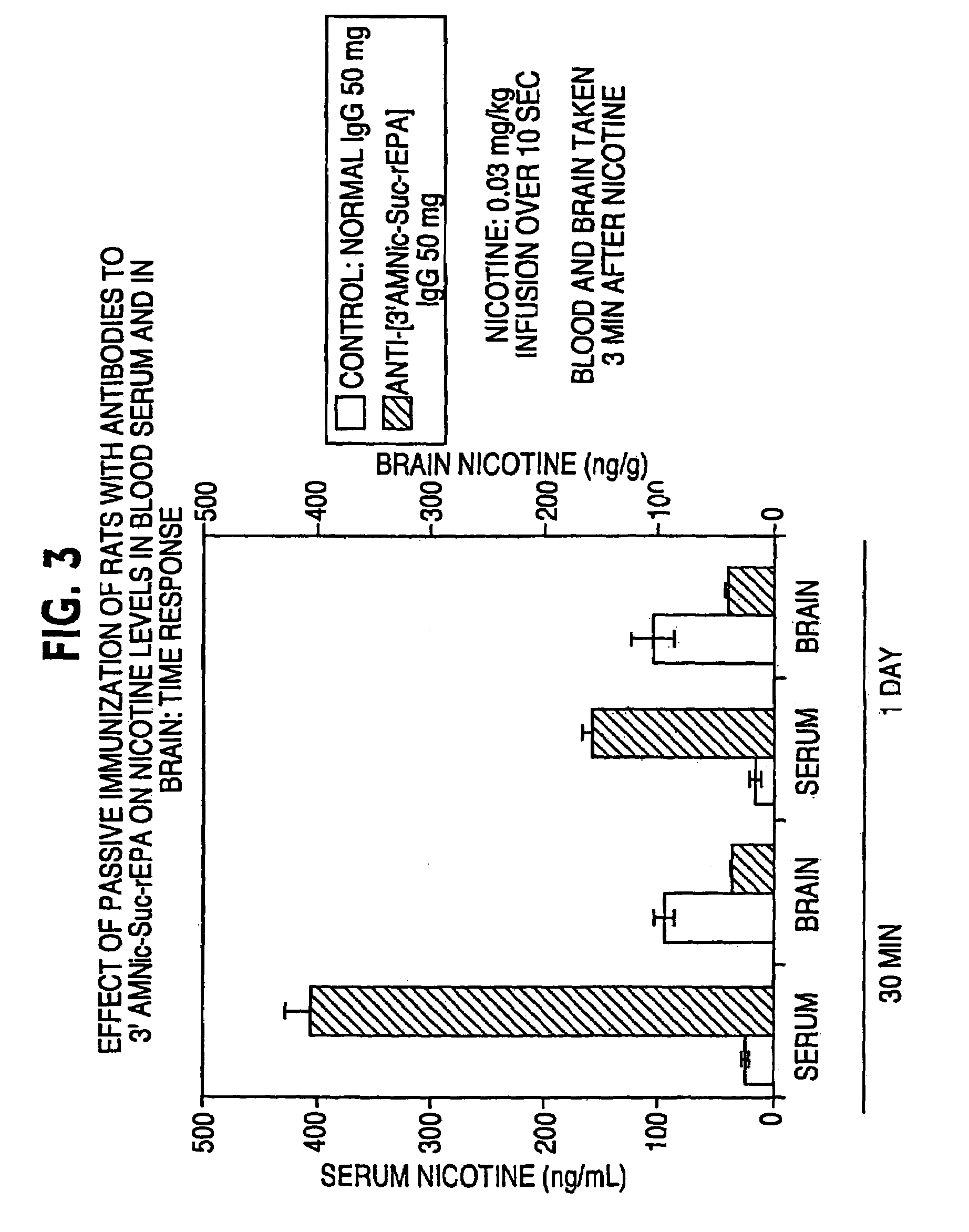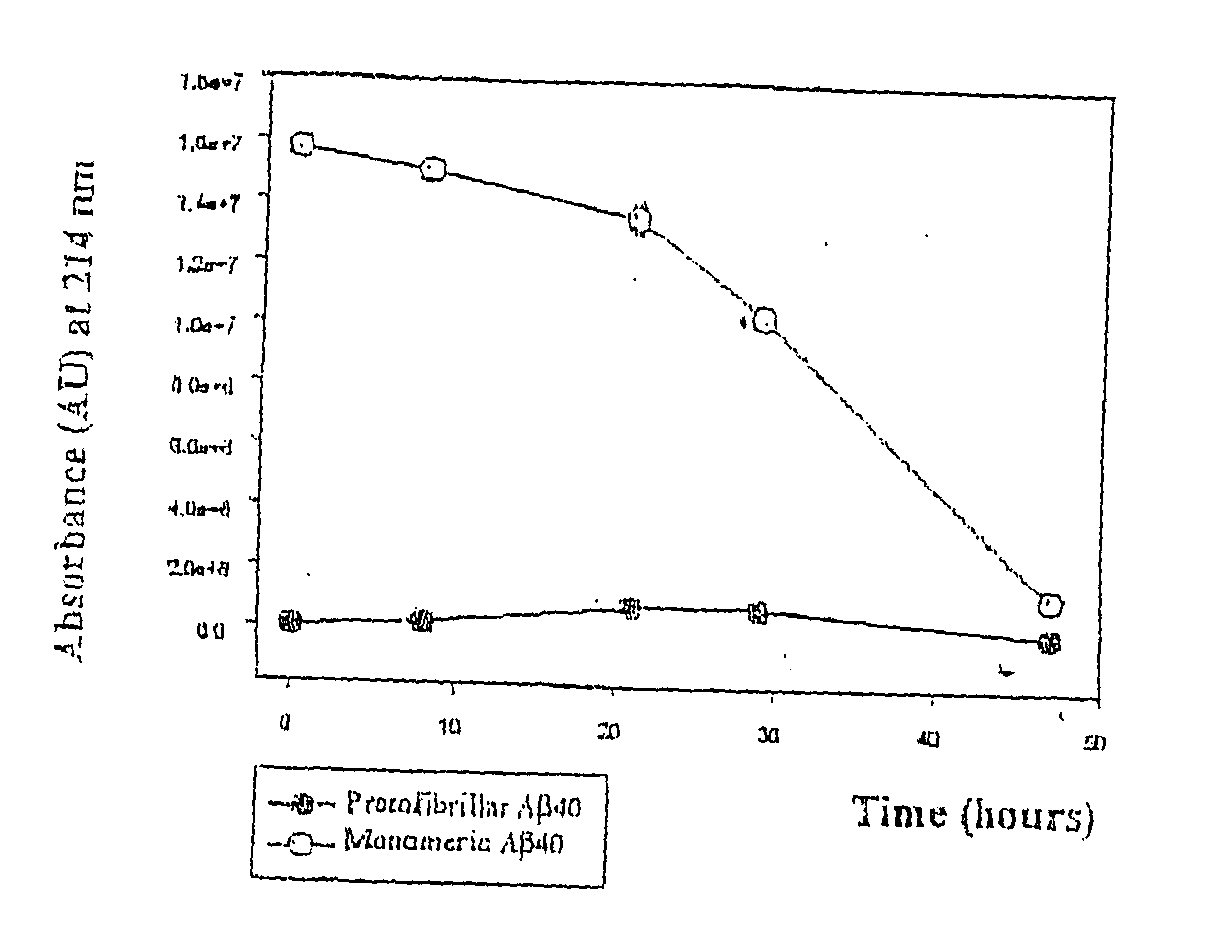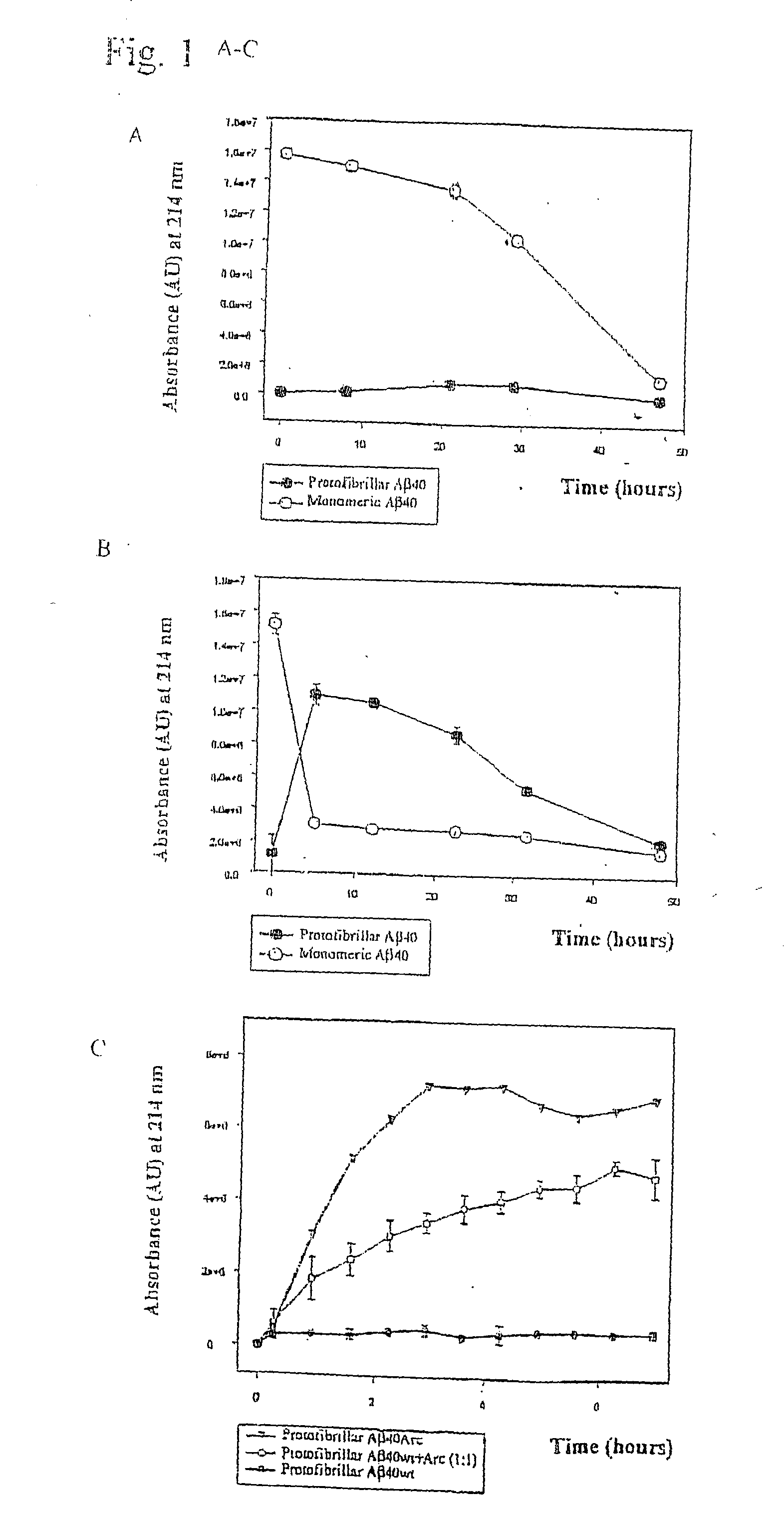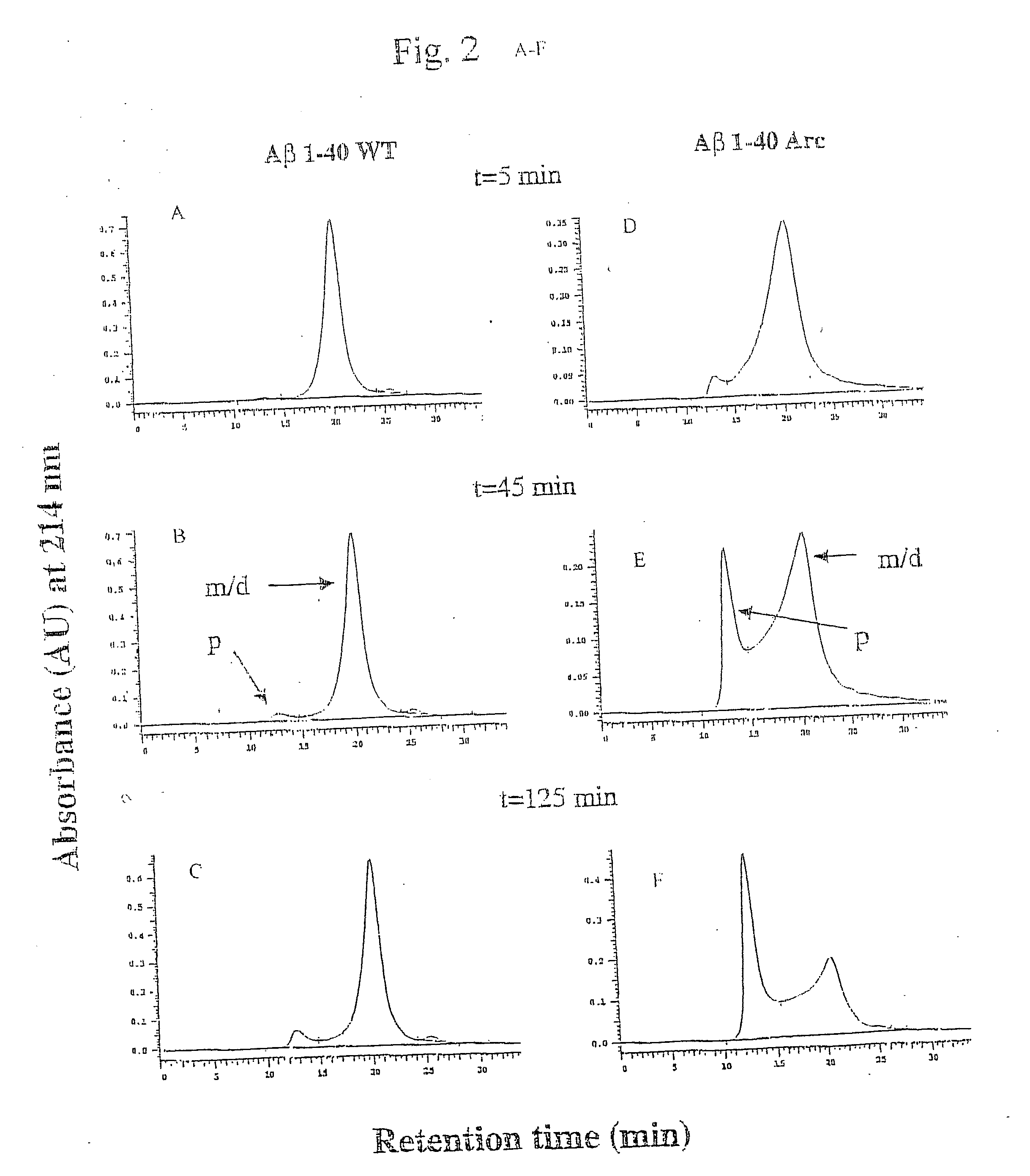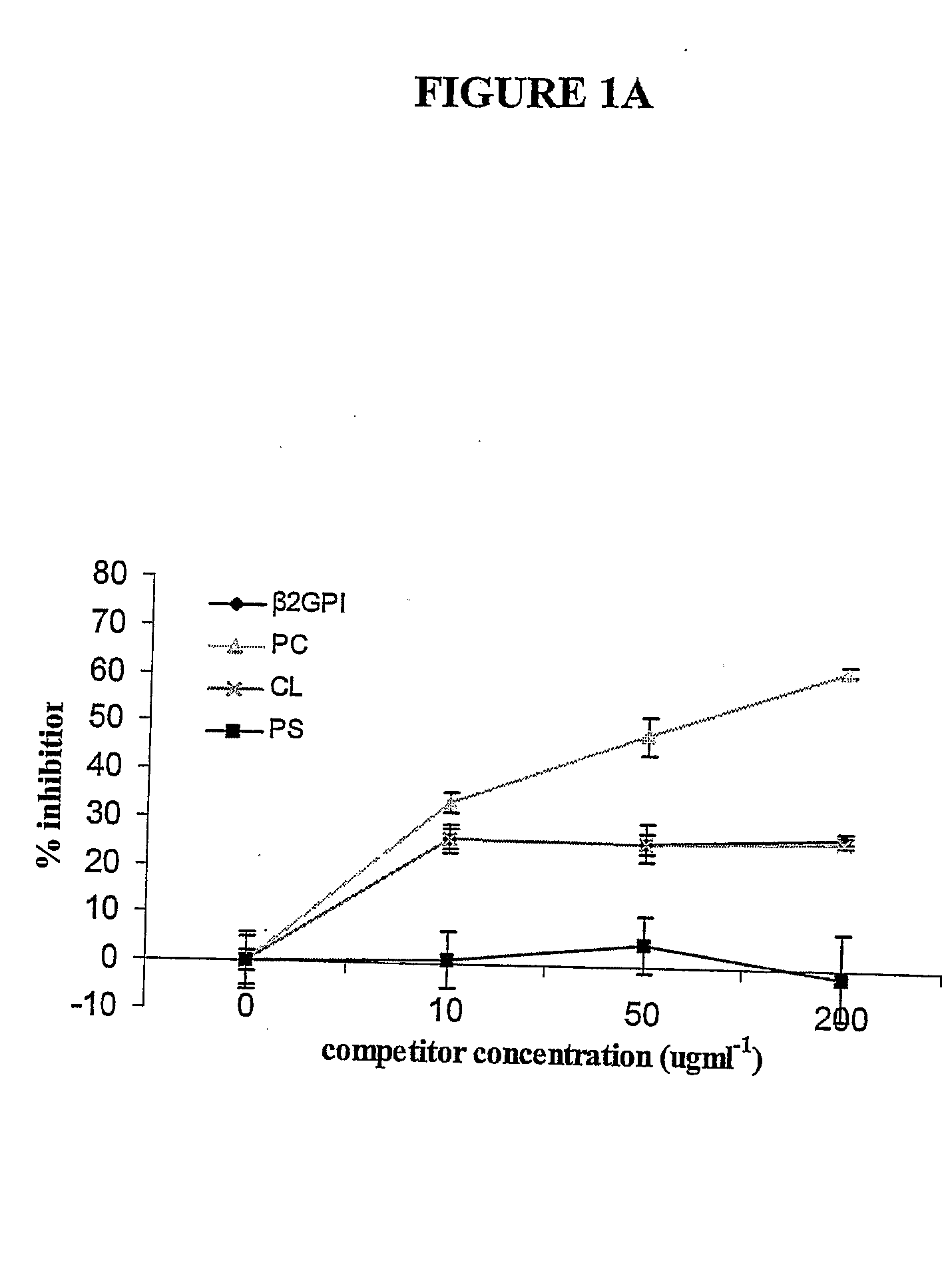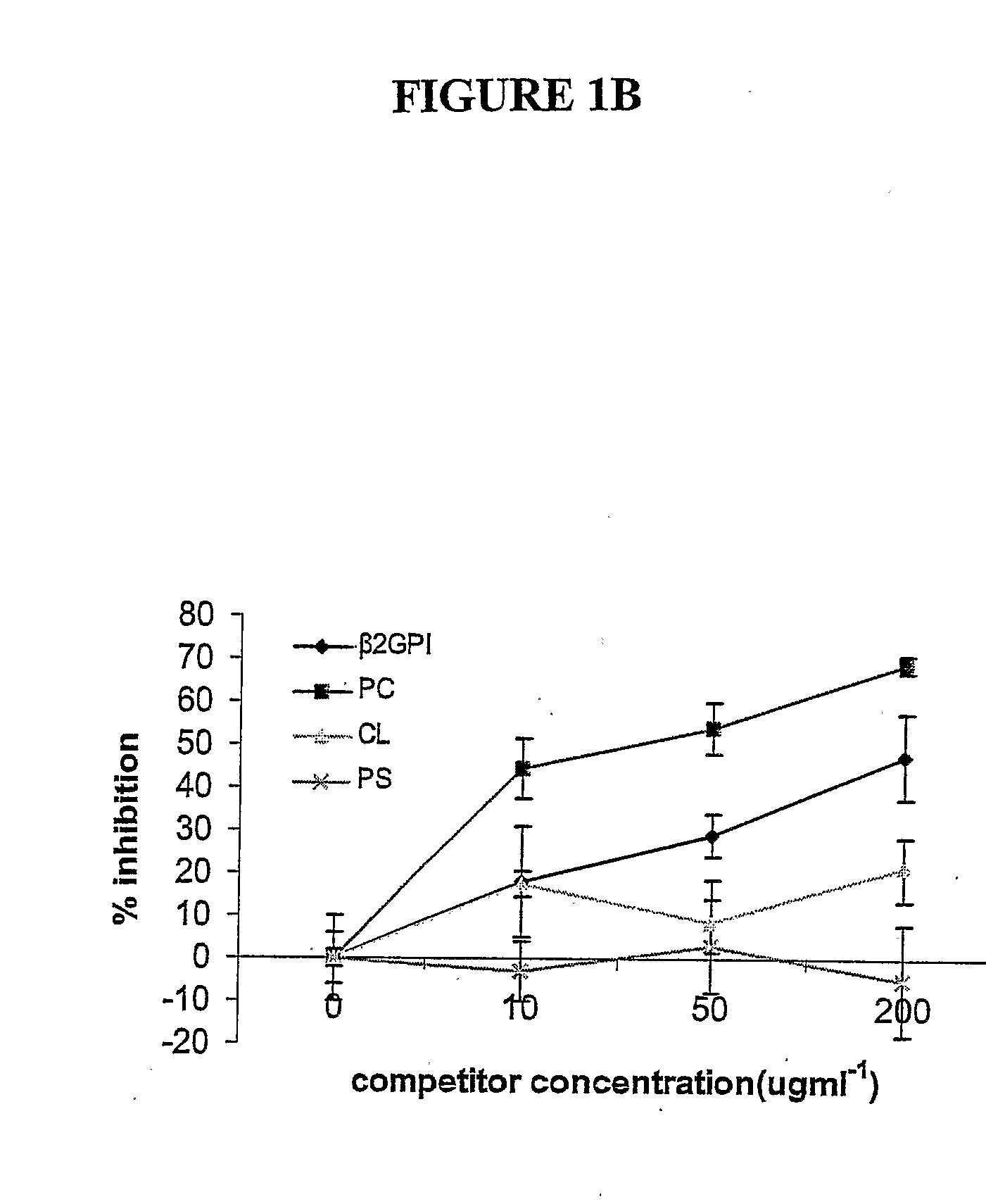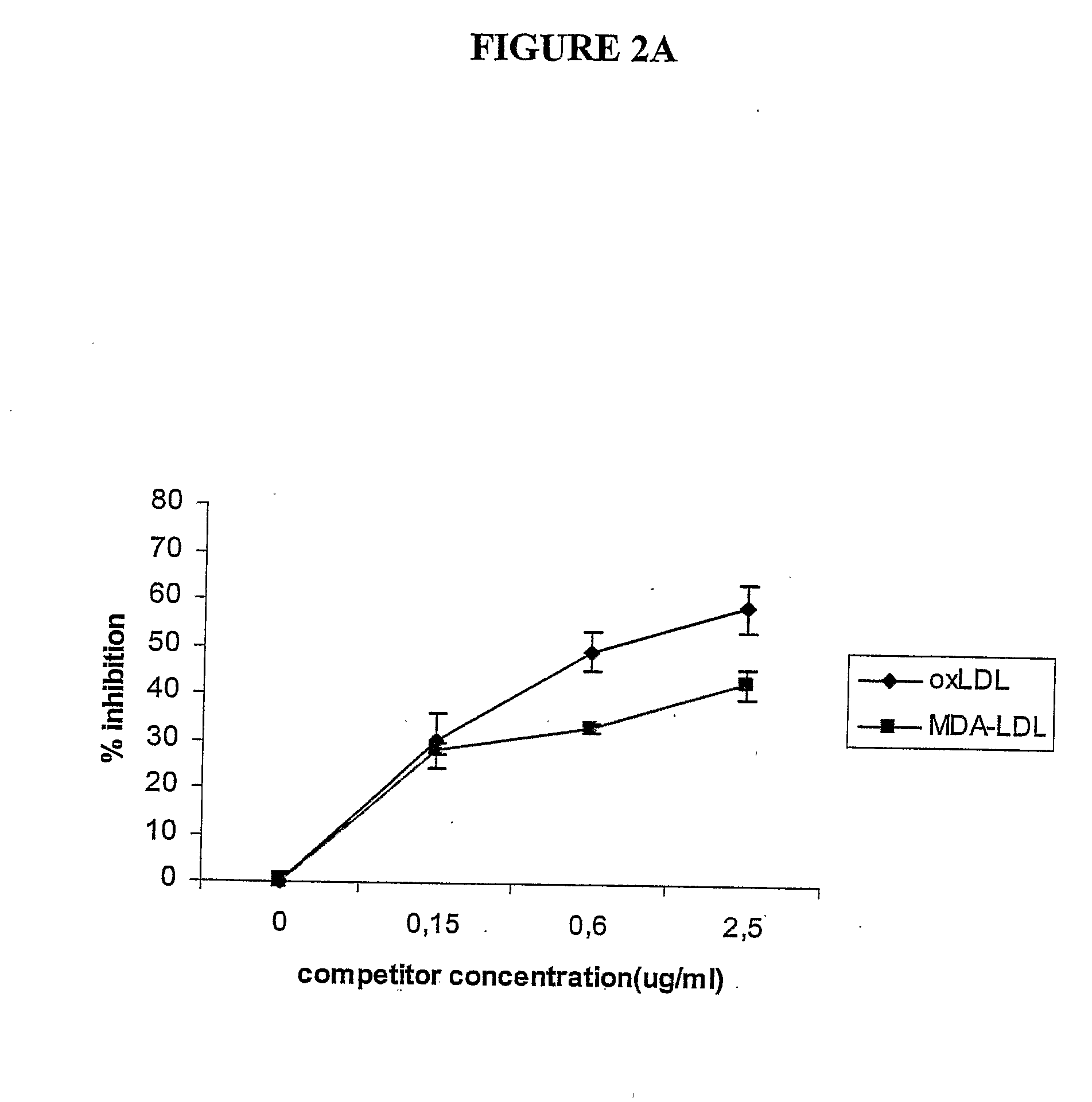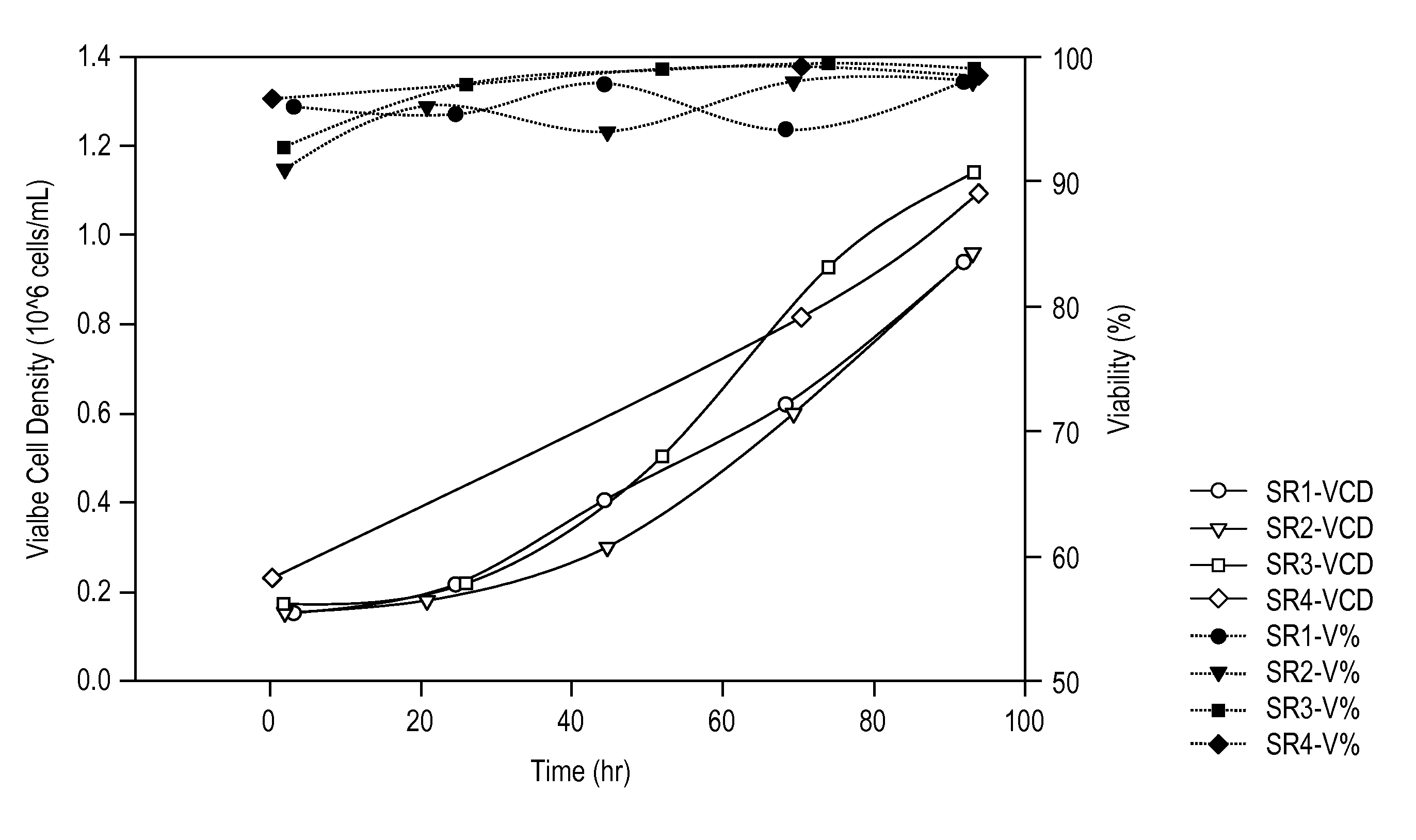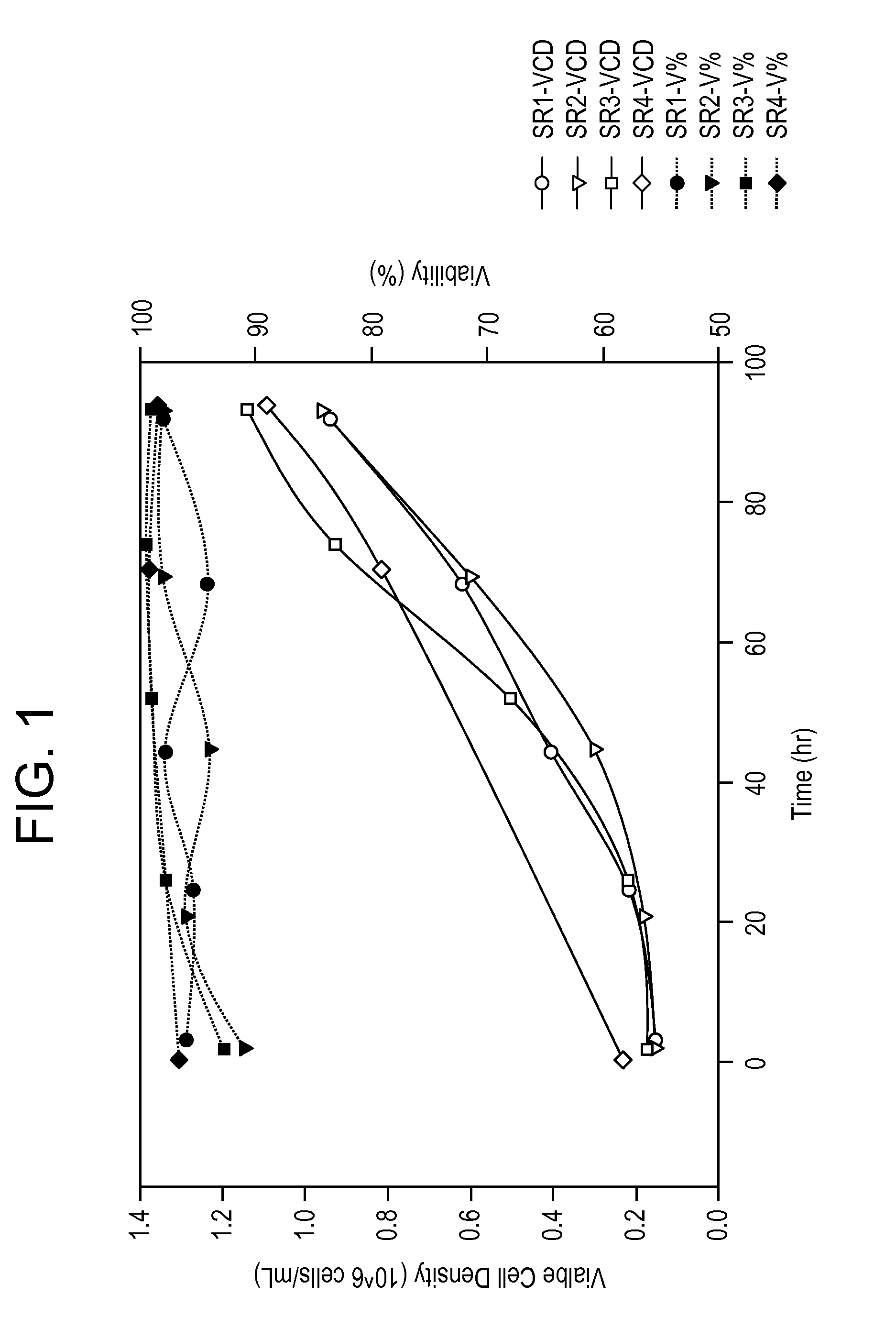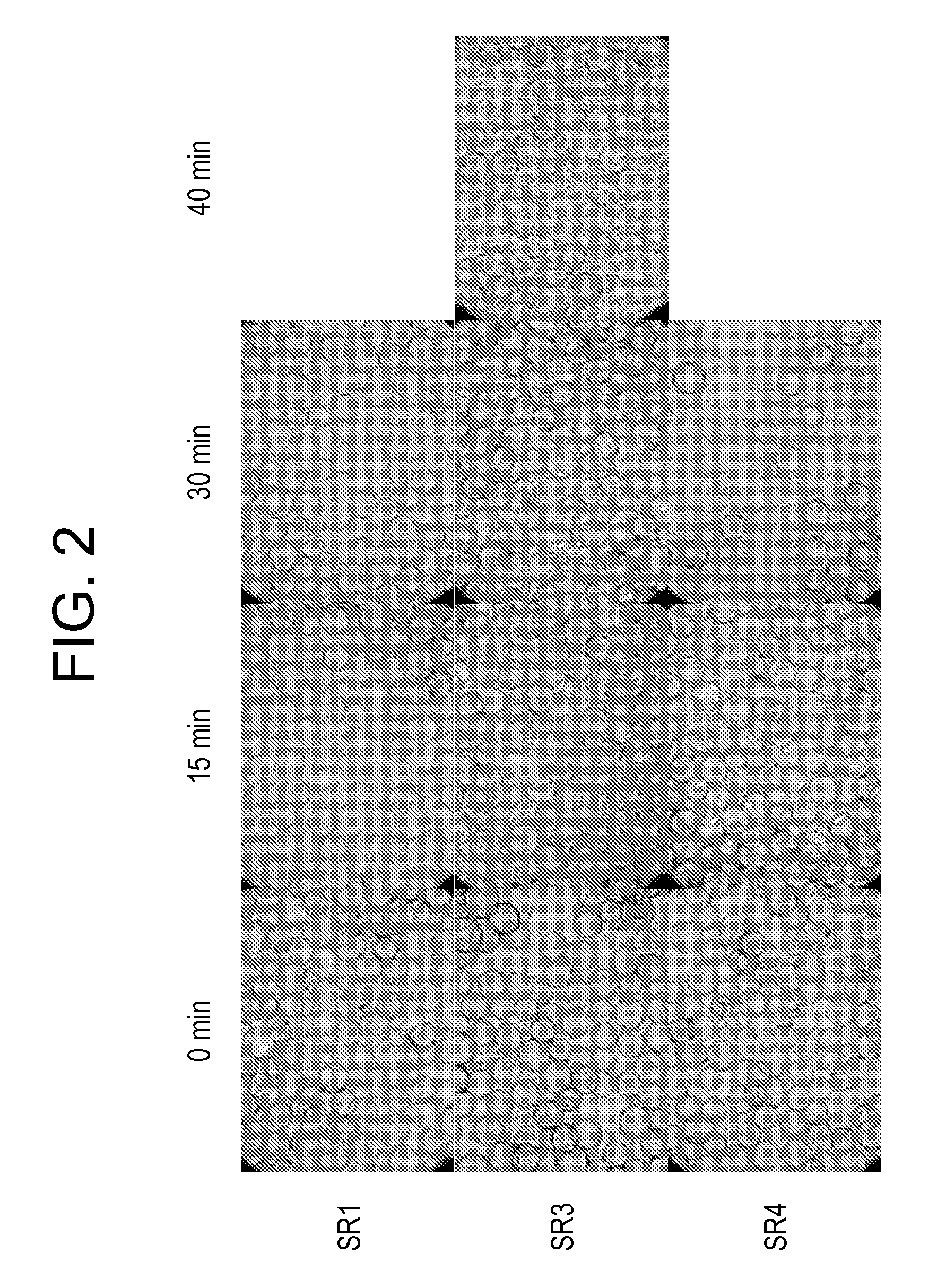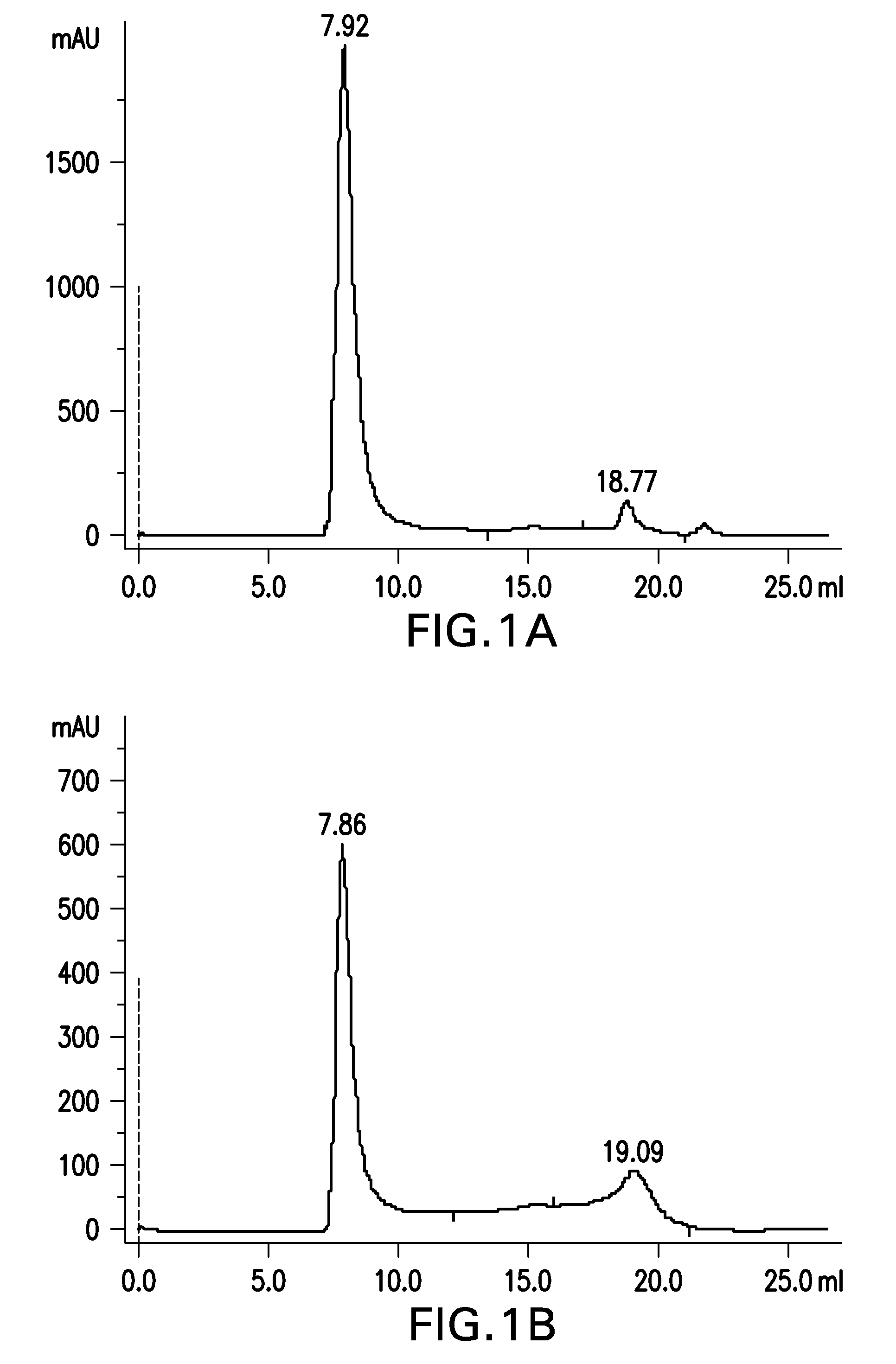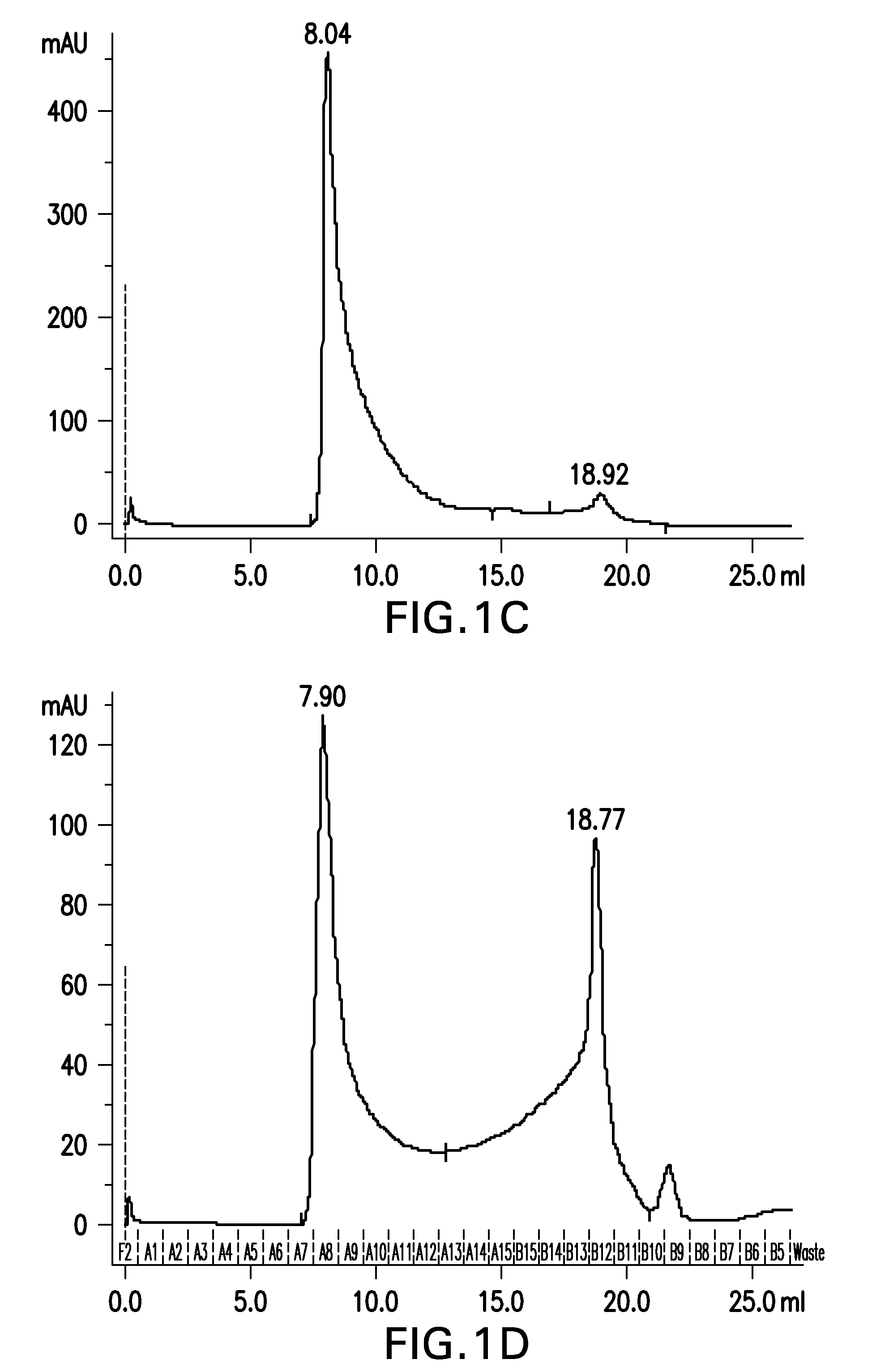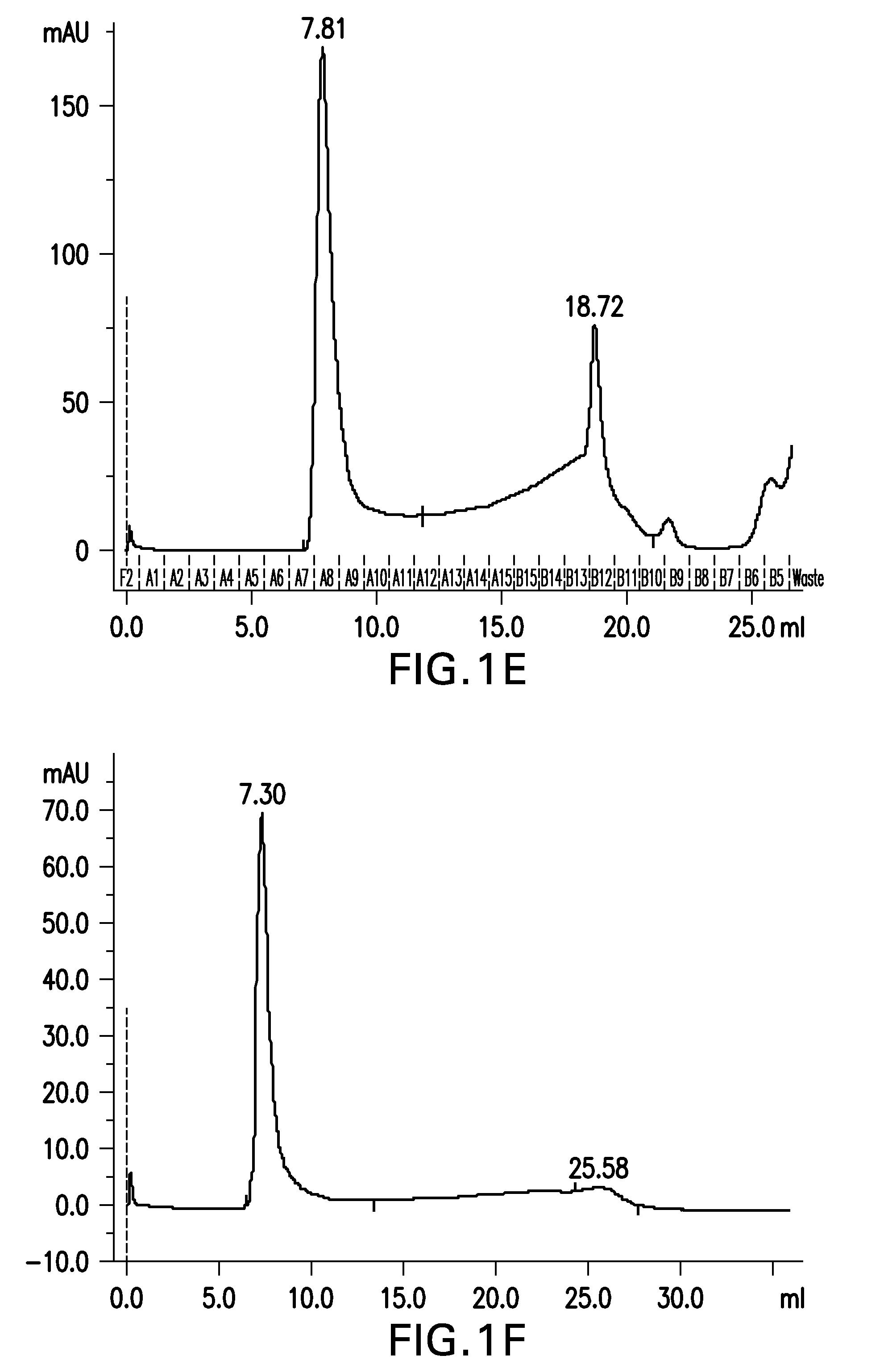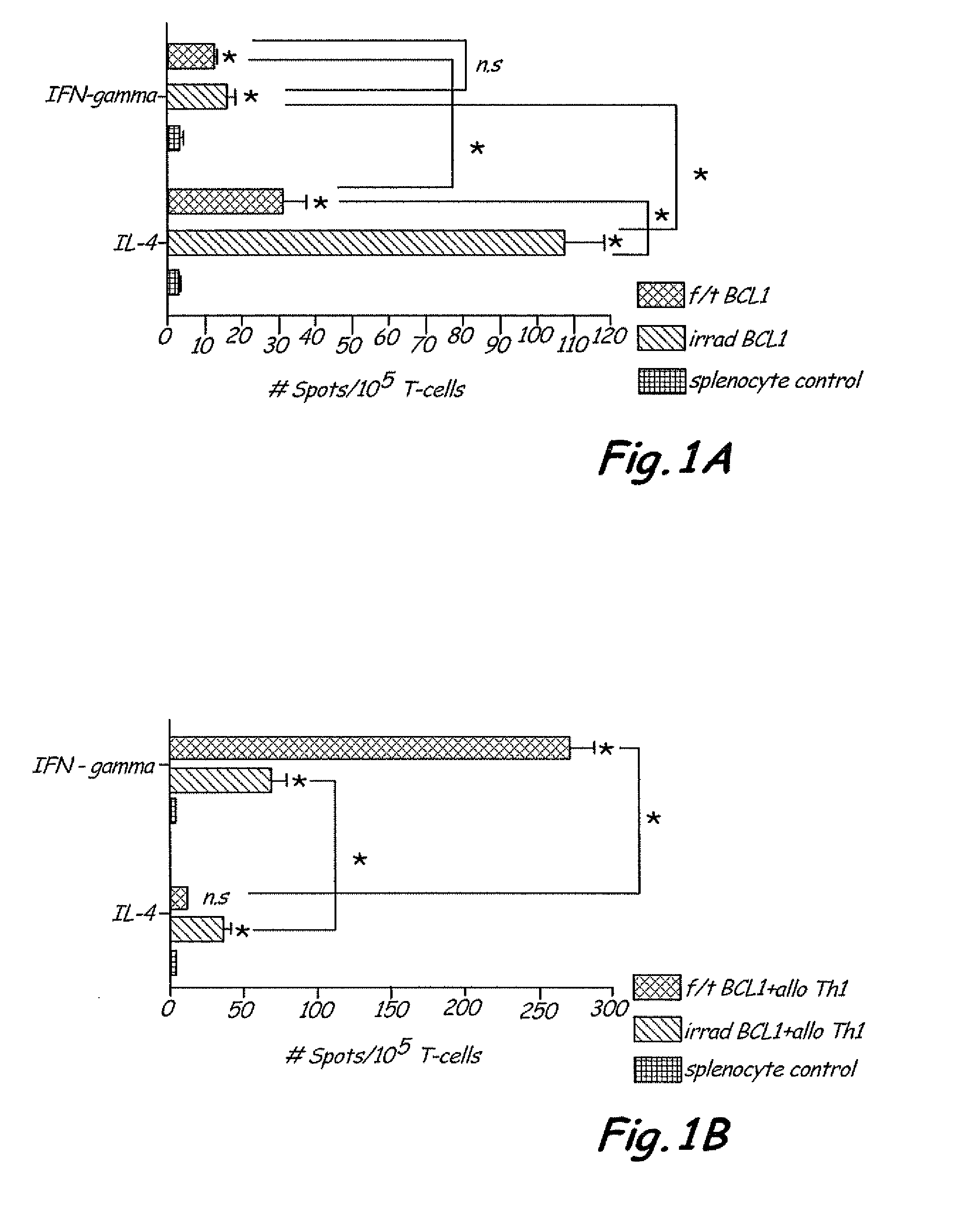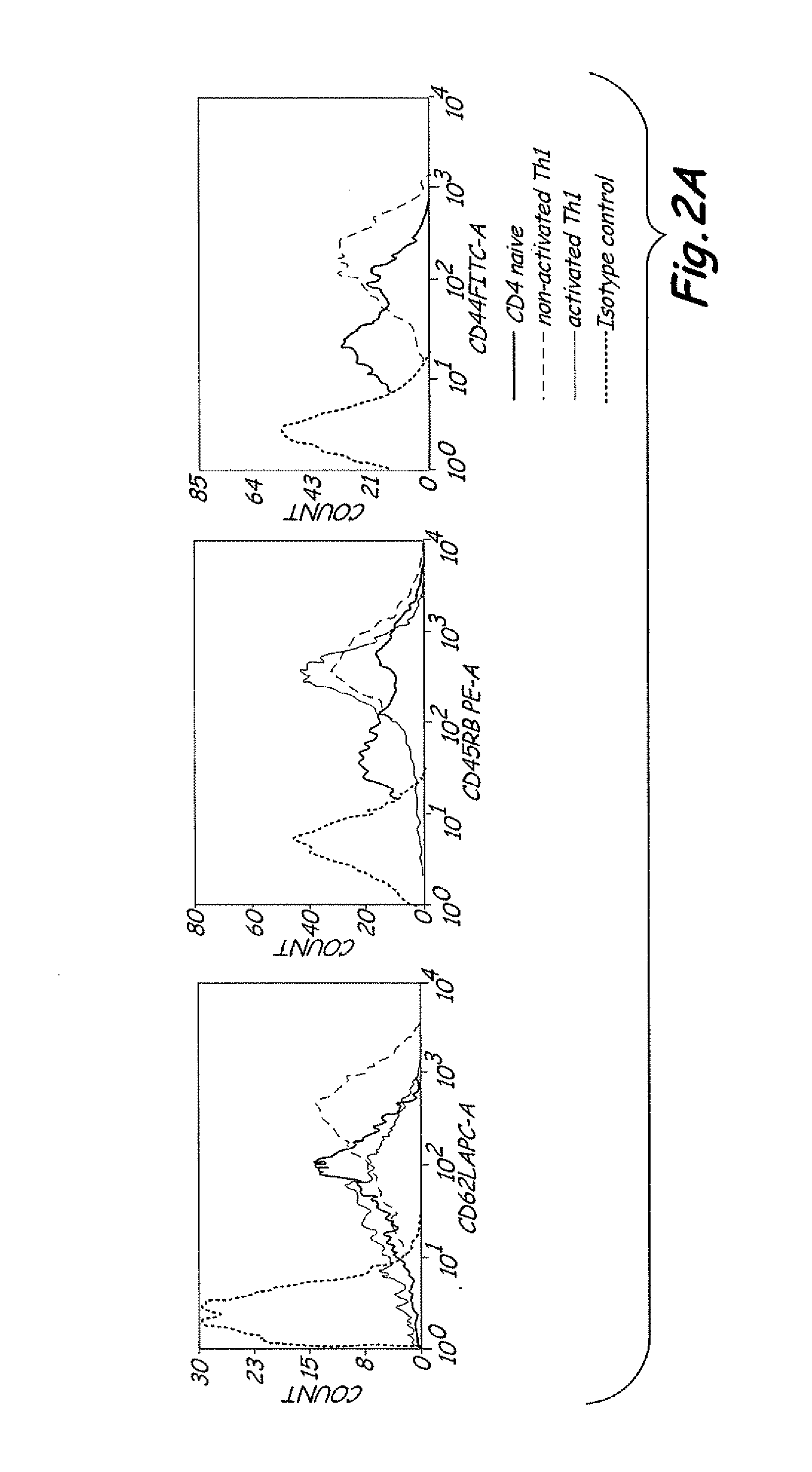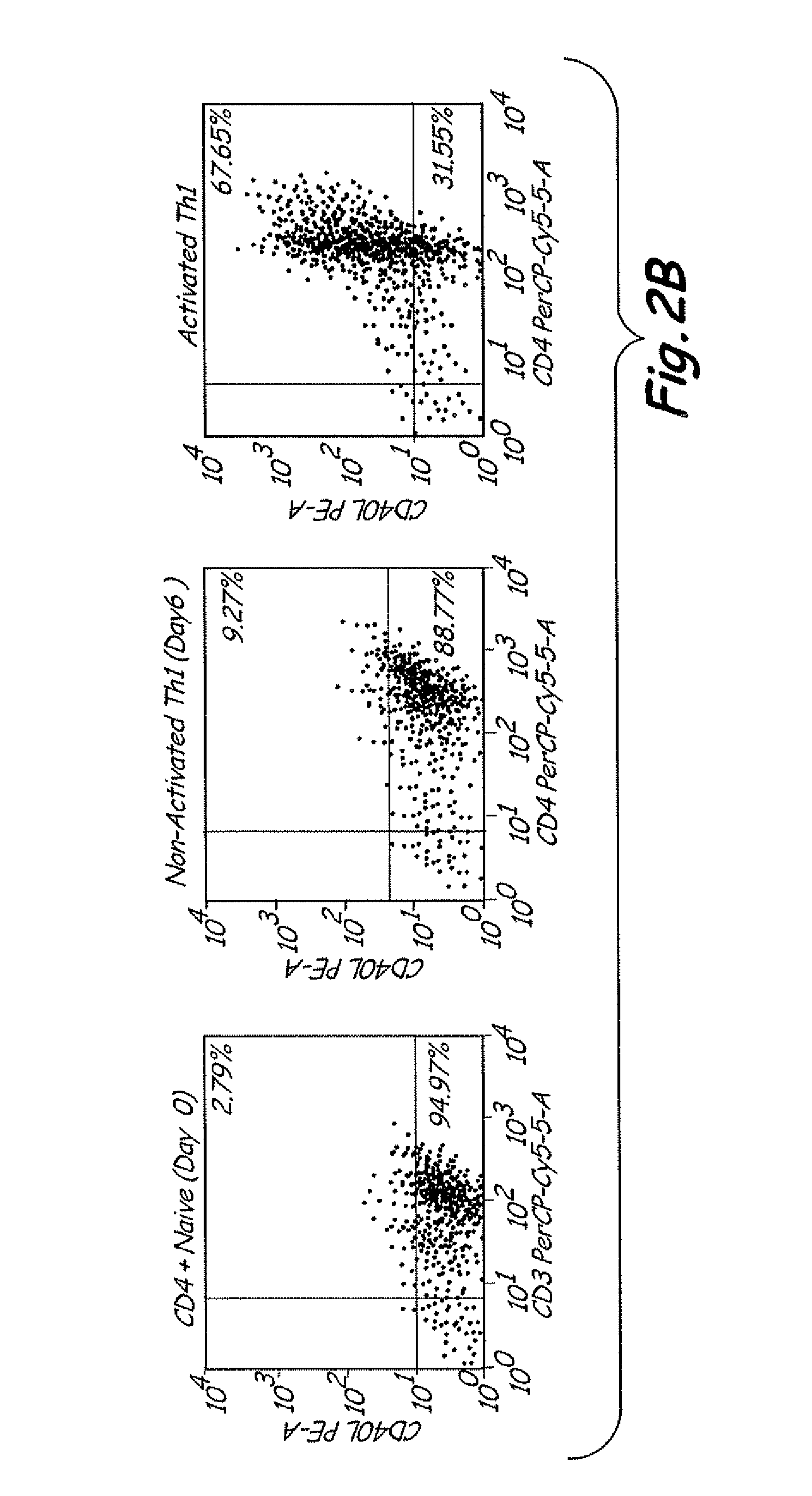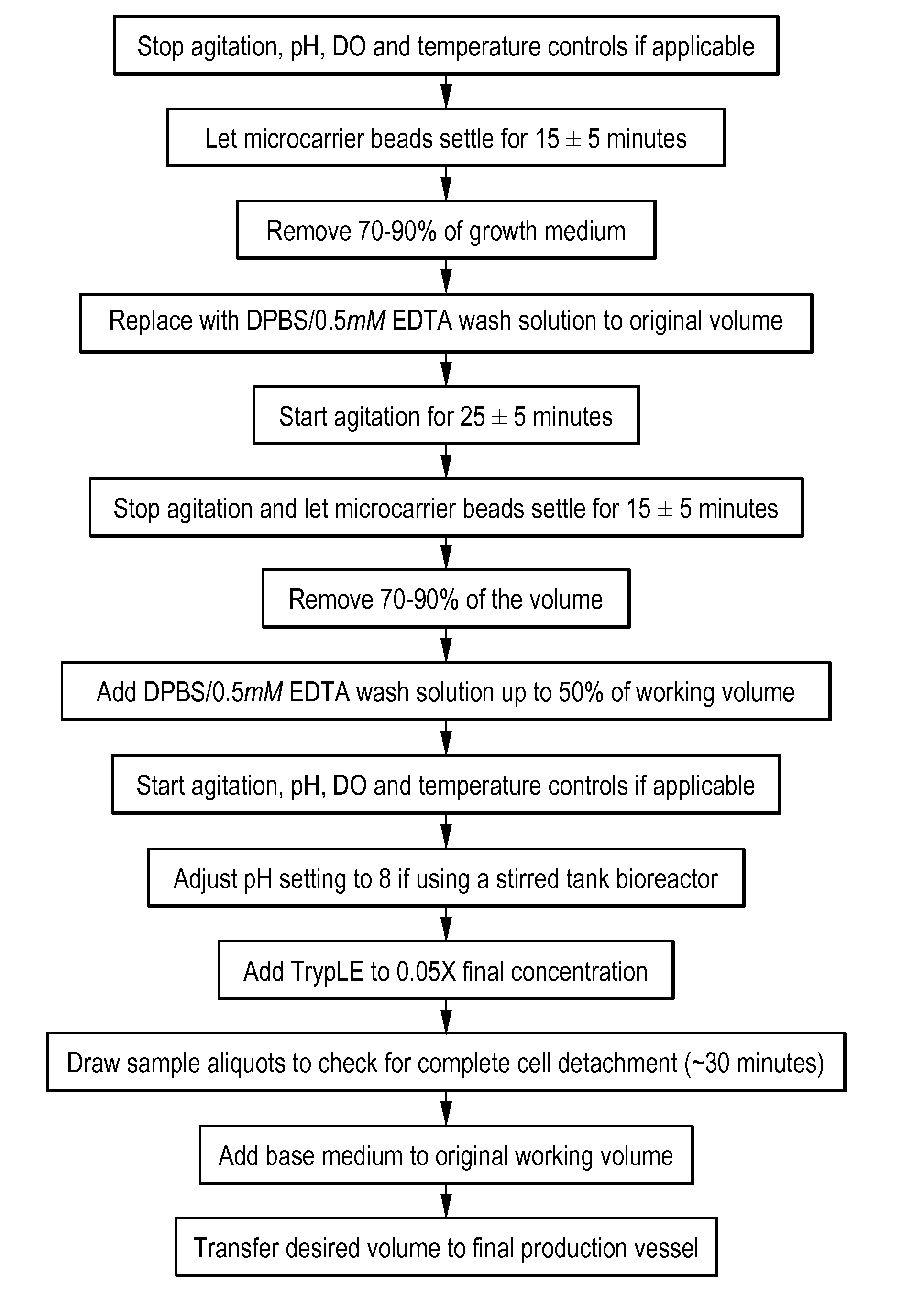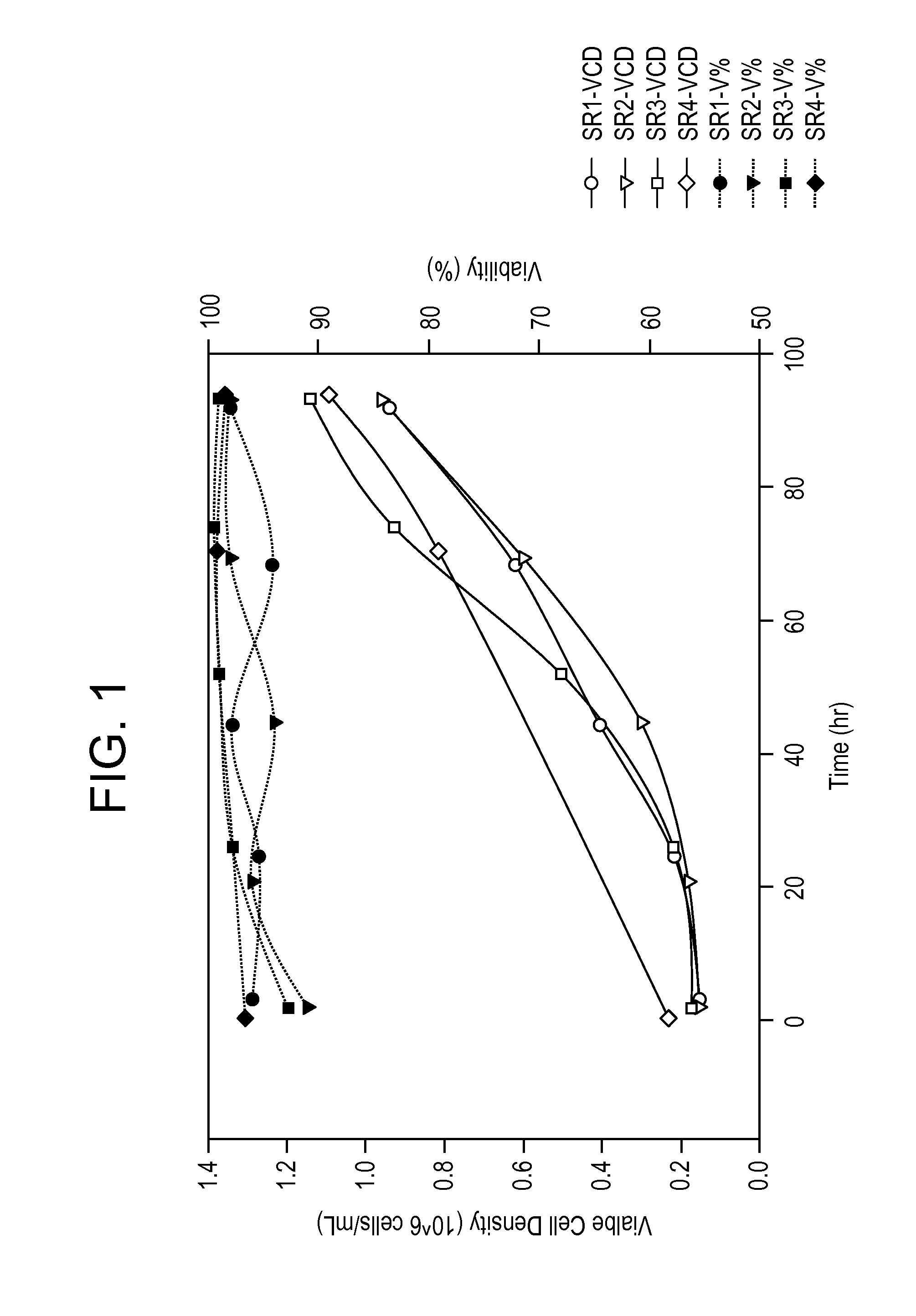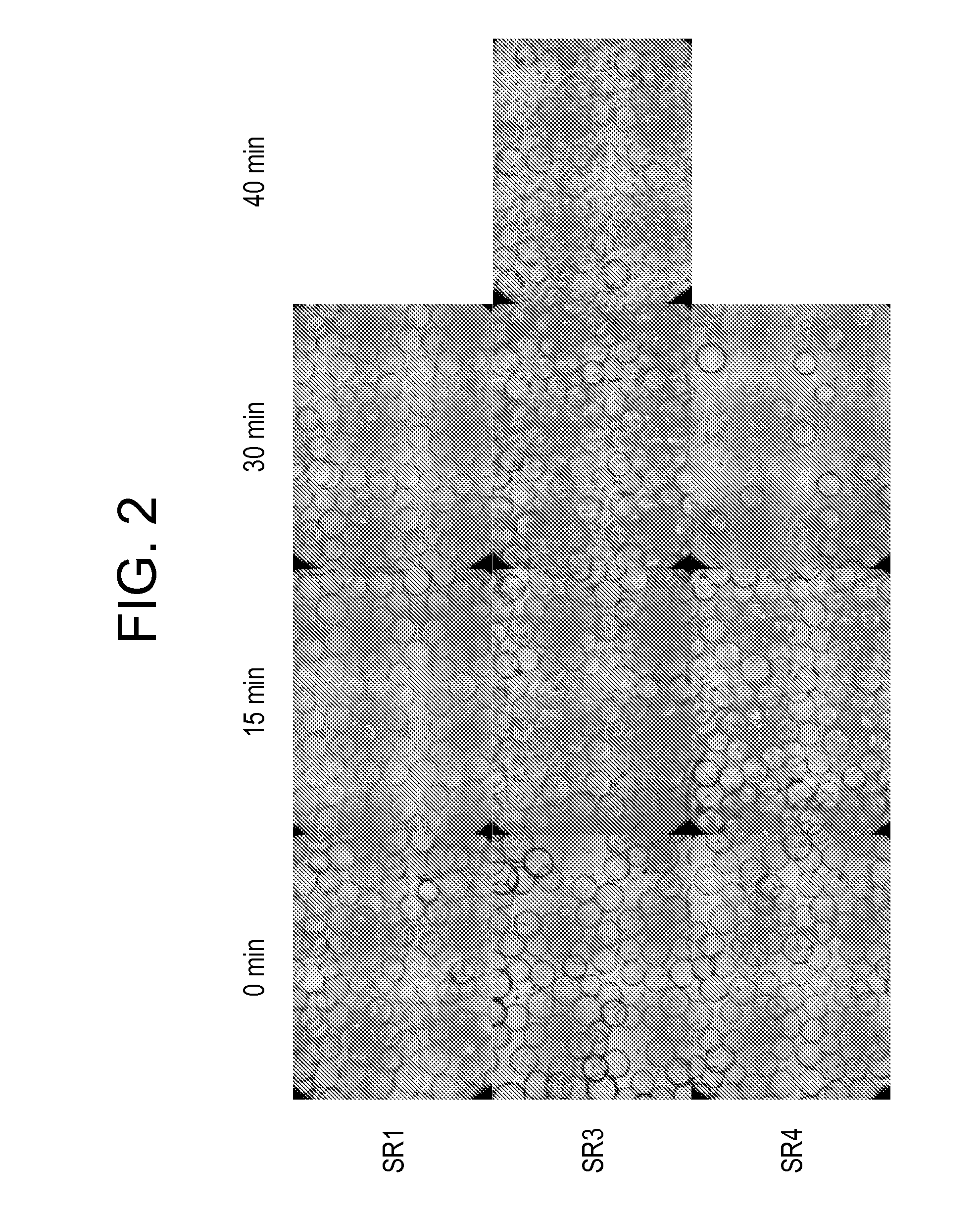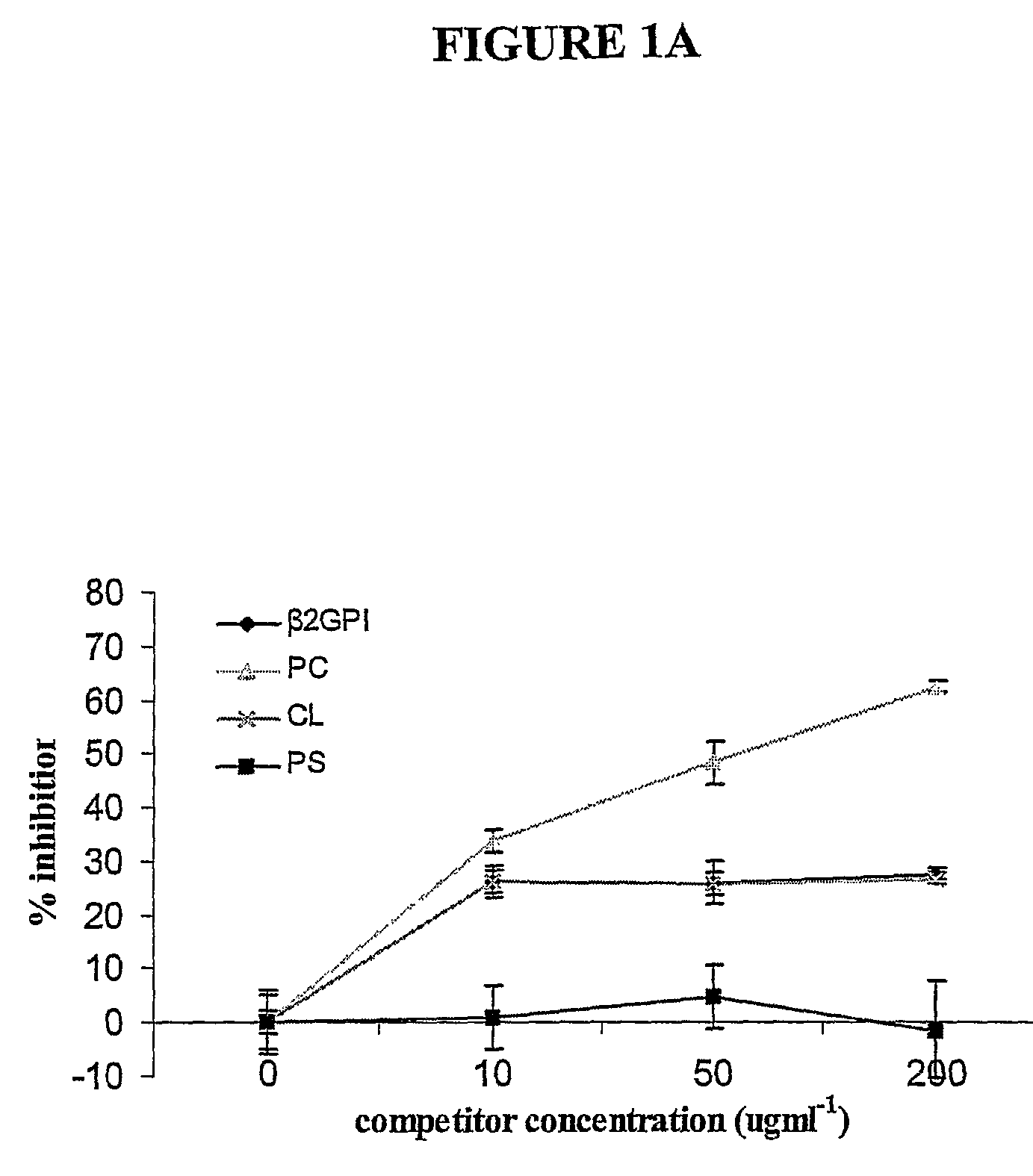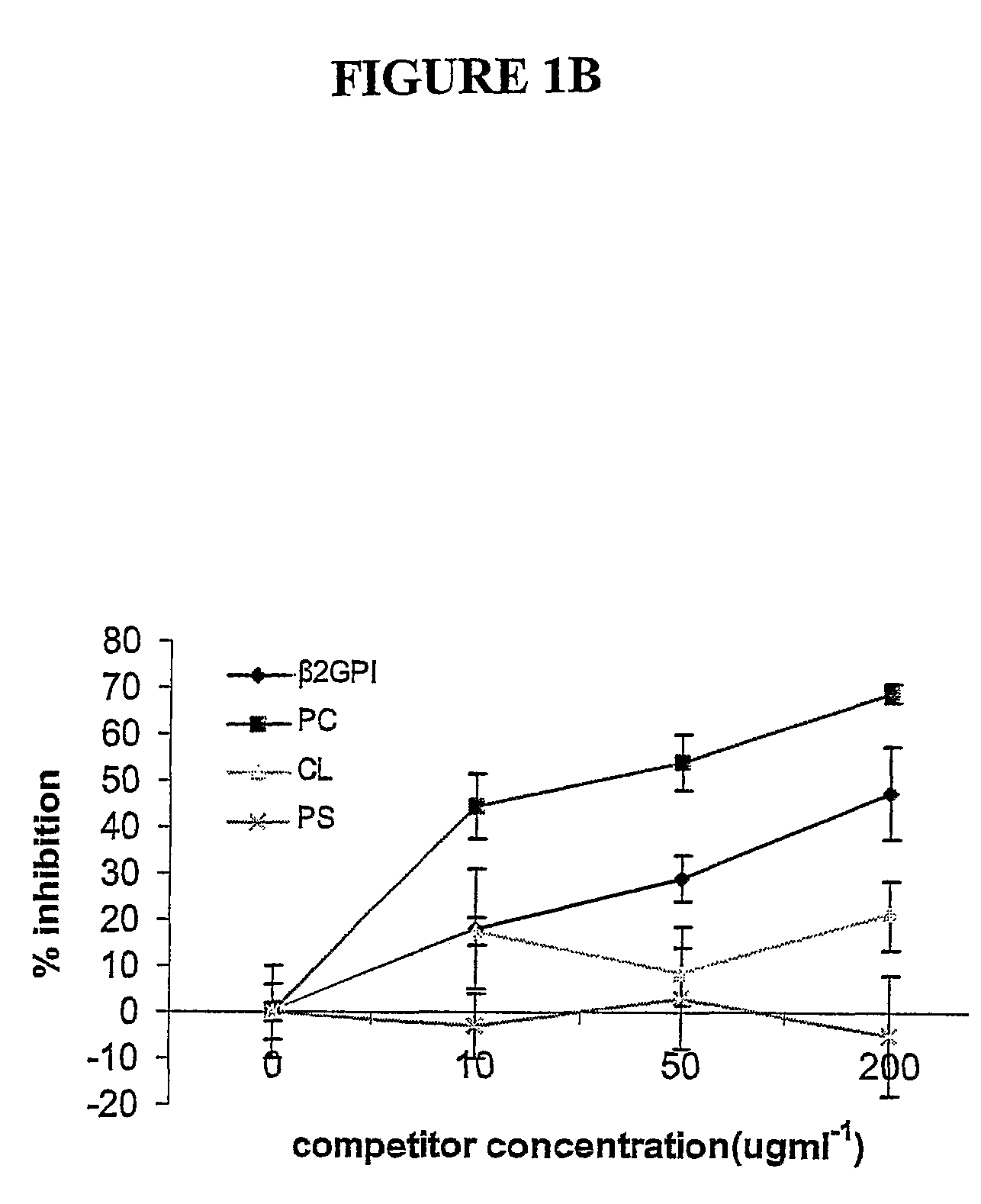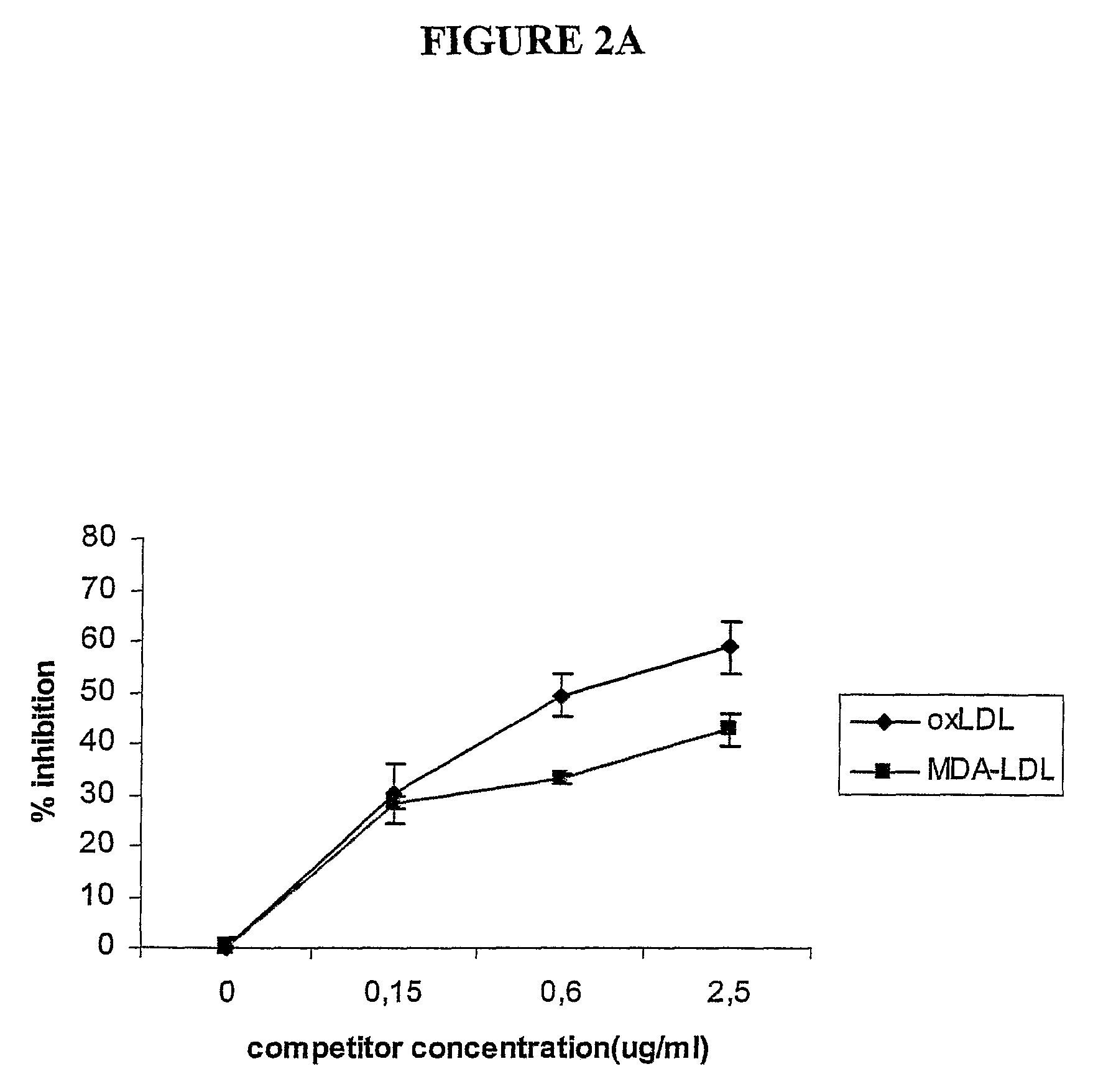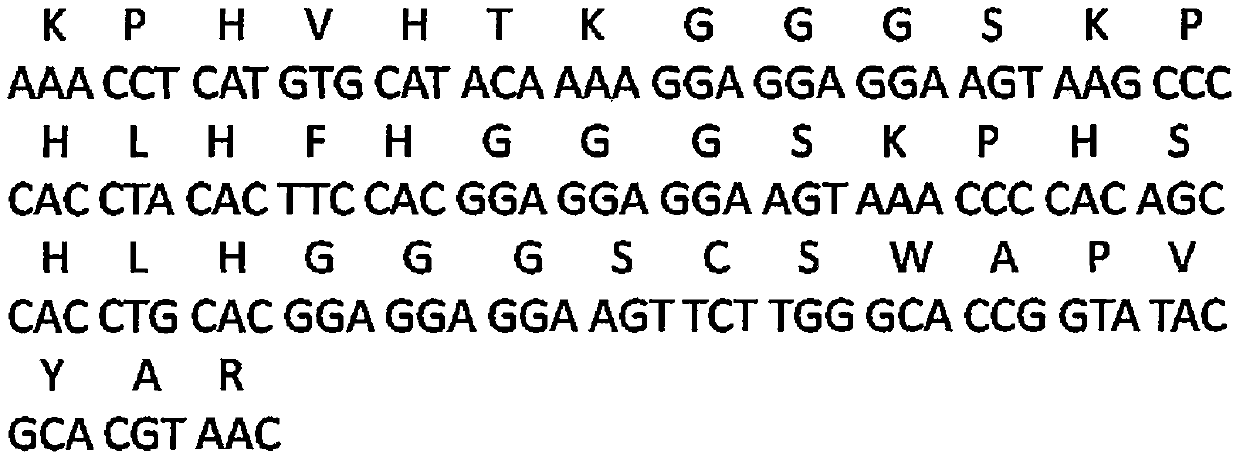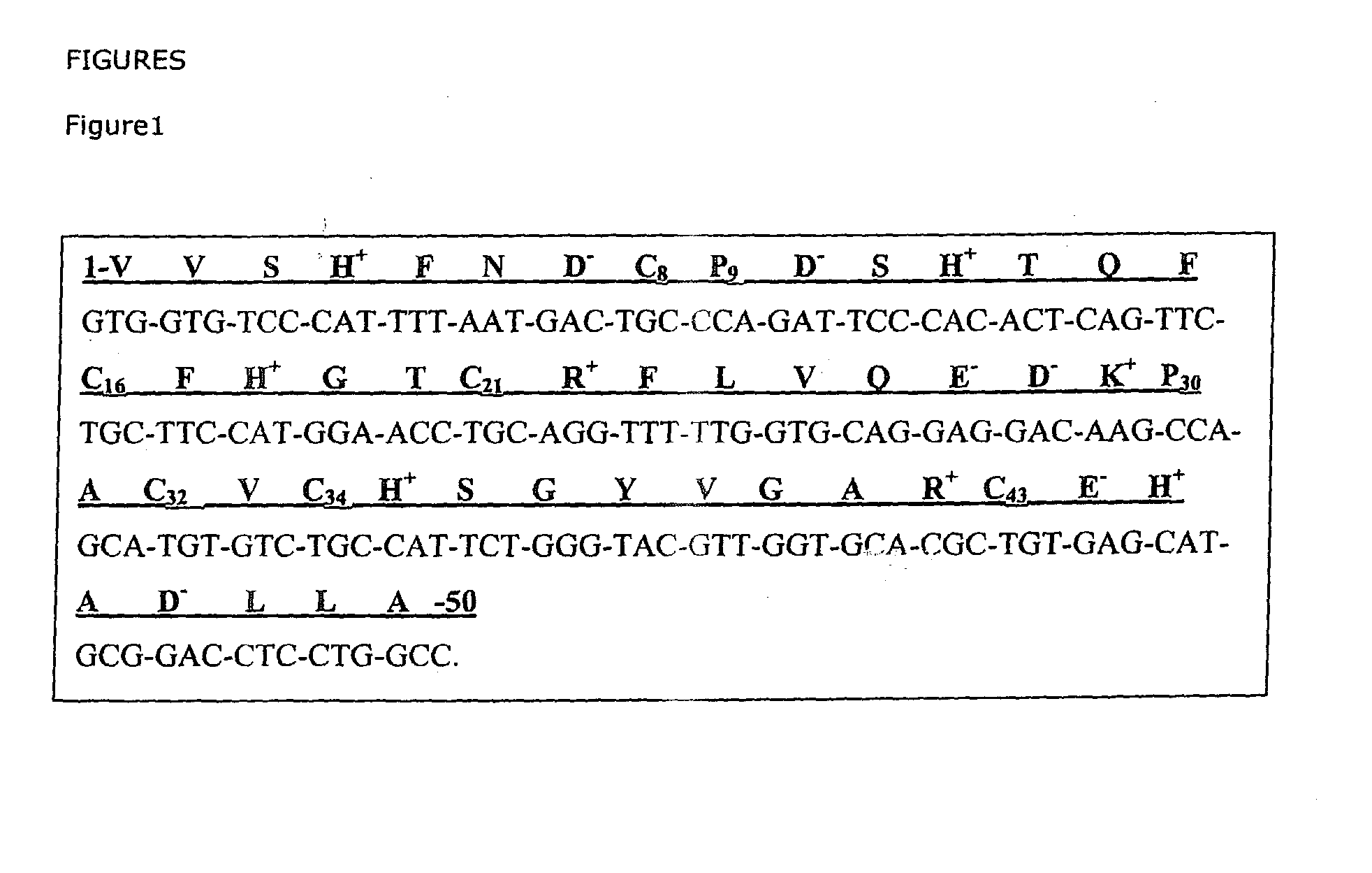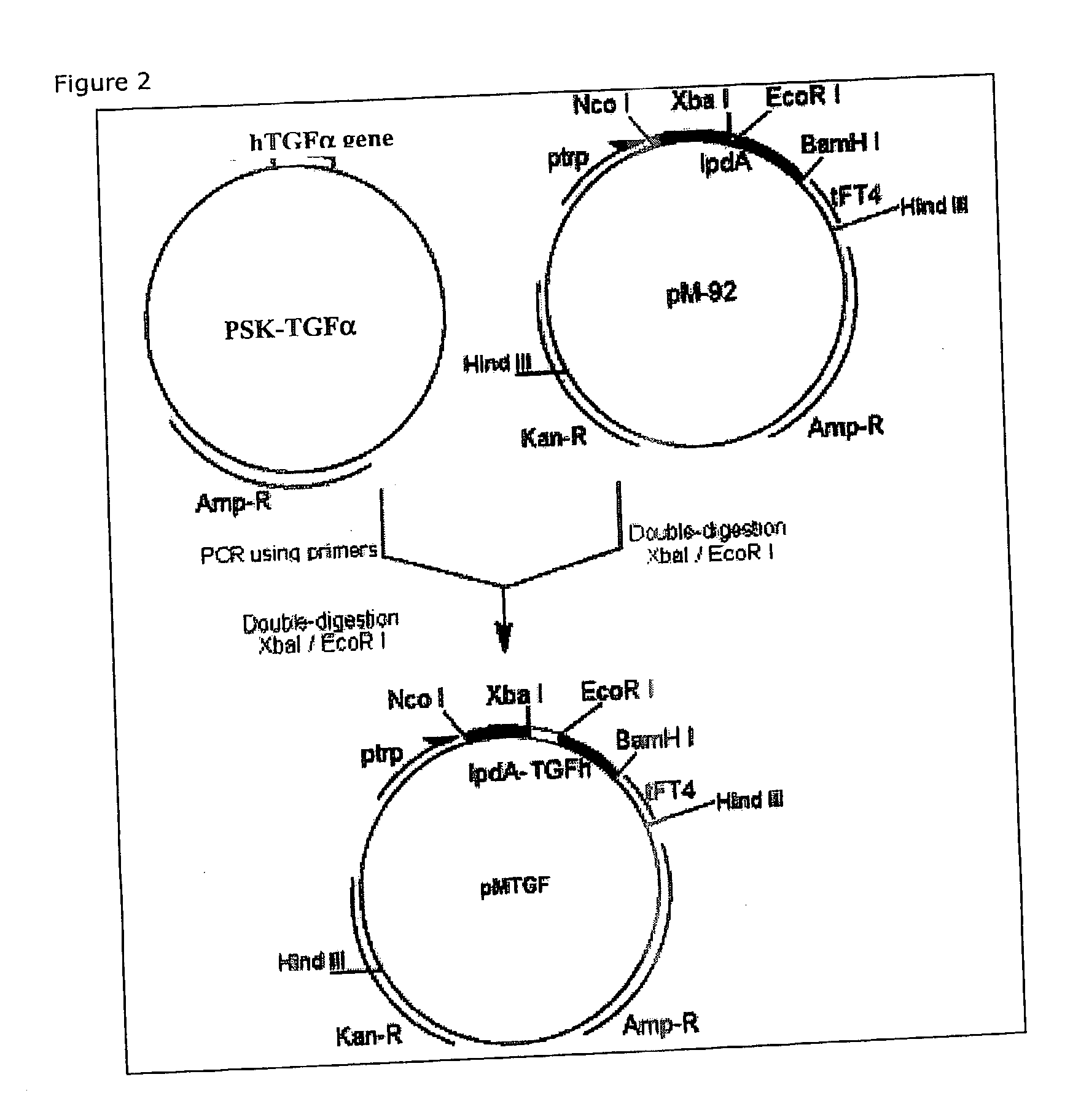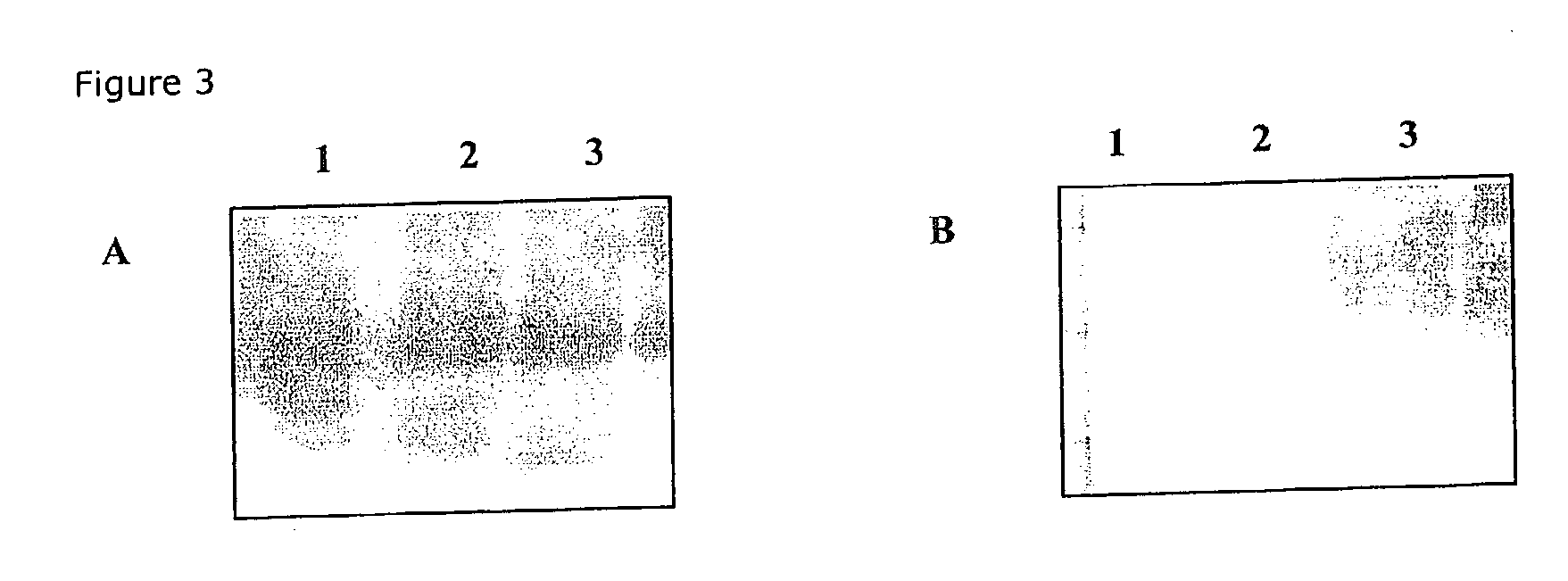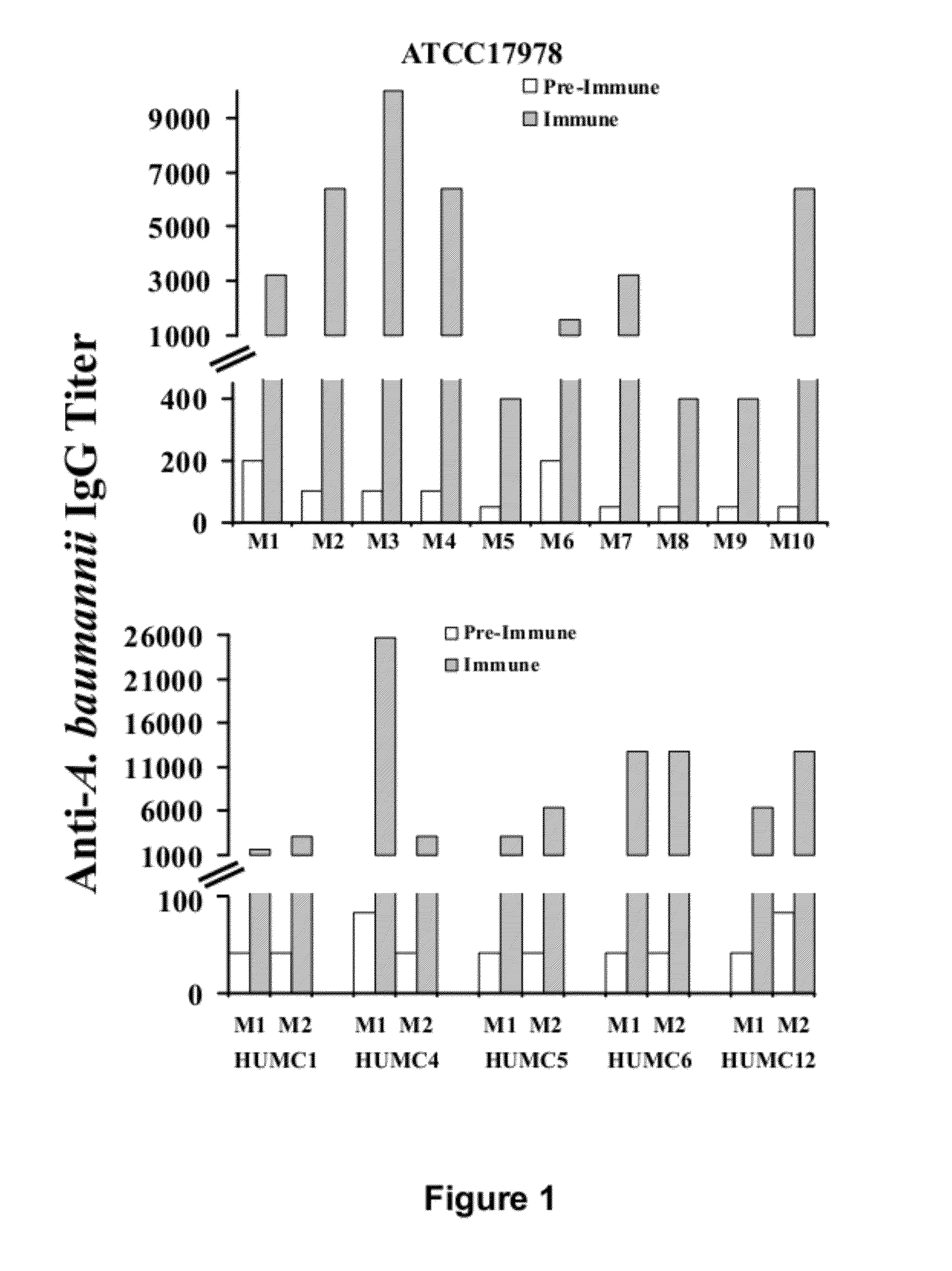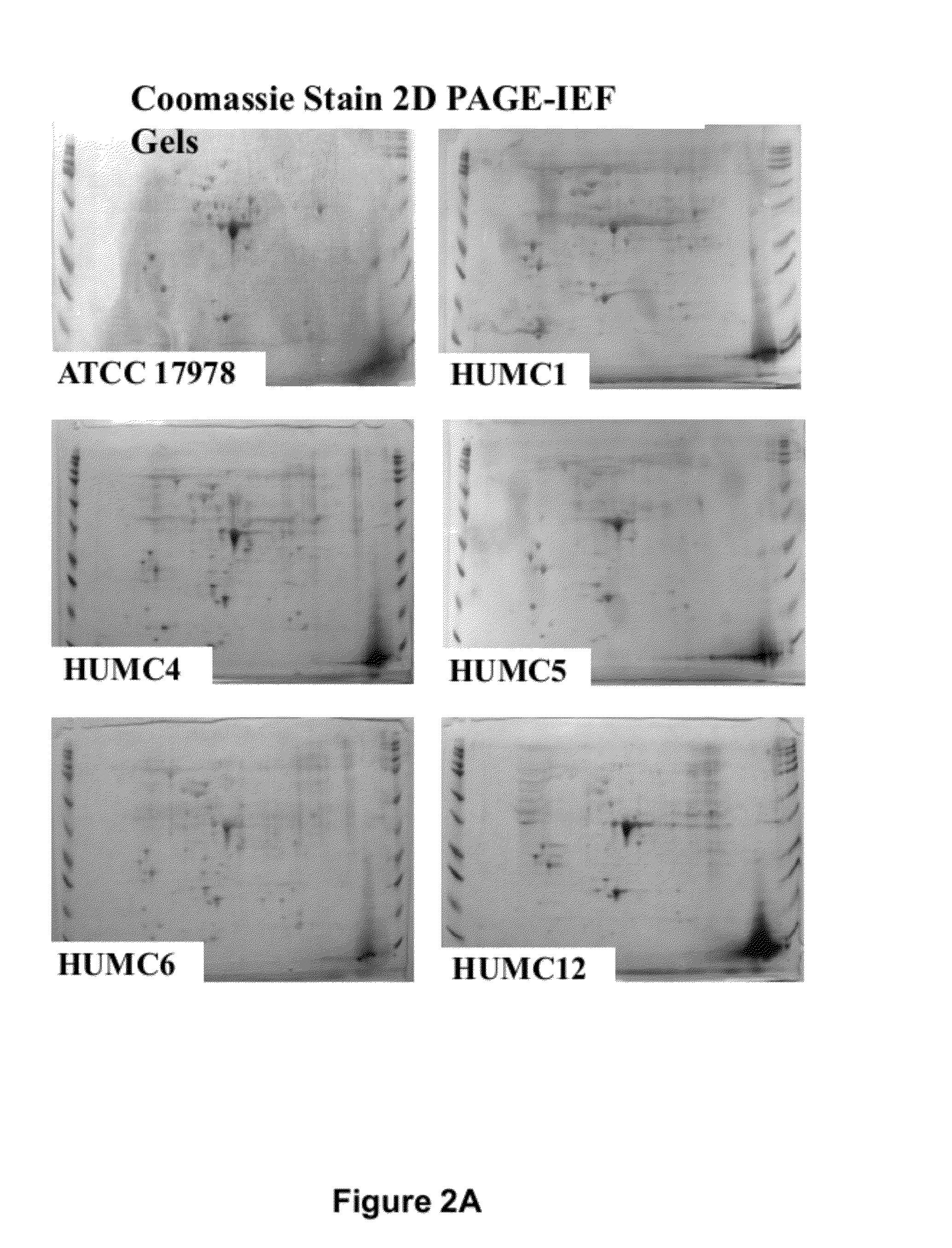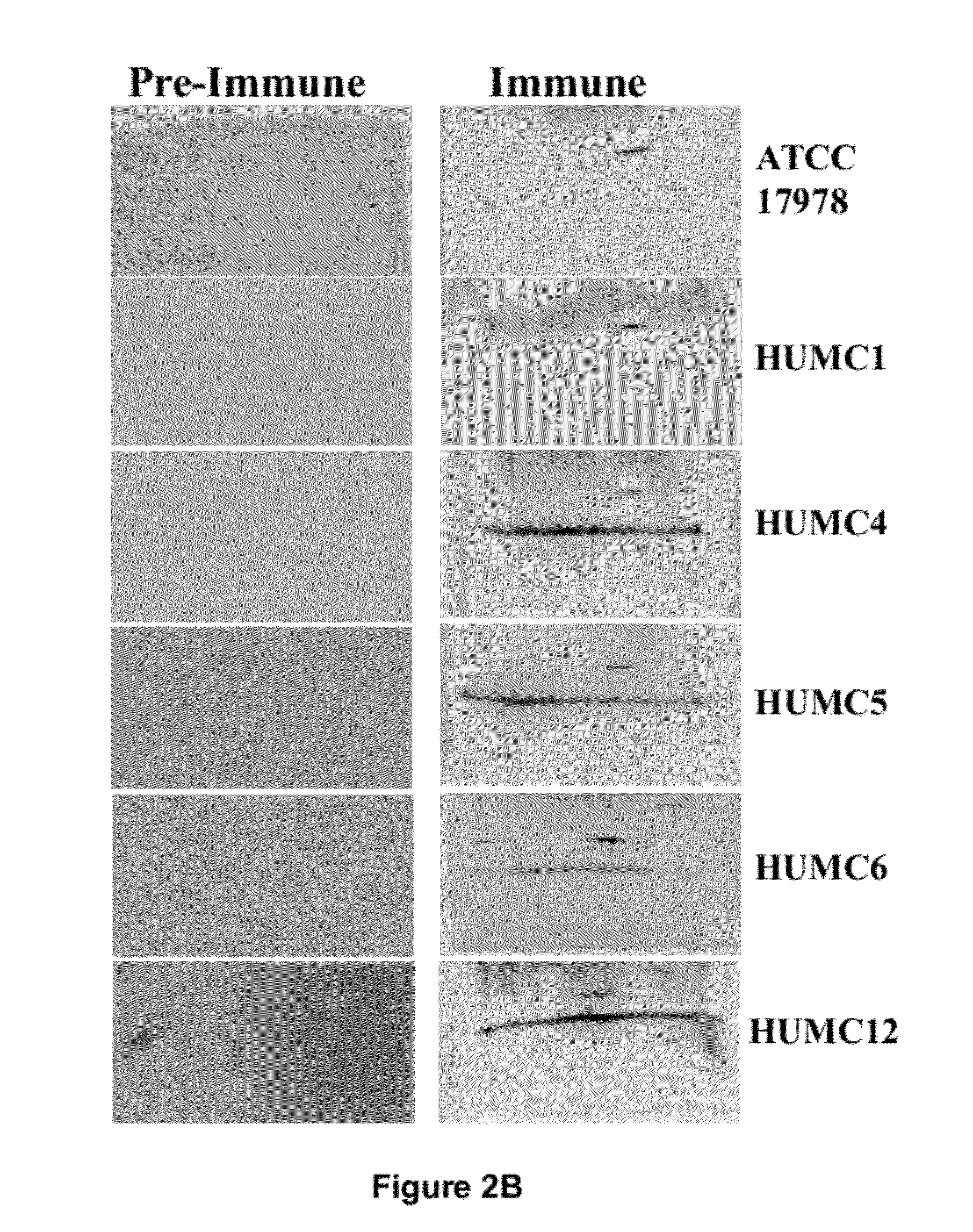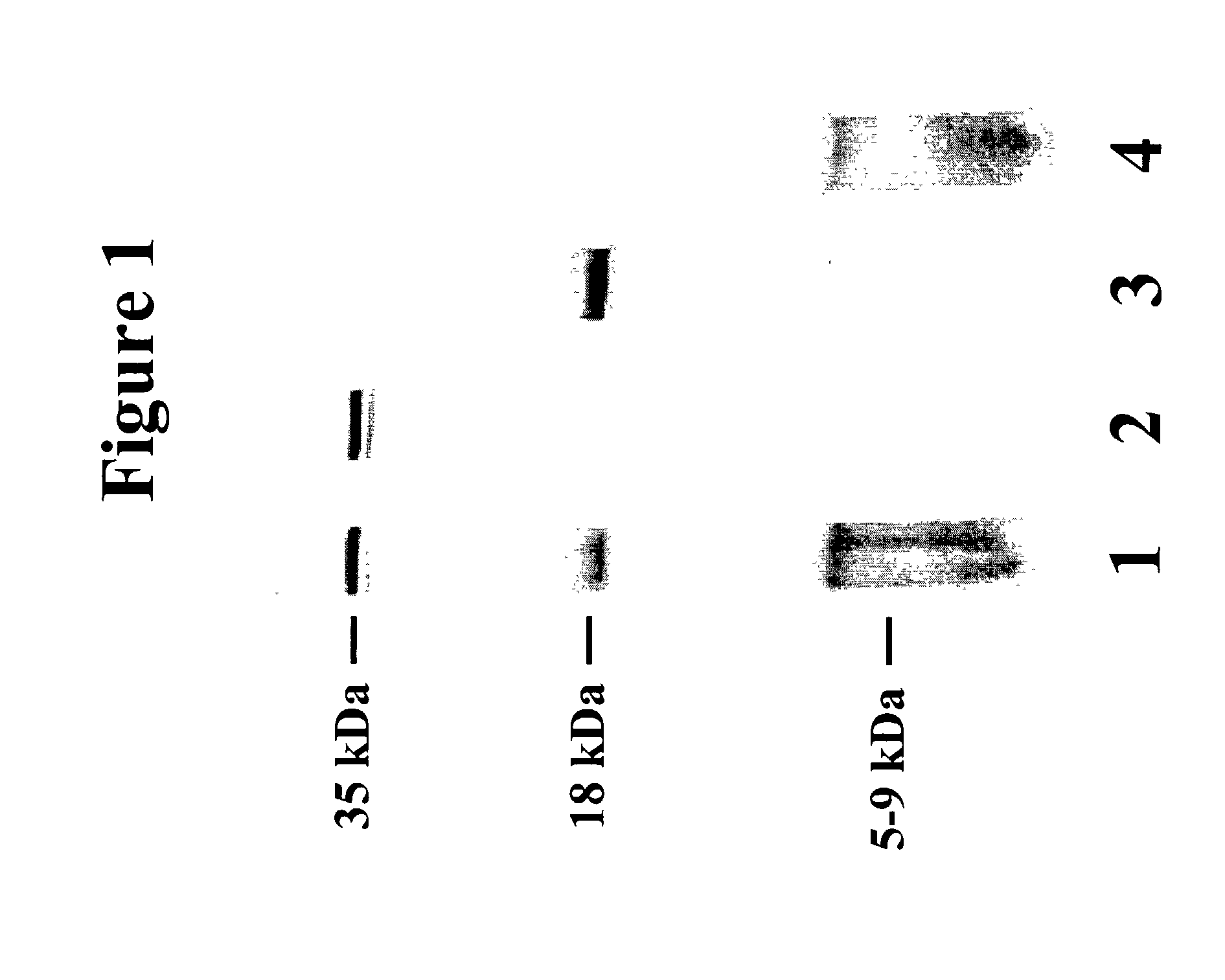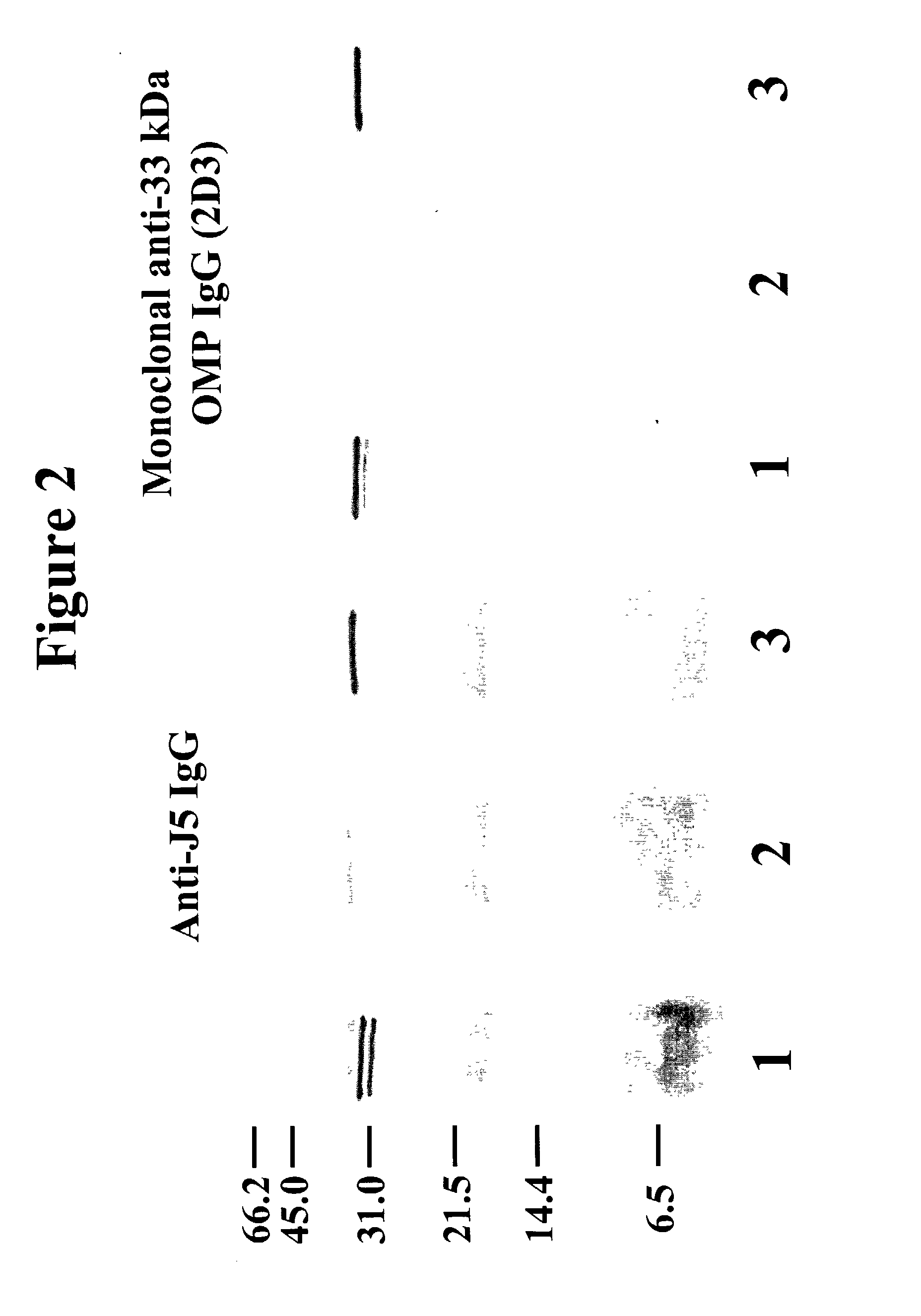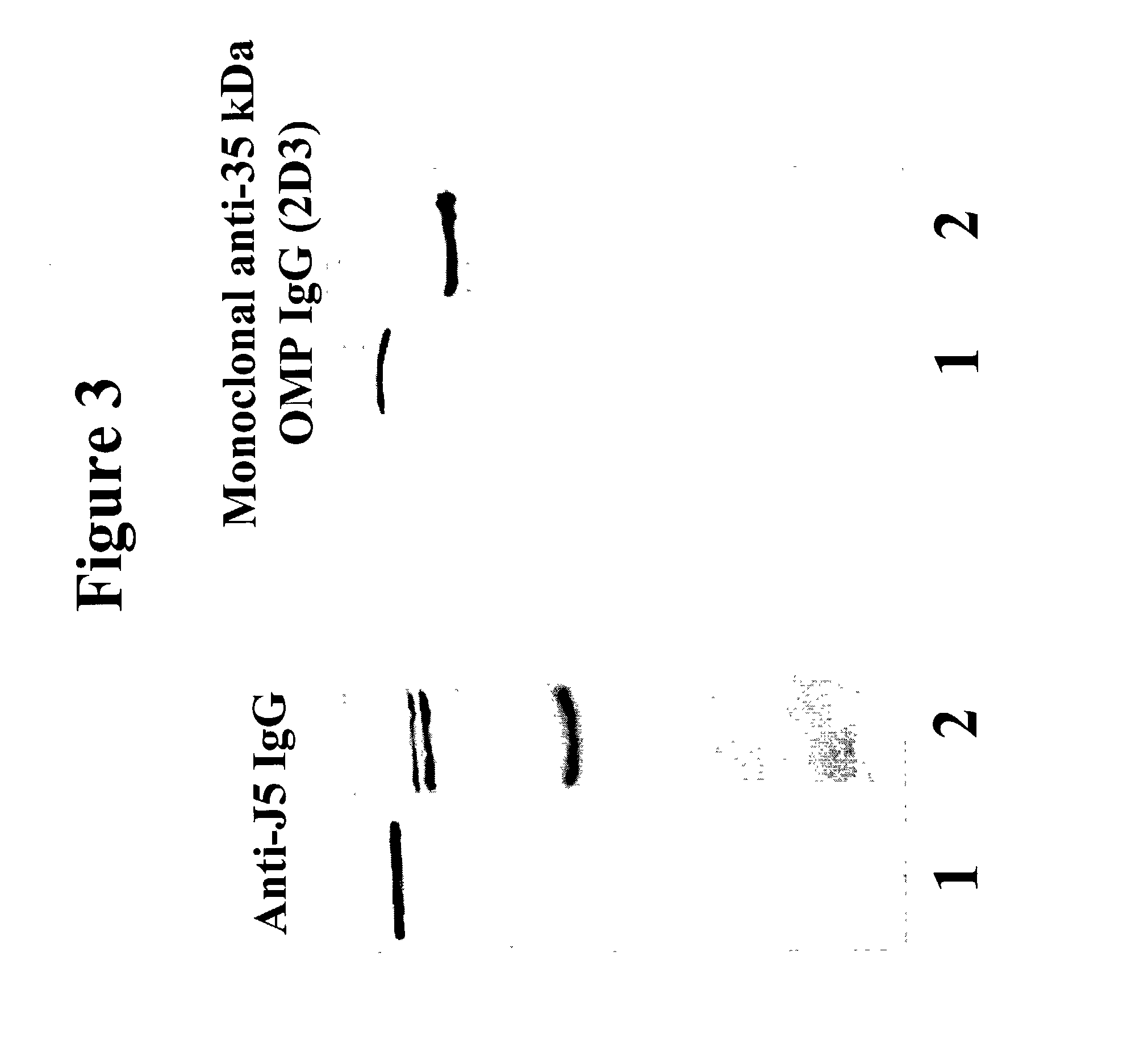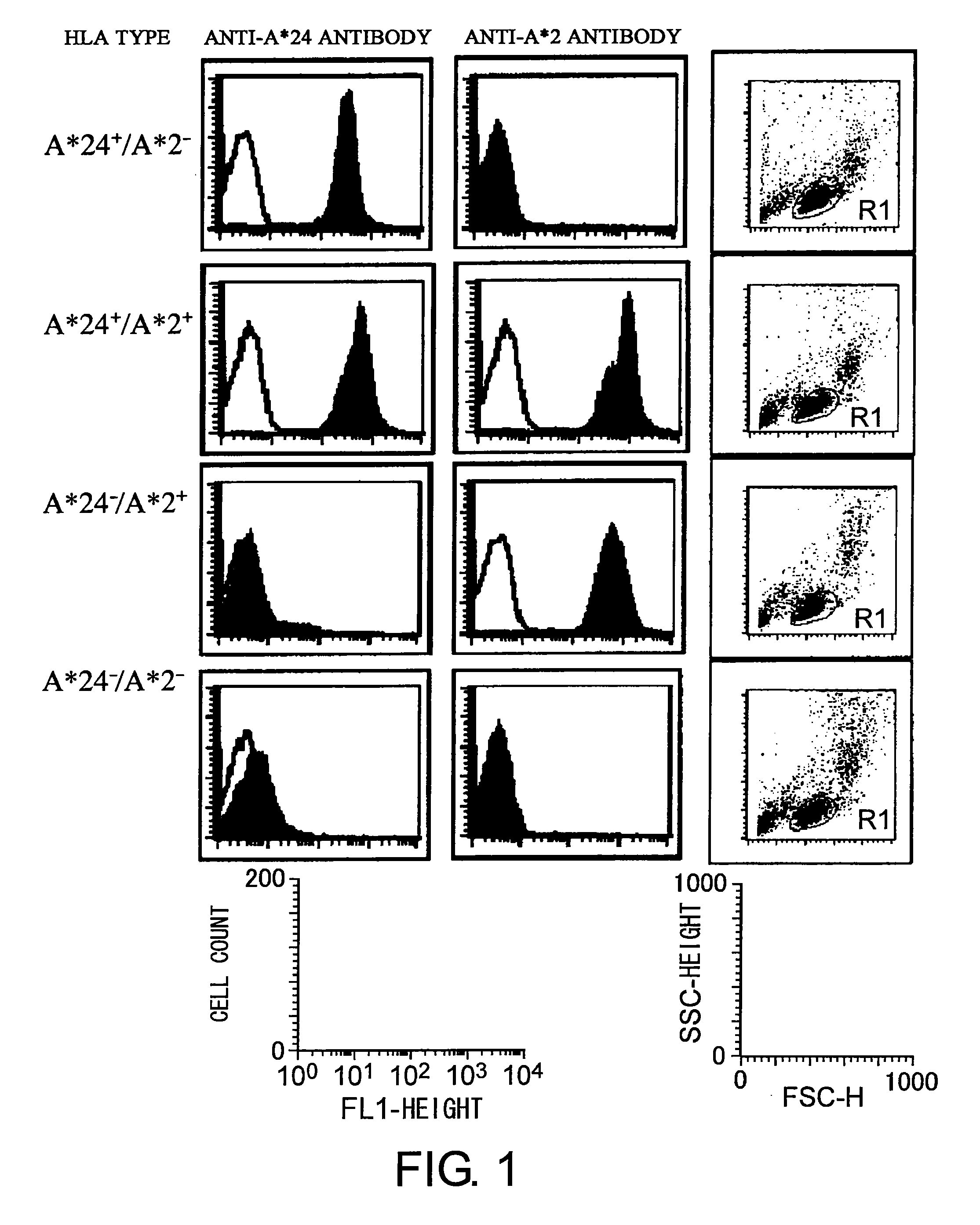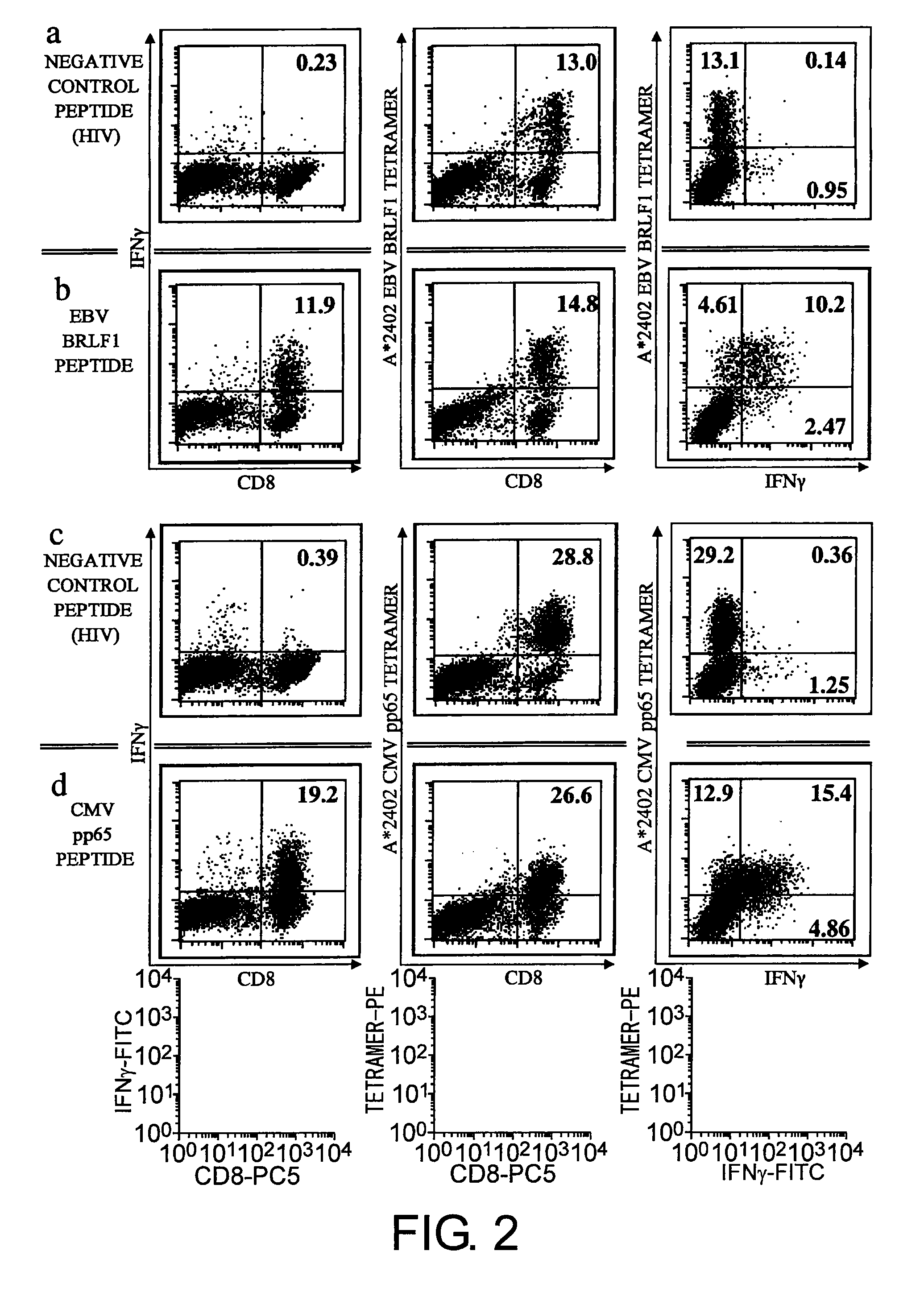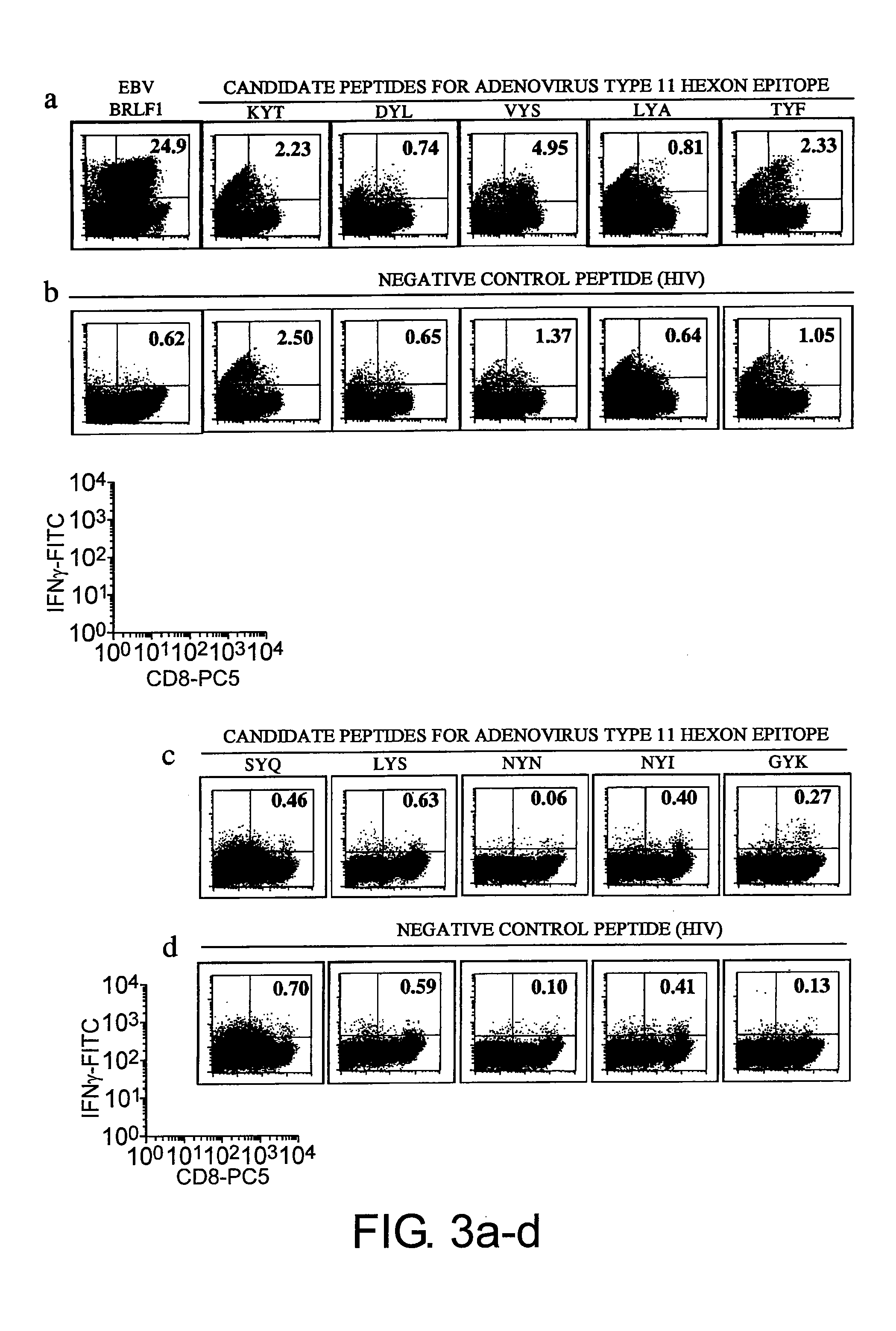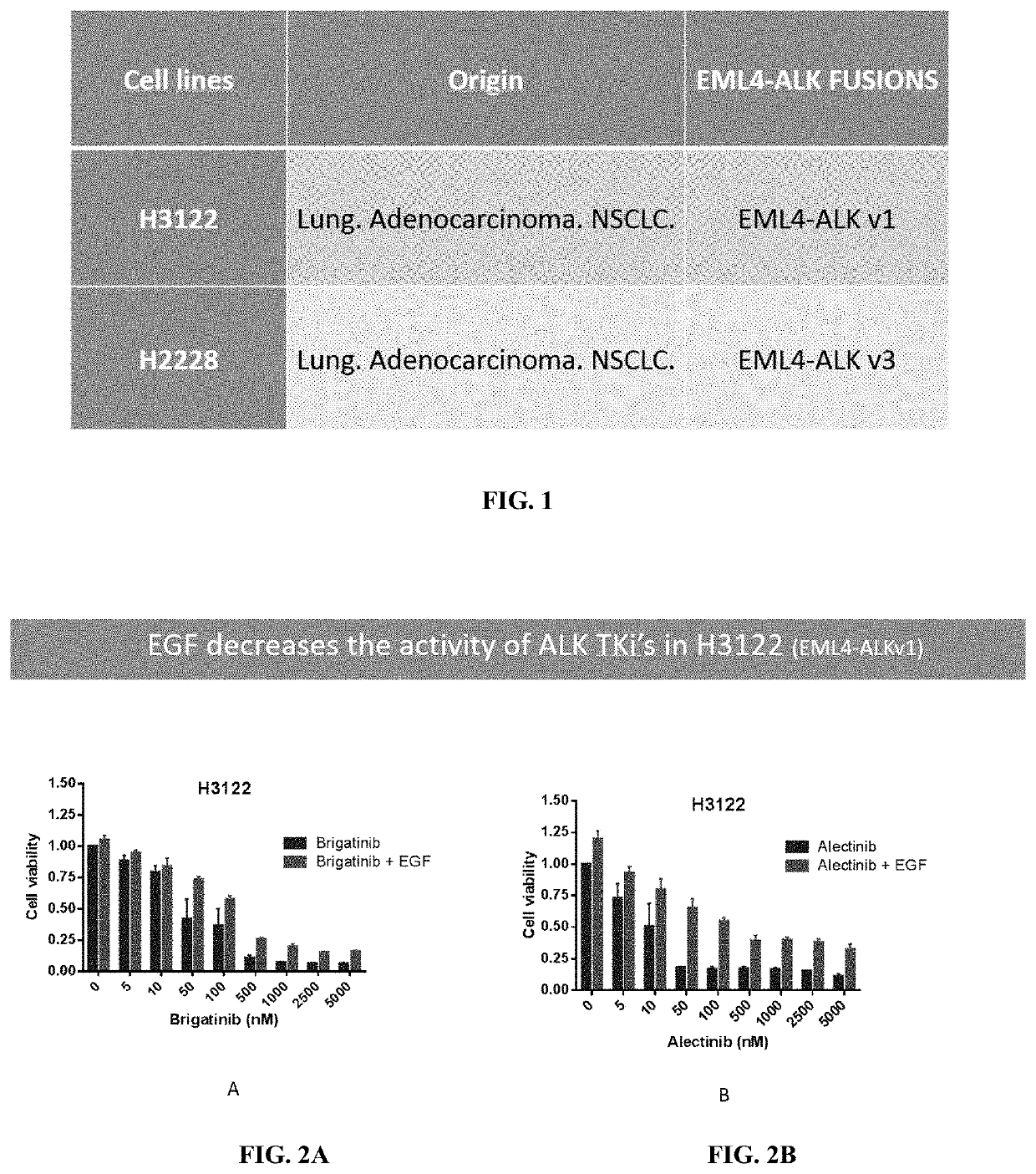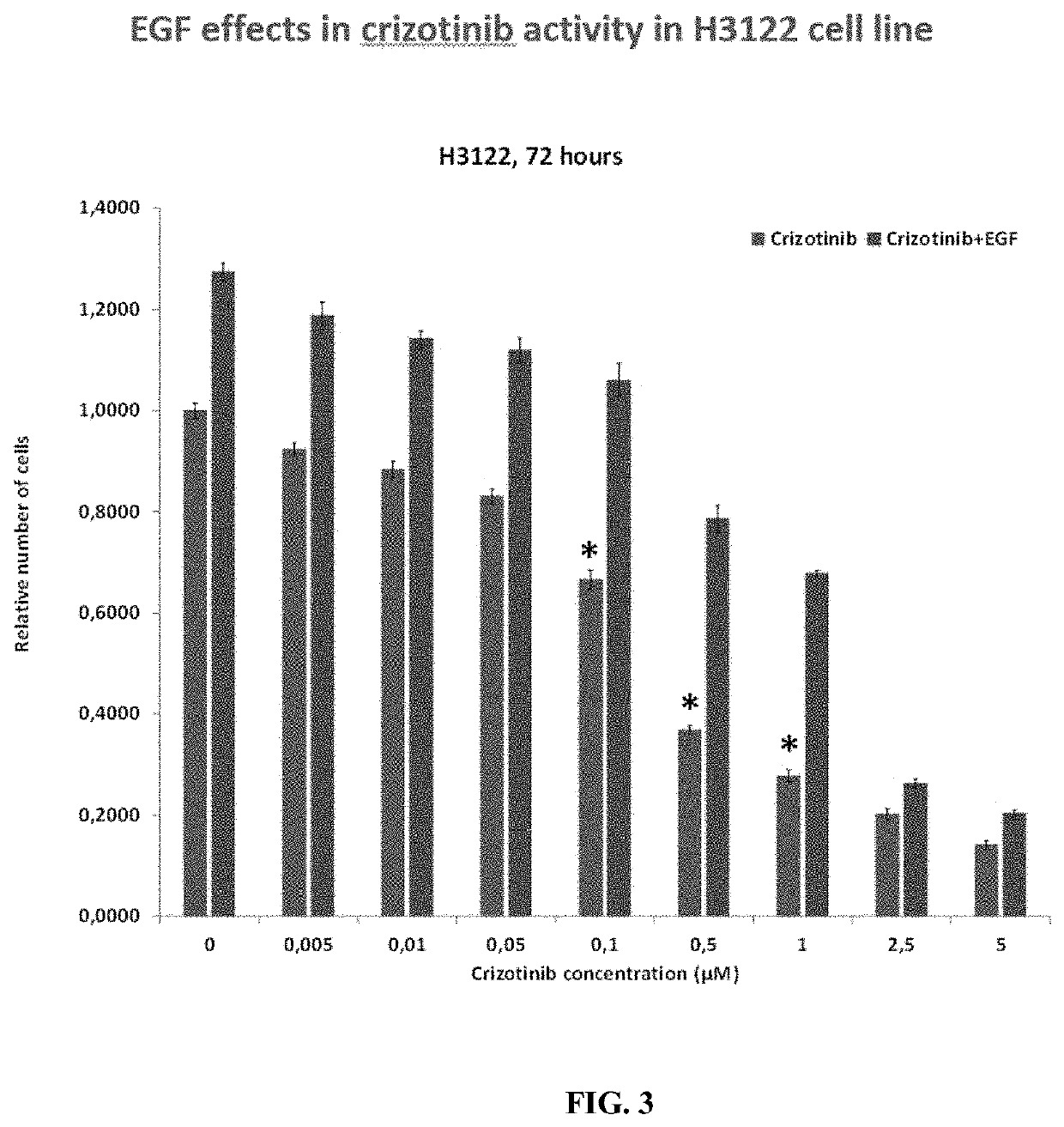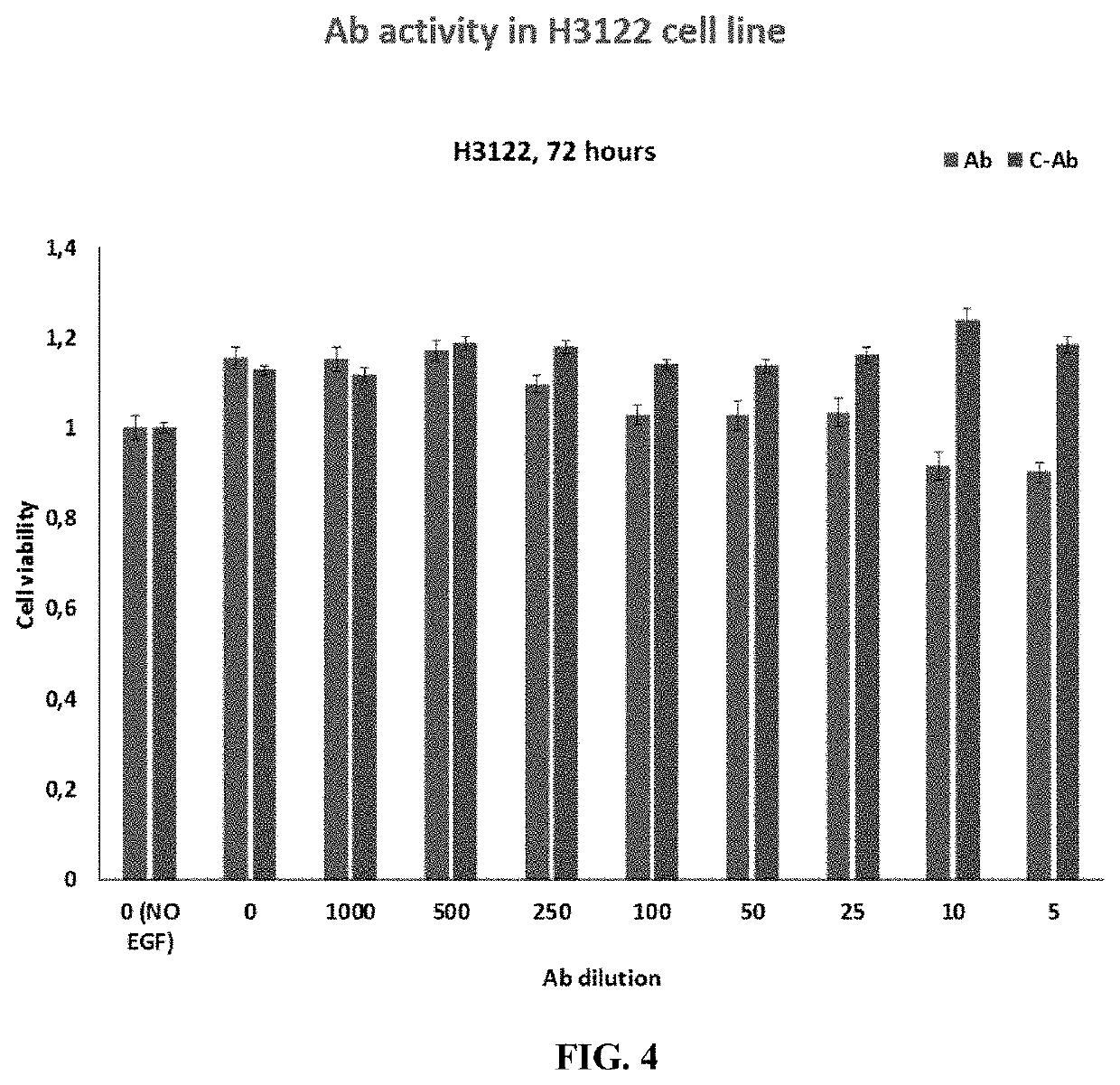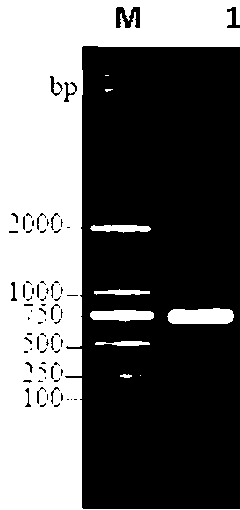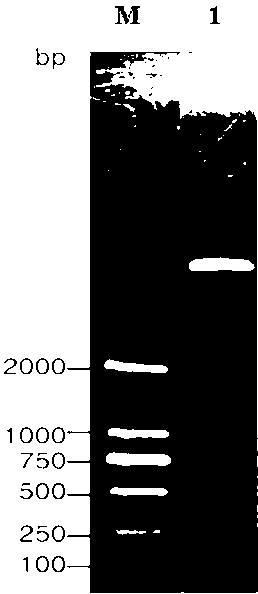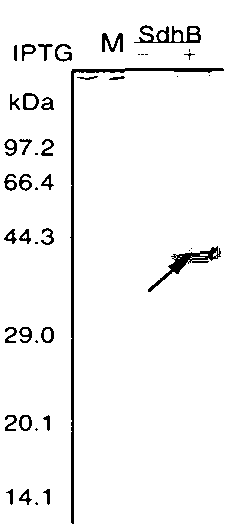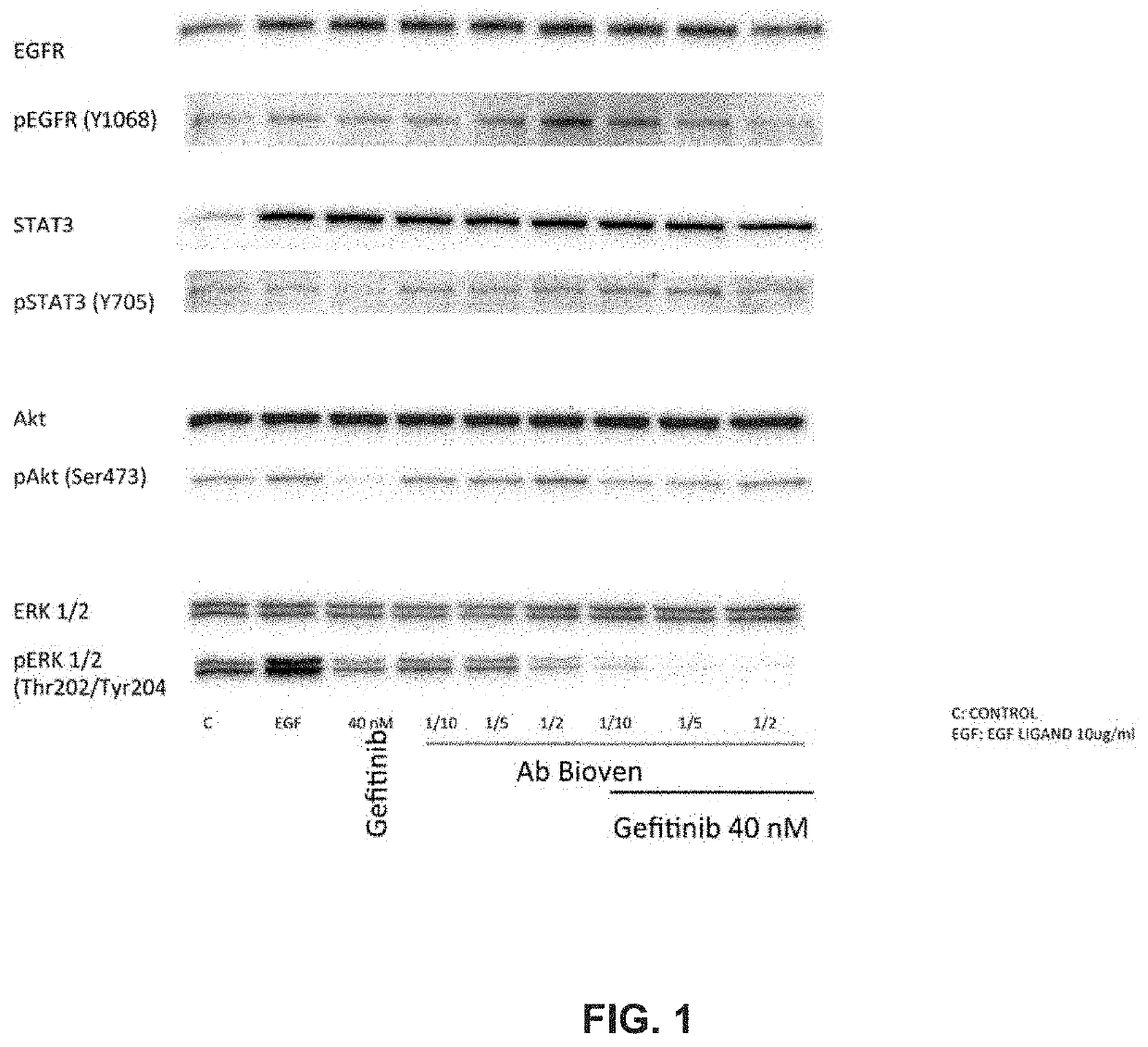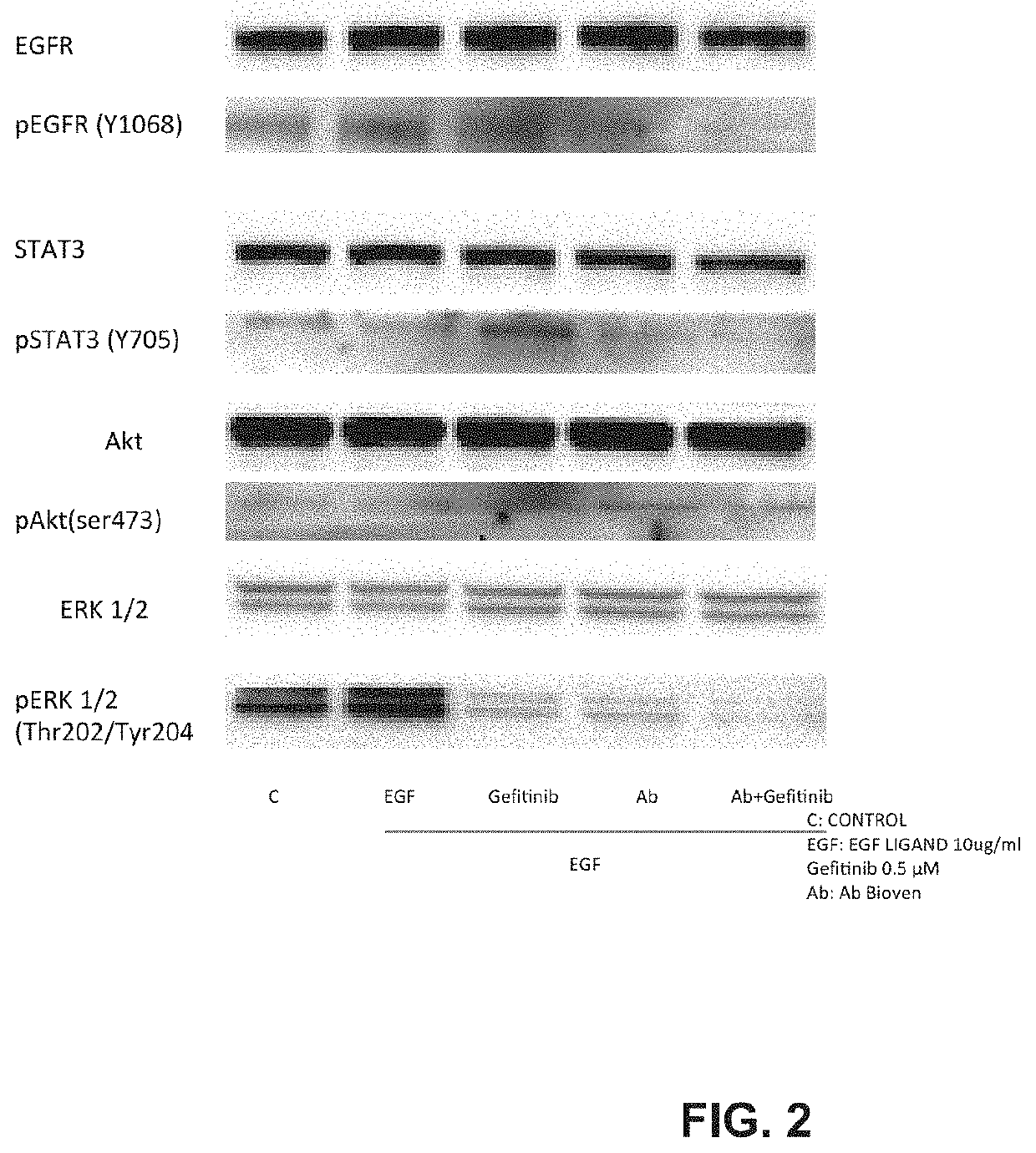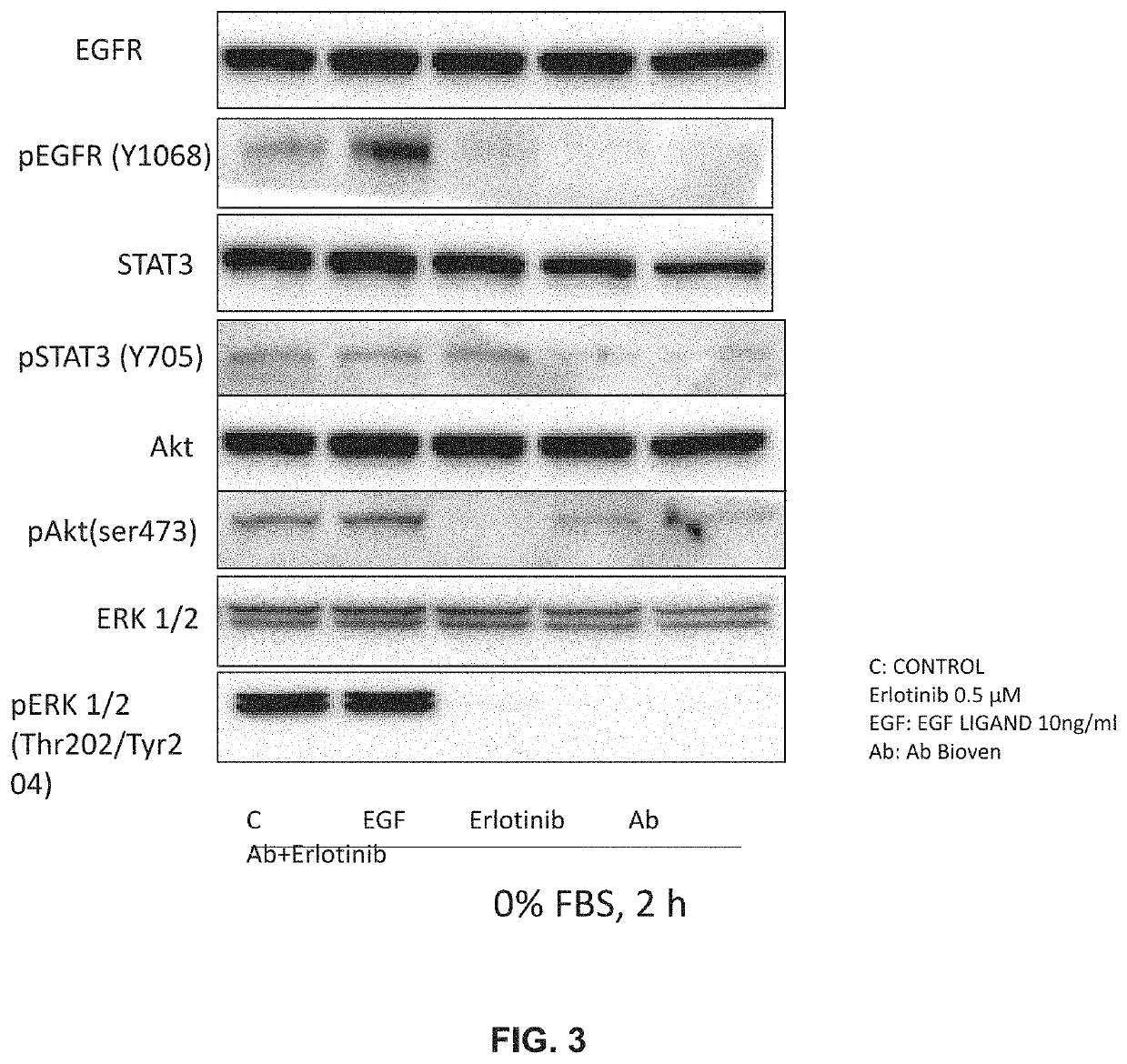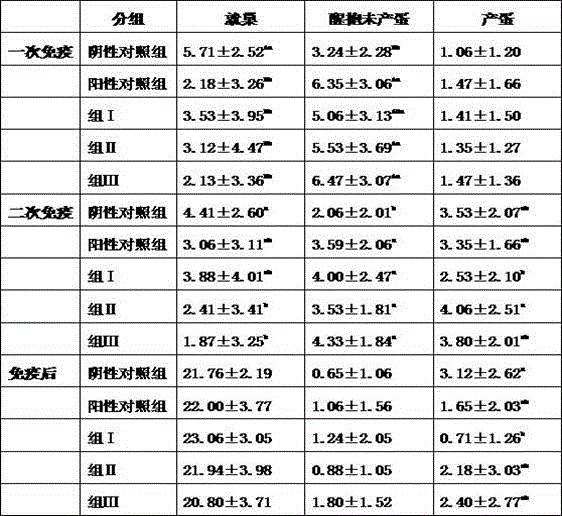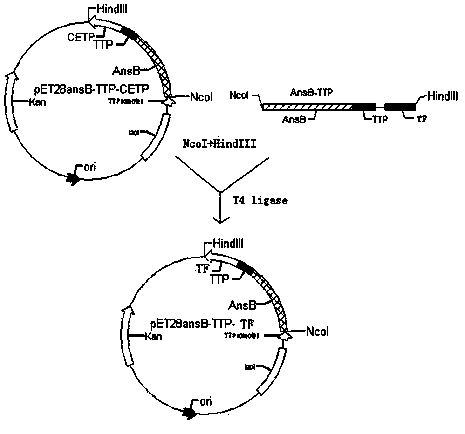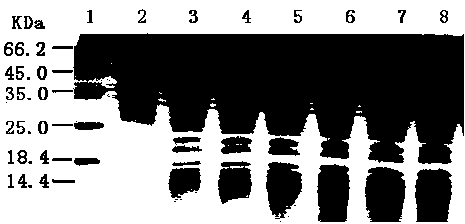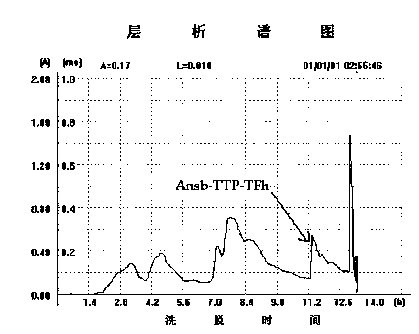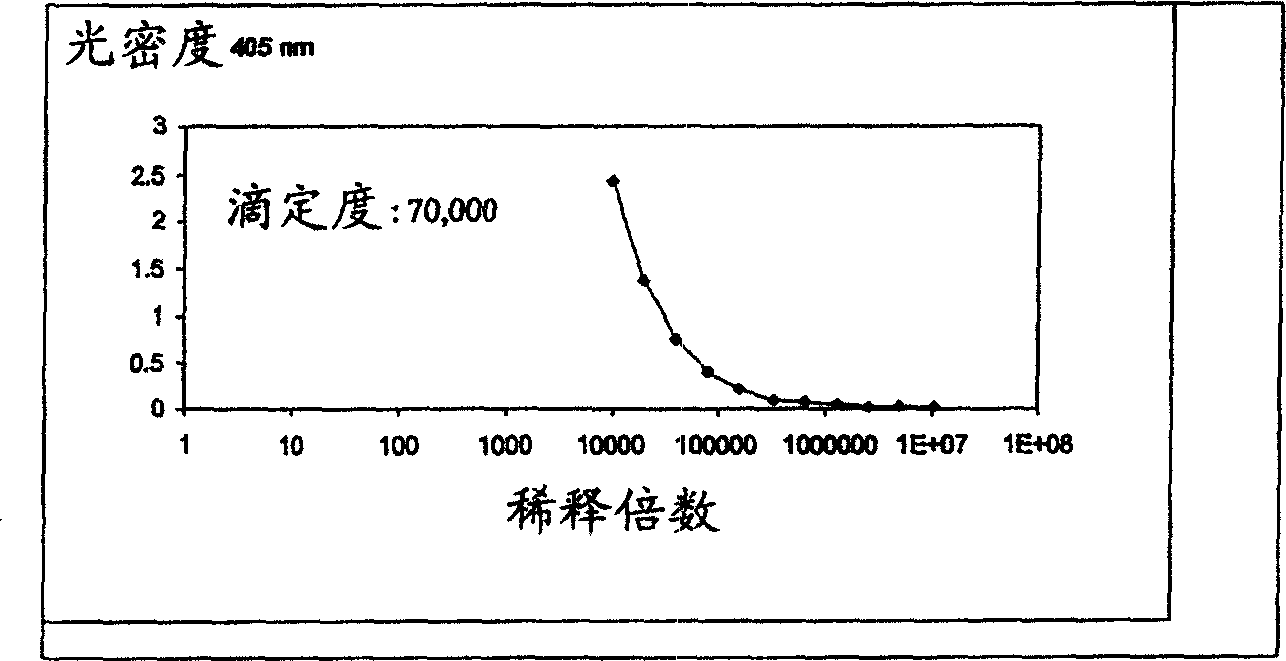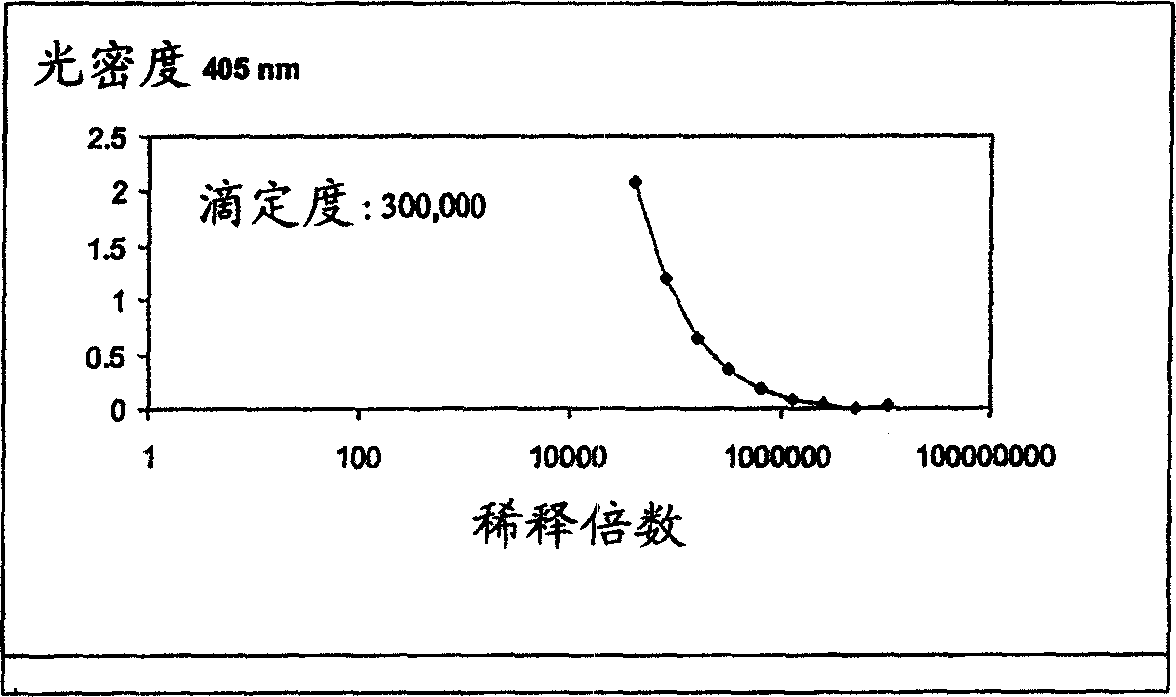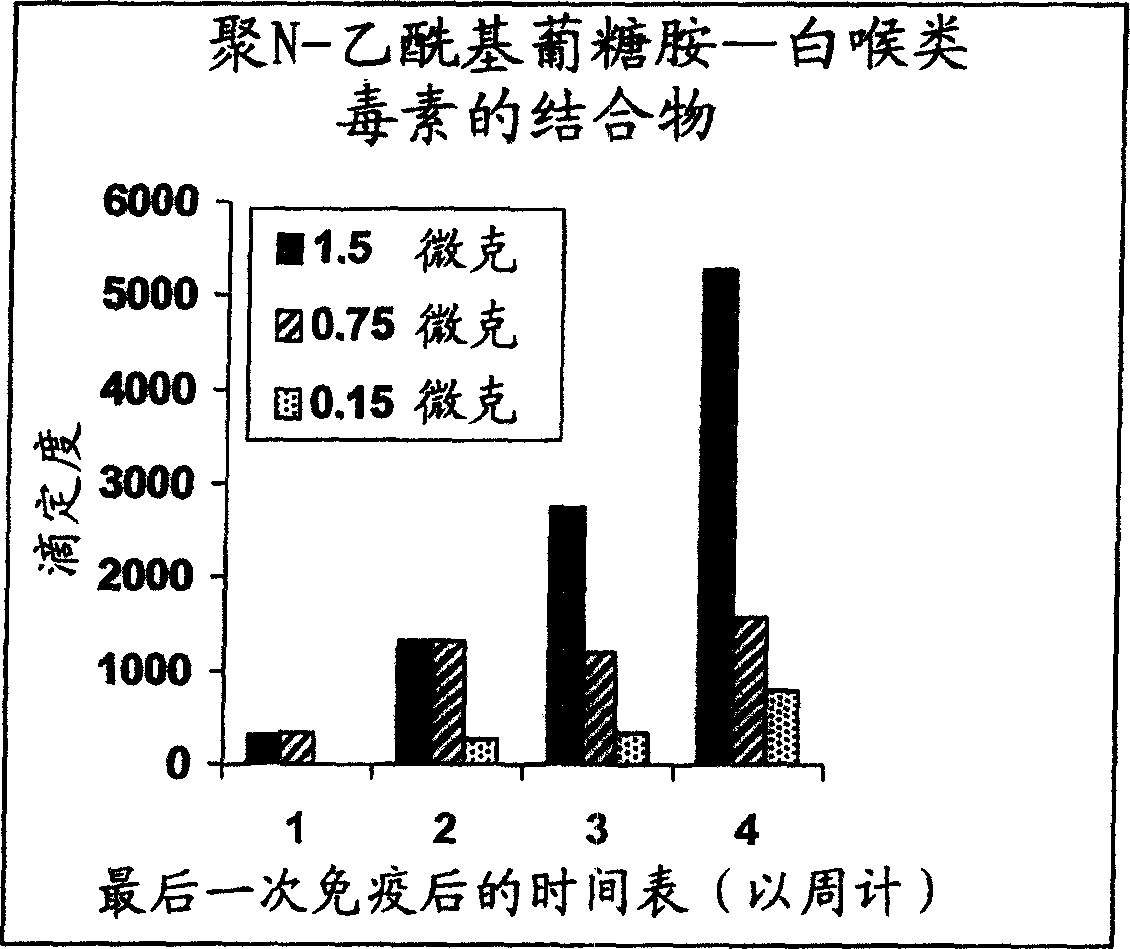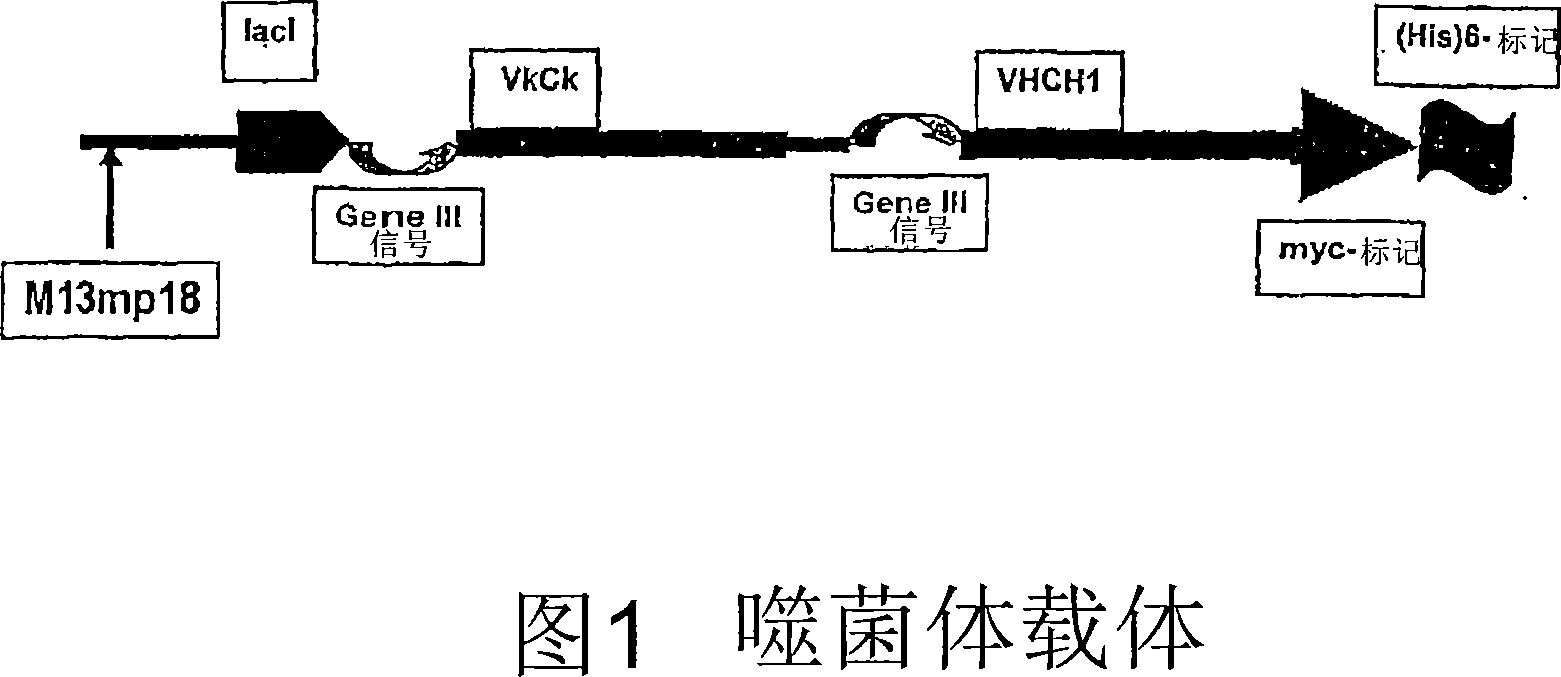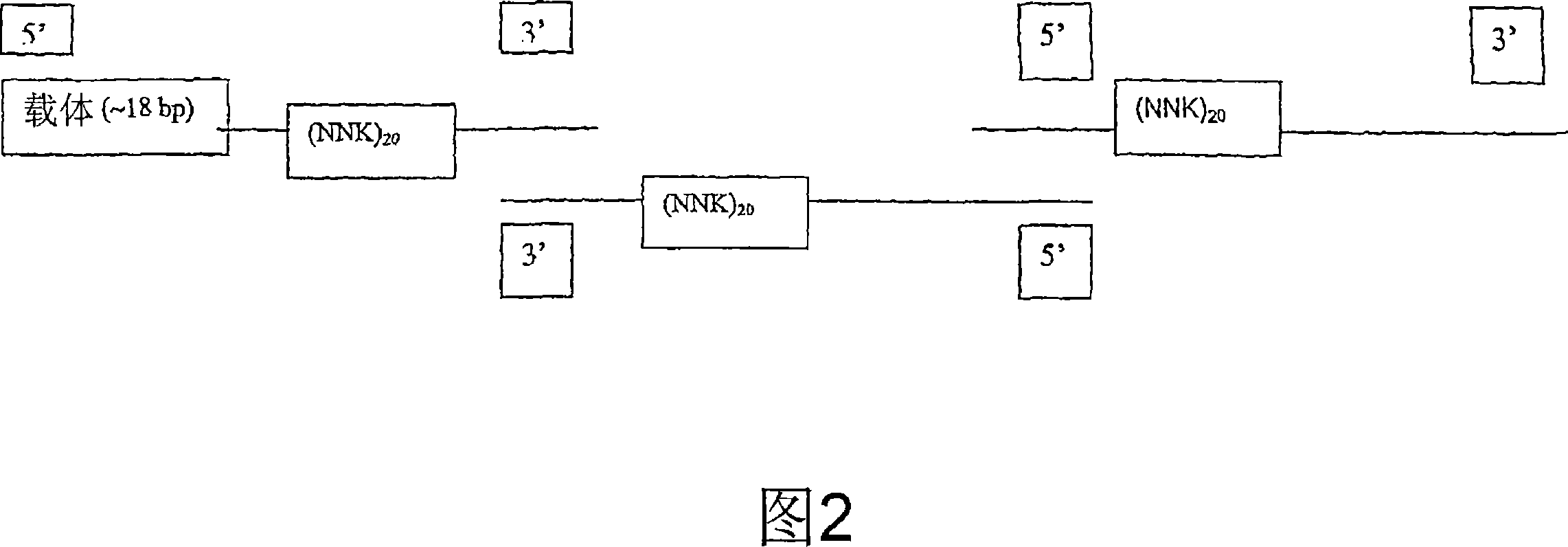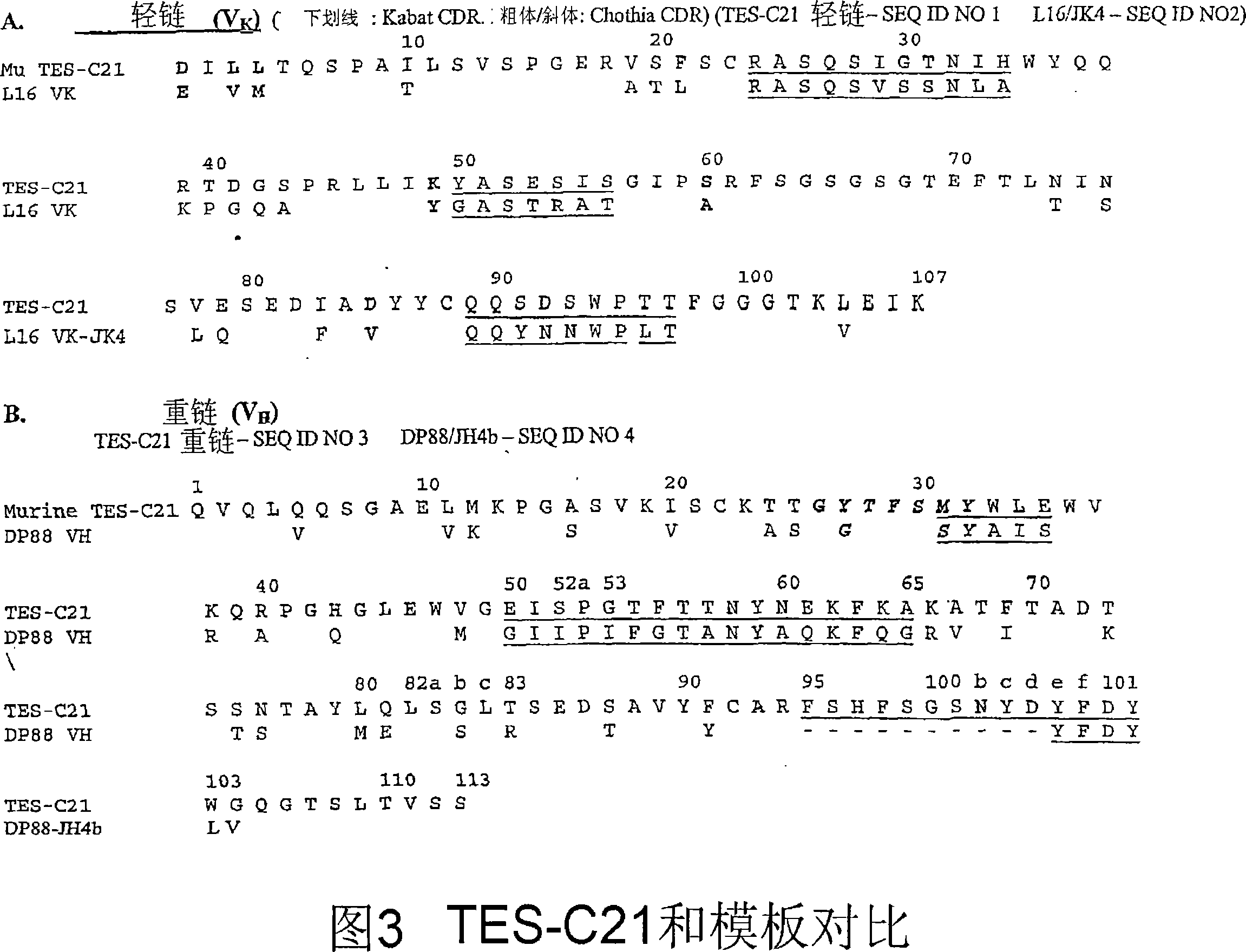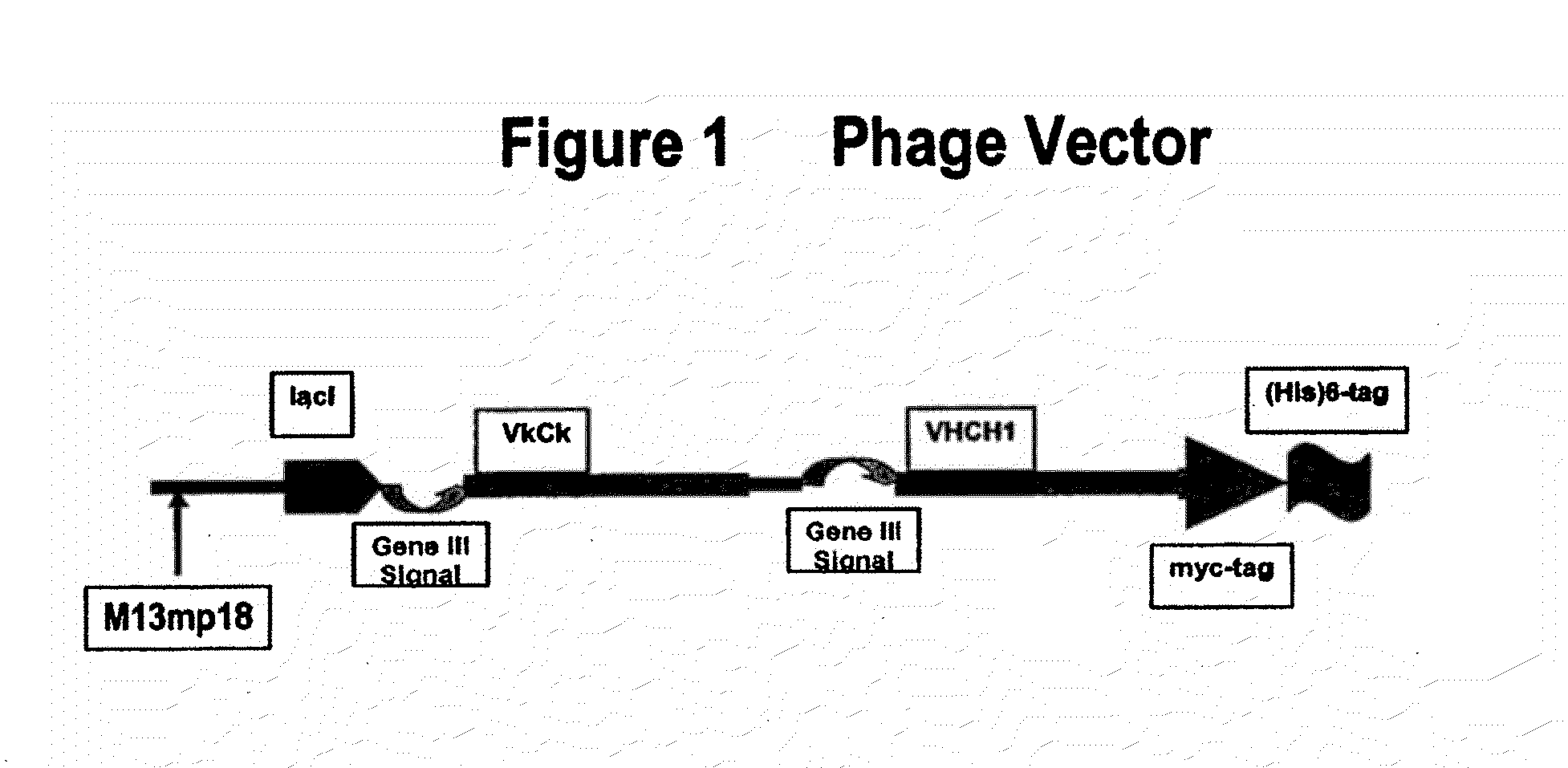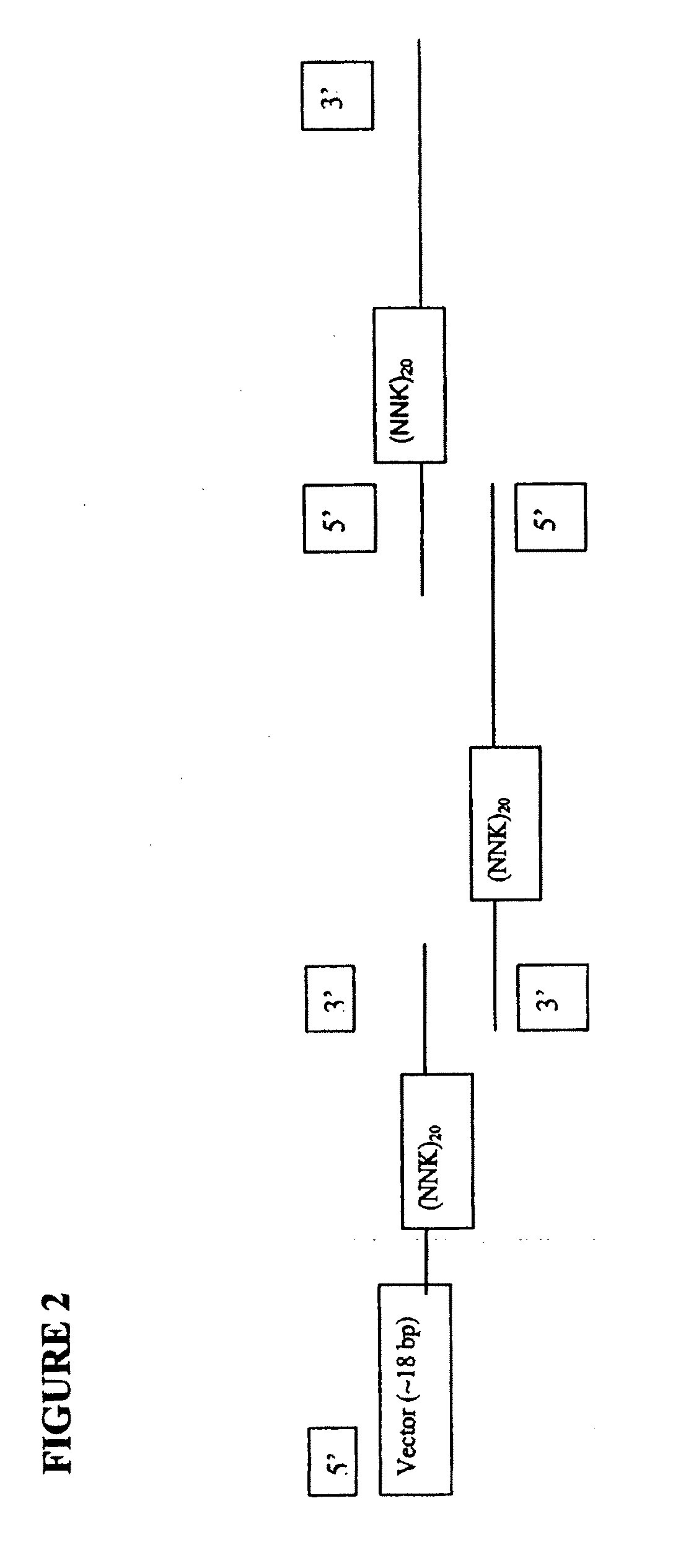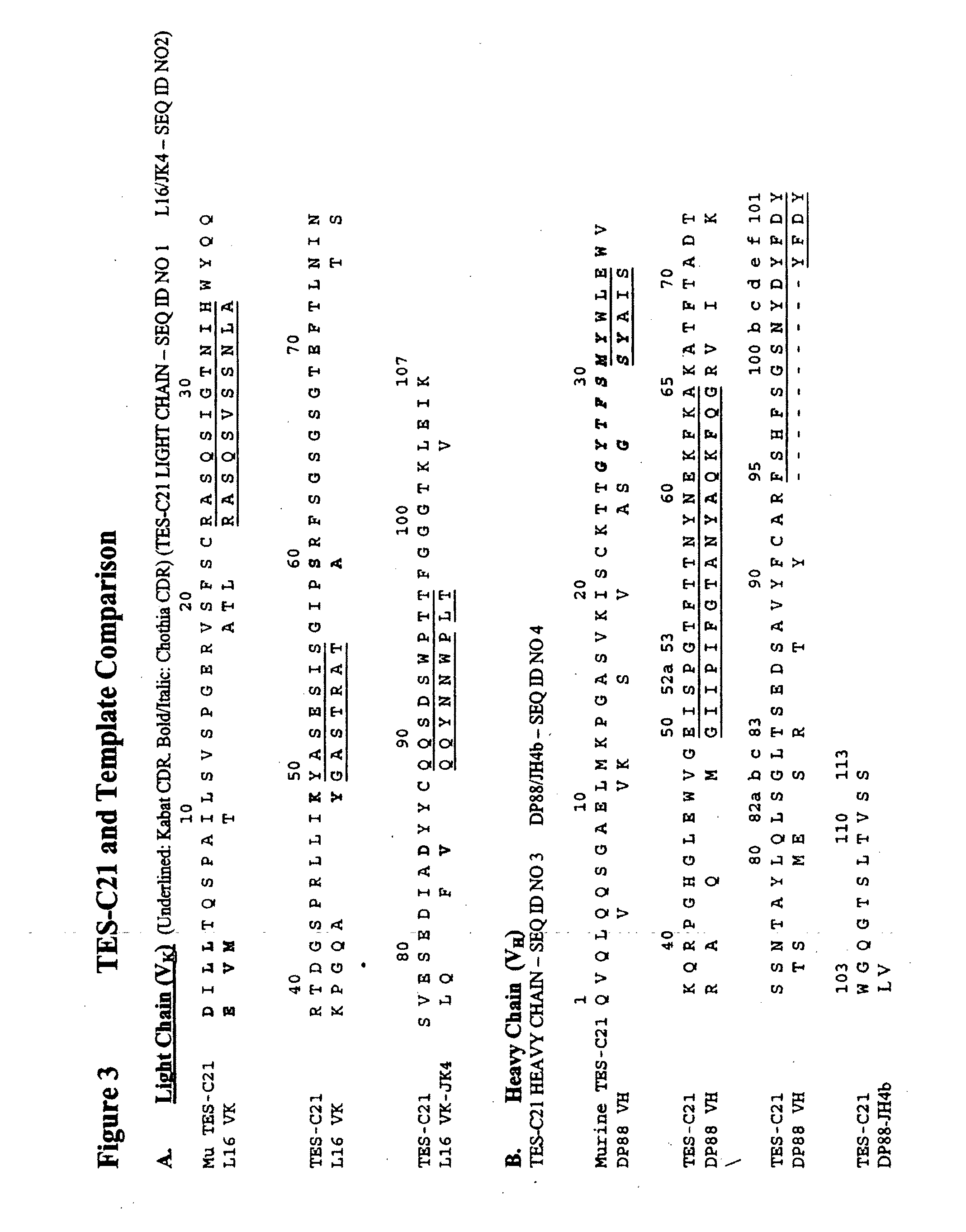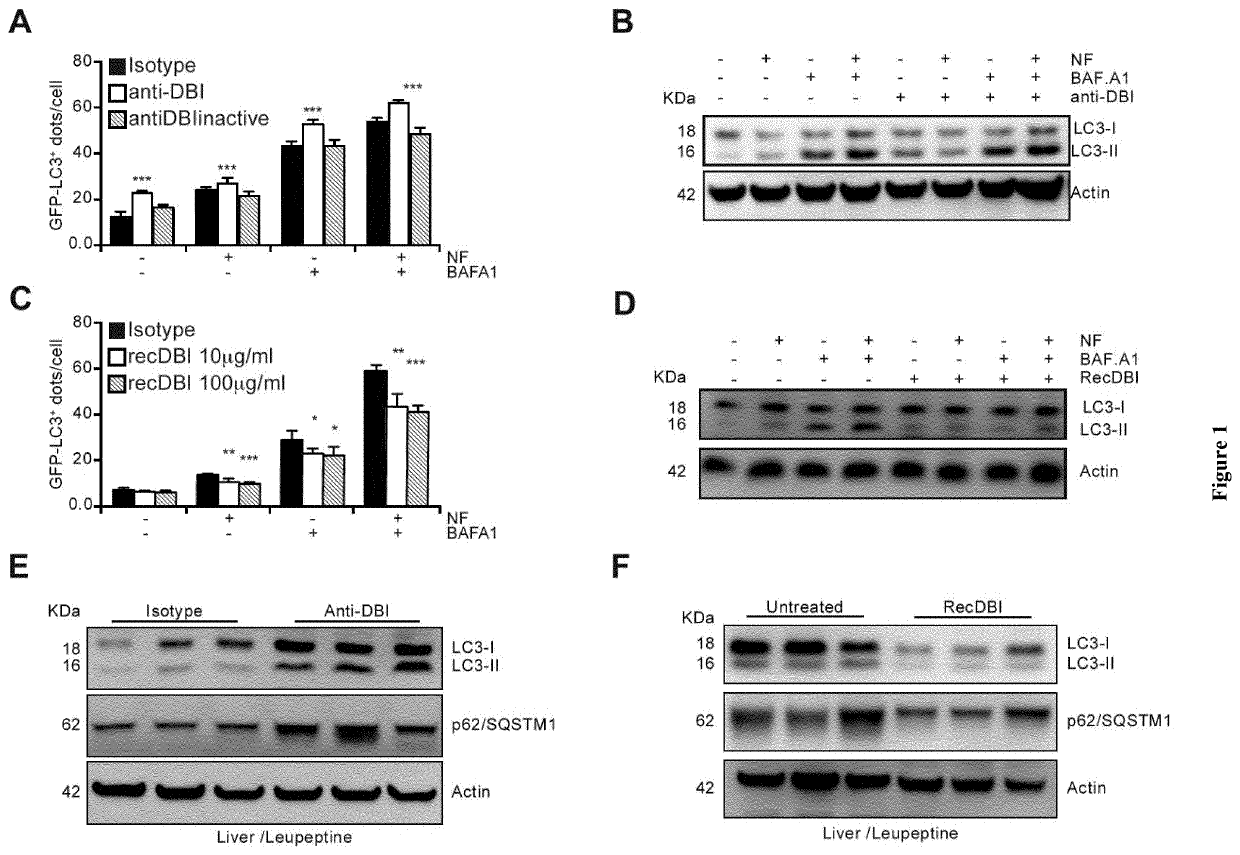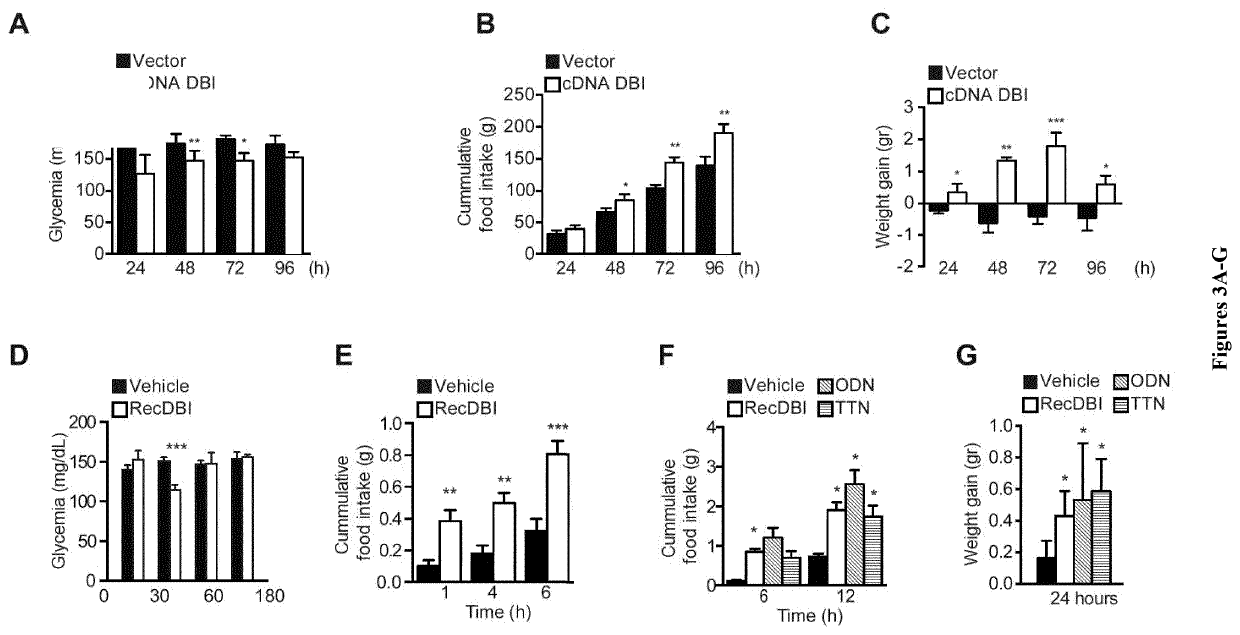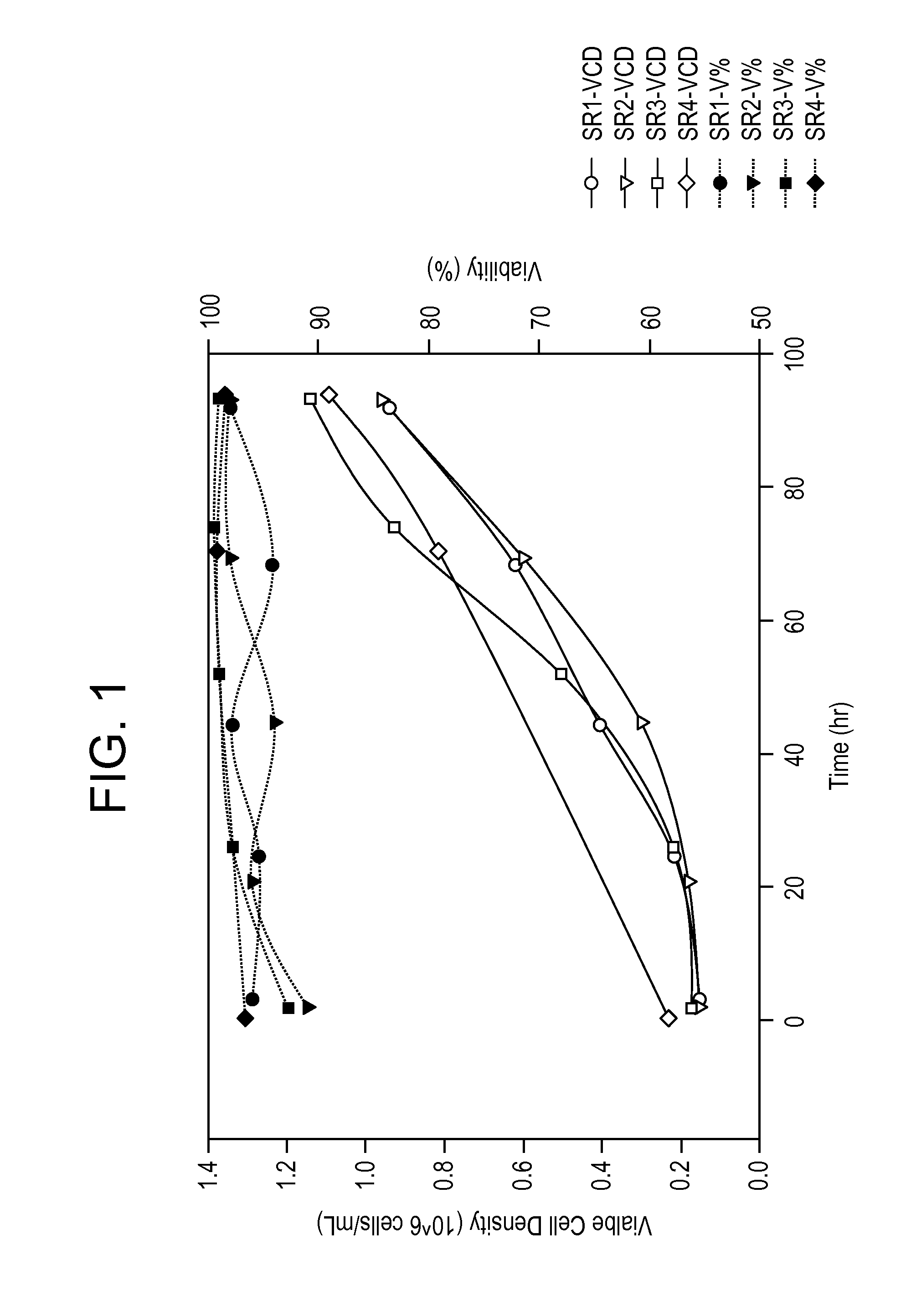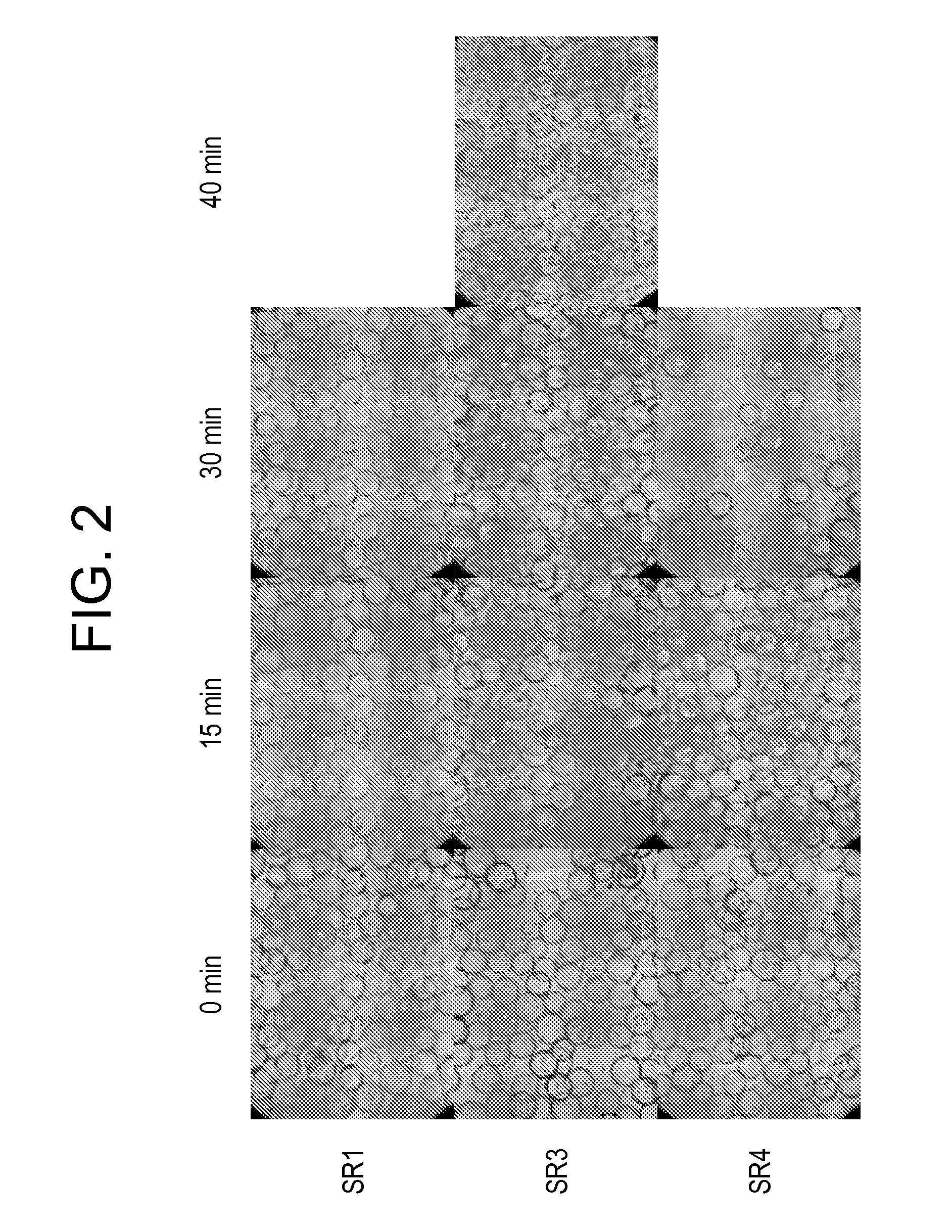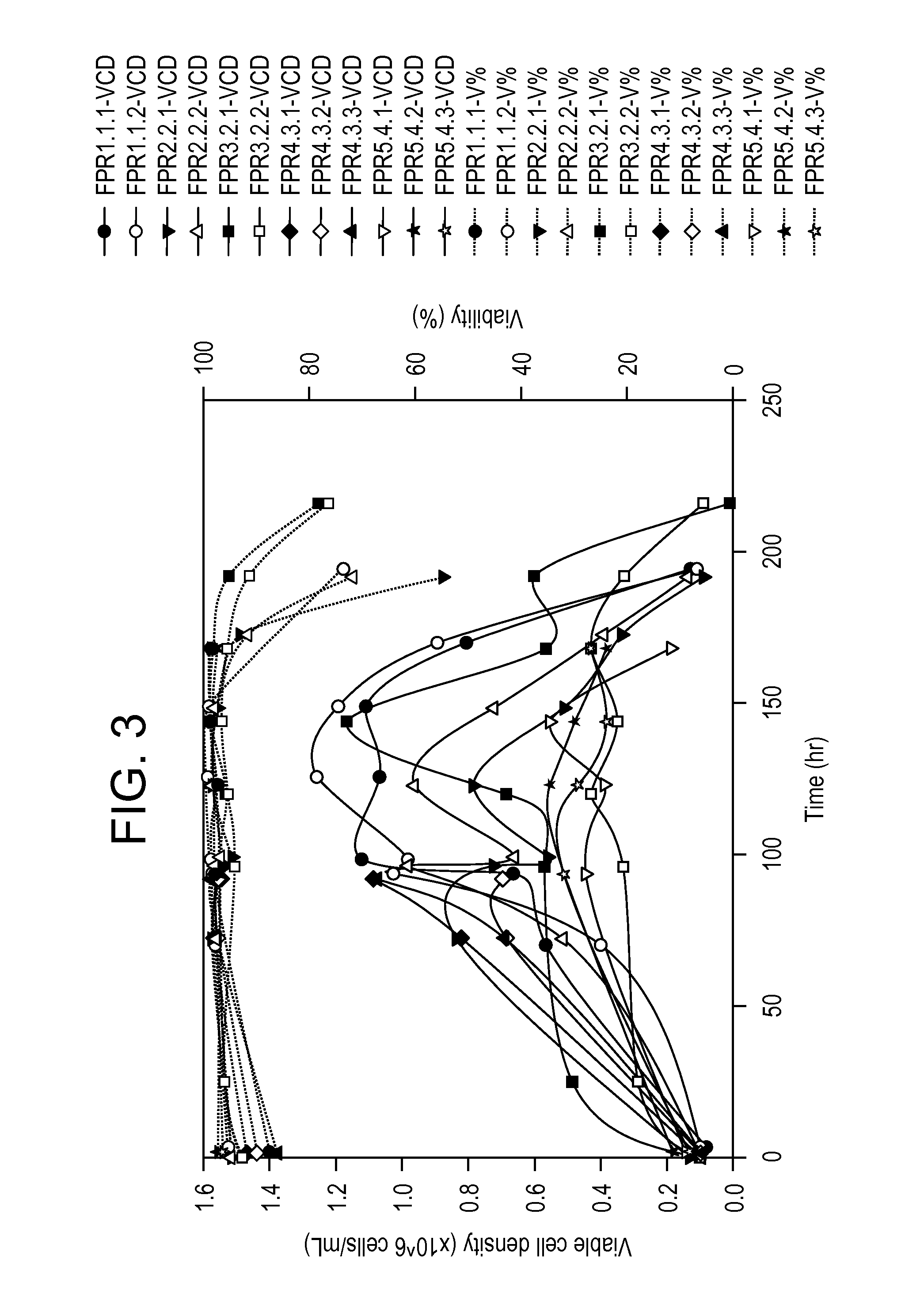Patents
Literature
48 results about "Active immunisation" patented technology
Efficacy Topic
Property
Owner
Technical Advancement
Application Domain
Technology Topic
Technology Field Word
Patent Country/Region
Patent Type
Patent Status
Application Year
Inventor
Active immunization is the induction of immunity after exposure to an antigen. Antibodies are created by the recipient and may be stored permanently. ... Active immunization can occur naturally when a microbe or other antigen is received by a person who has not yet come into contact with the microbe and has no pre-made antibodies for defense.
Active immunization using a siderophore receptor protein
InactiveUS6027736AEasy to produceInhibition capacityAntibacterial agentsBacterial antigen ingredientsADAMTS ProteinsMicrobiology
The invention provides a vaccine for immunizing poultry and other animals against infection by a gram-negative bacteria, and a method of immunizing an animal using the vaccine. The vaccine may contain purified siderophore receptor proteins derived from a single strain or species of gram-negative bacteria or other organism, which are cross-reactive with siderophores produced by two or more strains, species or genera of gram-negative bacteria. The invention further provides a process for isolating and purifying the siderophore receptor proteins, and for preparing a vaccine containing the proteins. Also provided is a method for diagnosing gram-negative sepsis.
Owner:EPITOPIX LLC
Active immunization of AScr for prion disorders
Disclosed are pharmaceutical compositions and methods for preventing or treating a number of amyloid diseases, including Alzheimer's disease, prion diseases, familial amyloid neuropathies and the like. The pharmaceutical compositions include immunologically reactive amounts of amyloid fibril components, particularly fibril-forming peptides or proteins. Also disclosed are therapeutic compositions and methods which use immune reagents that react with such fibril components.
Owner:PROTHENA BIOSCI LTD
Active immunization using a siderophore receptor protein
InactiveUS6432412B1Easy to produceInhibition capacityAntibacterial agentsBiocideADAMTS ProteinsMicrobiology
Owner:EPITOPIX LLC
Use of passive myostatin immunization
InactiveUS20020127234A1Increase in breast muscle and thigh muscle and testis and heart weightPromote growth ratePeptide/protein ingredientsVertebrate antigen ingredientsMyostatinBiomedical engineering
A method to alter the phenotype of animals, e.g., avians, which employs passive and active immunization is provided.
Owner:RGT UNIV OF MINNESOTA
Hapten-carrier conjugates for treating and preventing nicotine addiction
InactiveUS7247502B2Easy to produceImprove the level ofBiocideNervous disorderPassive ImmunizationsCarrier protein
Owner:NABI BIOPHARMLS
Treatment of Alzheimer's disease
InactiveUS20070248606A1Improving immunogenicityEliminate side effectsFungiNervous disorderPassive immunisationDisease cause
Owner:BIOARCTIC NEUROSCI AB
Phosphorylcholine Conjugates and Corresponding Antibodies
ActiveUS20070286868A1Increased and decreased riskSignificant positive effectImmunoglobulins against animals/humansAntibody ingredientsPhosphorylcholineIgm antibody
IgG and IgM autoantibody levels against phosphorylcholine in subjects with hypertension (diastolic pressure>95 mmHg) were determined at baseline in order to determine the importance of antibodies for the development of atherosclerosis. The results show that increases in intima-media thickness (IMT) at a follow-up four years after baseline were significantly less prevalent in subjects having high IgM autoantibodies to phosphorylcholine. The presence or absence of IgM autoantibodies against phosphorylcholine is thus related to an increased or decreased risk of developing ischemic cardiovascular diseases. A method to determine IgM antibodies toward phosphorylcholine is proposed in this invention to identify subjects at risk of developing ischemic cardiovascular diseases. Animal experiments show that medium to high levels of IgM antibodies can be detected in plasma after active immunization with a keyhole limpet hemocyanin (KLH)-phosphorylcholine conjugate. A pharmaceutical composition comprising a phosphorylcholine conjugate (active immunization) or a monoclonal antibody with specificity to a phosphorylcholine conjugate (passive immunization) is proposed and the use of these compositions as active or passive immunogens in the treatment or prevention of atherosclerosis.
Owner:ATHERA BIOTECH
Methods for cultivating cells, propagating and purifying viruses
InactiveUS20100098725A1Increase cell densityHigh viral titersSsRNA viruses negative-senseViral antigen ingredientsCell culture mediaCultured cell
The present invention provides novel serum-free cell culture medium and methods for cultivating MDCK cells. In particular, non-tumorigenic MDCK cells. The present invention also provides methods for producing influenza viruses (e.g., particularly cold-adapted, and / or temperature sensitive, and / or attenuated influenza viruses) that eliminate the need for a cell culture medium exchange step. The novel medium and methods are useful to grow influenza viruses, in cell culture to high titer. The present invention further provides purification methods for purifying influenza viruses with high overall recovery of live virus and result in levels of host cell DNA (HCD), host cell protein (HCP) and non-specific endonuclease (e.g., Benzonase), which are below the specifications required by regulatory agencies. The immunogenic compositions can be used to actively immunize subjects or to generate antibodies for a variety of uses, including passive immunization and diagnostic immunoassays.
Owner:MEDIMMUNE LLC
Aß(X - 38 .. 43) oligomers, and processes, compositions, and uses thereof
InactiveUS20100173828A1High molecular weightAntibacterial agentsBiocidePassive ImmunizationsOligomer
The present invention relates to an Aβ(X-38 . . . 43) oligomer having a high molecular weight, or a derivative thereof, a process for preparing the oligomer or derivative, compositions comprising the oligomer or derivative, and uses of the oligomer or derivative such as its use for treating or preventing an amyloidosis (e.g. by active immunization), for diagnosing an amyloidosis, and for providing agents that are capable of binding to the Aβ(X-38 . . . 43) oligomer or derivative. The subject invention also describes agents that are capable of binding to the Aβ(X-38 . . . 43) oligomer or derivative, e.g. antibodies, compositions comprising the agents, and uses of the agents such as their use for treating or preventing an amyloidosis (e.g. by passive immunization) and for diagnosing an amyloidosis.
Owner:ABBVIE DEUTSHLAND GMBH & CO KG
Th1 vaccination priming for active immunotherapy
ActiveUS20100086561A1Good auxiliary effectMaintaining immune healthAntibacterial agentsBiocideMRD NegativeDisease
The present invention includes vaccine compositions and methods for using these vaccine compositions in active immunotherapy. The vaccine compositions include allogeneic activated Th1 memory cells. The compositions can also include one or more disease-related antigens. The methods include administering the vaccine compositions to provide a Th1 footprint in normal individuals or patients susceptible to disease or having minimal residual disease.
Owner:MIRROR BIOLOGICS INC +1
Methods for purification of viruses
The present invention provides methods for the purification of cell-associated viruses from adherent cells (e.g., MDCK or Vero cells). In particular, the present invention provides purification methods for the production of immunogenic compositions comprising a live attenuated cell-associated virus (e.g., an attenuated respiratory syncytial virus (RSV) or cold-adapted, and / or temperature sensitive influenza virus) that result in levels of host cell DNA (HCD), host cell protein (HCP) and non-specific endonuclease (e.g., Benzonase), which are below the specifications required by regulatory agencies. The immunogenic compositions can be used to actively immunize subjects or to generate antibodies for a variety of uses, including passive immunization and diagnostic immunoassays.
Owner:MEDIMMUNE LLC
Phosphorylcholine conjugates and corresponding antibodies
InactiveUS8012483B2Significant positive effectImmunoglobulins against animals/humansAntibody ingredientsPassive ImmunizationsPhosphorylcholine
Owner:ATHERA BIOTECH
Novel application of vaccination against TNF-alpha
InactiveUS20050180947A1Nervous disorderPeptide/protein ingredientsNeuropathic painActive immunisation
The present invention relates to novel medical applications of down-regulation of tumour necrosis factor α (TNF-α) activity, especially novel applications of active immunization against TNF-a in order to reduce or alleviate pain. In particular, the present invention discloses novel methods for treating or ameliorating neuropathic pain.
Owner:PHARMEXA
GnRH antigen and application thereof in active immunization affecting castration effect and meat quality of oxen
ActiveCN106986923AImproving immunogenicityEnhance antigen immunogenicityVertebrate antigen ingredientsLuteinising hormone-releasing hormoneActive immunizationMale rats
The invention discloses a GnRH antigen and application thereof in active immunization affecting the castration effect and meat quality of oxen. The invention provides a GnRH derivative which is obtained by inserting oligopeptides, which can form alpha helixes, among multiple serially-connected single GnRH antigens, and each single GnRH antigen is a polypeptide obtained by replacing the sixth-site glycine in the amino acid sequence of gonadotropin releasing hormone GnRH with D type lysine. When a GnRH two-string alpha-helix vaccine screened by experiments is used to actively immunize male rats and the oxen, the vaccine can allow the biological activity of testosterone to be partially or completely lost, an immunocastration effect is achieved, a good immunization enhancing effect is achieved, and the carcass quality of immunized animals can be increased to a certain degree.
Owner:XINJIANG ACADEMY OF AGRI & RECLAMATION SCI
Blocking interaction between pathogen factors and factor h to inhibit hemorrhagic syndromes
InactiveUS20100150912A1Antibacterial agentsPeptide/protein ingredientsInhibitory effectActive immunisation
If pathogen factors such as meningococcal NMB 1870 or flaviviral NS1 are able to sequester factor H in the blood then its inhibitory effect on complement may be disturbed, thereby permitting C3 to initiate a dramatic attack on host endothelial tissue. In combination with a strong inflammatory response, this attack can result in sever damage to the endothelium, with resulting hemorrhagic syndrome. Blocking the interaction between pathogen factors and factor H may thus be used to treat and / or prevent these pathogen-induced hemorrhagic syndromes. The interaction may, for instance, be blocked by antibodies, either delivered endogenously (passive immunisation) or produced by a patient's immune system (active immunisation).
Owner:NOVARTIS AG
Genetically modified dendritic cell vaccine
ActiveCN109957548AEfficient DCGenetically modified cellsCancer antigen ingredientsHigh concentrationBULK ACTIVE INGREDIENT
The invention relates to the fields of biotechnology and medicine, and provides a modified dendritic cell (DC); a dendritic cell is infected with MG-7Ag antigen mimic epitope tandem sequences loaded with a lentivirus vector, and a target antigen sequence is integrated into a dendritic cell genome. The invention provides a rapid culture scheme of the dendritic cell derived from a peripheral blood monocyte in vitro, and also provides a vaccine with an active ingredient of the modified dendritic cell. The vaccine is used for tumor prevention and active immunotherapy. The MG-7Ag antigen sequence-modified DC vaccine can obtain high-purity CTL cells and efficient target cell killing ability after DC-CTL co-culture, and the co-culture supernatant contains high-concentration IFN[gamma] secretion.After tumor attack, the tumorigenic volume of mice in a DC-CTL group is significantly smaller than that of mice in a control group, and the DC vaccine has great potential value in immunotherapy of MG-7Ag positive tumor.
Owner:上海尚泰生物技术有限公司
Vaccine composition containing transforming growth factor alpha (TGFalpha). it use in malignant diseases therapy
InactiveUS20030054011A1Prevent proliferationAvoid resistanceBacteriaPeptide/protein ingredientsVaccinationImmunologic function
The present invention relates to the field of immunology and human medicine, in particular with a vaccine preparation able to provoke an immune-castration of self-TGFalpha. The object of this invention is to obtain a vaccine composition for the active immunotherapy of malignant tumors that depend of TGFalpha for its growth. As well as for the treatment of other TGFalpha depend diseases. Another important object of this invention is to obtain a vaccine composition containing a combination of TGFalpha with other EGF-R ligands, such as epidermal growth factor (EGF), able to inhibit the proliferation of tumors whose progression depends on these factors. In that way would be avoided the resistance generated by tumors vaccines containing each molecule for separate, developing tumorigenic phenotype that not depend on the growth factor used in the vaccination. These vaccine preparations are able to inhibit the proliferation of tumors with the characteristics mentioned before, and in this way to be useful in the treatment of malignant neoplasias. Therefore, the invention is also related with the field of specific active immunotherapy of cancer.
Owner:CENT DE INMUNOLOGIA MOLECULAR CENT DE INMUNOLO
Compositions and methods for immunization against drug resistant acinetobacter baumannii
InactiveUS20120301474A1Antibacterial agentsImmunoglobulins against bacteriaPassive ImmunizationsPan drug resistant
The present invention provides vaccine compositions comprising OmpA, or antigenic fragments thereof, and related methods of active immunization against A. baumannii infection. The invention also provides antibodies and antigen-binding parts thereof that specifically bind to OmpA, and related methods of passive immunization against A. baumannii infection. The compositions and methods of the invention are useful for preventing or treating A. baumannii infections, including those caused by strains resistant to carbapenems and all other antibiotics except colistin or tigecycline, also referred to as extreme drug resistant (XDR) A. baumannii infections, and those resistant to every FDA approved antibiotic, also referred to as pan-drug resistant (PDR) A. baumannii infections.
Owner:LOS ANGELES BIOMEDICAL RES INST AT HARBOR UCLA MEDICAL CENT
Outer membrane protein A, peptidoglycan-associated lipoprotein, and murein lipoprotein as therapeutic targets for treatment of sepsis
InactiveUS20030017162A1Increase the gapEfficiently neutralizedAntibacterial agentsBacterial antigen ingredientsOuter membrane protein APeptidoglycan
The present invention relates to three outer membrane proteins conserved among Gram-negative bacteria, OmpA, PAL, and MLP. The invention provides vaccines and polypeptides useful for passive and active immunization against Gram-negative bacteria, as well as methods of preventing and treating Gram-negative sepsis.
Owner:WARREN H SHAW +2
Cytotoxic t-cell epitope peptide and use thereof
Owner:MEDICAL & BIOLOGICAL LAB CO LTD
Methods and compositions for inhibition of egf/egfr pathway in combination with anaplastic lymphoma kinase inhibitors
PendingUS20200046690A1Avoid resistanceOrganic active ingredientsImmunoglobulins against growth factorsDosing regimenEgfr pathway
A method of treating patients suffering from cancers driven by deregulated Human Epidermal Growth Factor Receptor (HER1 / Human EGFR) comprising administering to a patient in need of such treatment a flexible and active regimen for combining Anaplastic Lymphoma Kinase Inhibitors (ALK Inhibitors) and anti-EGF antibodies for inhibition of the pathway activated by EGF-EGFR binding (mAb). The anti-EGF antibodies can be produced by active immunization or provided passively by the administration of antibodies that are anti-EGF. The method comprises ALK Inhibitors administered according to a continuous regimen based on an average daily dose in the range of 10 to 250 mg and the mAb is co-administered either actively or passively according to a dosing regimen achieving a therapeutic effective amount repeated thrice, twice or once a week, once in two weeks, once in three weeks or at least once monthly.
Owner:IN3BIO LTD
Application of escherichia coli succinodehydrogenase iron-sulfur protein SdhB
ActiveCN103301477ANo drug resistanceGood immune protectionAntibacterial agentsPeptide/protein ingredientsPassive ImmunizationsEscherichia coli
The invention belongs to the field of medical technology, and specifically relates to an application of escherichia coli succinodehydrogenase iron-sulfur protein SdhB. According to active immunization and passive immunization tests, the escherichia coli succinodehydrogenase iron-sulfur protein SdhB and the corresponding antibody have an obvious immune protection effect on the infection of clinical pathogenic bacteria of escherichia coli. Therefore, the escherichia coli succinodehydrogenase iron-sulfur protein SdhB and the corresponding antibody can be used for preparing a medicine for preventing and treating diseases caused by the infection of clinical pathogenic bacteria of animal escherichia coli. The medicine does not generate drug resistance and can effectively prevent and treat the diseases caused by the infection of clinical pathogenic bacteria of escherichia coli.
Owner:SUN YAT SEN UNIV
Methods and compositions for inhibition of egf/egfr pathway in combination with tyrosine kinase inhibitors
PendingUS20190358320A1Avoid resistanceOrganic active ingredientsImmunoglobulins against growth factorsDosing regimenEgfr pathway
A method of treating patients suffering from cancers driven by deregulated Human Epidermal Growth Factor Receptor (HER1 / Human EGFR) comprising administering to a patient in need of such treatment a flexible and active regimen for combining a tyrosine kinase inhibitor (TKI) and anti-EGF antibodies for inhibition of the pathway activated by EGF-EGFR binding (mAb). The anti-EGF antibodies can be produced by active immunization or provided passively by the administration of antibodies that are anti-EGF. The method comprises TKI administered according to a continuous regimen based on an average daily dose in the range of 10 to 150 mg and the mAb is co-administered either actively or passively according to a dosing regimen achieving a therapeutic effective amount repeated thrice, twice or once a week, once in two weeks, once in three weeks or at least once monthly.
Owner:IN3BIO LTD
Method for improving laying rate of active immunization of fusion prolactin of a Wulong goose
InactiveCN104645323AImprove nestingIncrease egg productionHormone peptidesPeptide preparation methodsProkaryotic expressionBroodiness
The invention discloses a method for improving laying rate of active immunization of fusion prolactin of a wulong goose. The method comprises the following step: (1) first strand synthesis and amplification of cRNA; (2) building, screening and identifying of a PRL prokaryotic expression vector; (3) inducible expression and crushing of a recombinant PRL protein; (4) SDS-PAGE detection and concentration determination of the recombinant PRL protein; (5) purification and recovery of the recombinant PRL protein; (6) preparation of a recombinant PRL protein injection; and (7) active immunization, observation and recording. The broodiness and the laying rate of the wulong goose can be improved, so that the production performance and the market value of the Wulong goose can be improved.
Owner:SHANDONG SINDER TECH
Tissue-factor-based tumor peptide vaccine as well as preparation method and application thereof
The invention discloses a tissue-factor-based tumor peptide vaccine which is AnsB-TF fusion protein formed after a sequence fragment containing epitope targets in human TF genes is expressed. The invention also discloses a preparation method and application of the tumor peptide vaccine. According to the preparation method, a TF peptide fragment containing epitope targets is connected with an AnsB carrier through a genetic engineering means so as to obtain the tumor peptide vaccine taking tissue factors as target epitopes. The vaccine obtains prevention and treatment effects on tumors through active immunization on TF epitope targets. The active immunization not only can completely block the effect of TF on tumor surfaces, but also can be used for avoiding the trouble of multi-time administration.
Owner:JIANGSU HIGH WIT BIOTECH CO LTD
Polysaccharide vaccine for staphylococcal infections
InactiveCN1708506AAntibacterial agentsOrganic active ingredientsNatural resourceStaphylococcal infections
The present invention relates to compositions of staphylococcal deacetylated poly-N-acetylglucosamine (dPNAG). Deacetylated poly-N-acetylglucosamine can be isolated from natural sources or synthesized de novo. The present invention also relates to the use of deacetylated poly-N-acetylglucosamine as a vaccine to induce resistance to Staphylococcus aureus, Staphylococcus epidermidis, other related coagulase-negative or coagulase-positive staphylococci, and other carrier intracellular Active immunity to infection by organisms attached to loci. The present invention also provides a method for using the antibody targeting deacetylated poly-N-acetylglucosamine, especially a method for inducing passive immunity against similar infections.
Owner:THE BRIGHAM & WOMEN S HOSPITAL INC
Identification of novel IgE epitopes
InactiveCN1926149AImmunoglobulins against animals/humansAntibody medical ingredientsEpitopeHigh affinity antibody
The present invention relates to novel peptide epitopes derived from the CH3 domain of IgE which are recognized by high affinity antibodies that specifically bind IgE. These novel peptides may be used for both active immunization of a subject by administering these peptides to generate high affinity antibodies in a subject, as well as for generating high affinity anti-IgE antibodies in non-human hosts that specifically bind to these regions of IgE for passive immunization of a subject.
Owner:TANOX
IDENTIFICATION OF NOVEL IgE EPITOPES
Owner:TANOX
Methods and pharmaceutical compositions for modulating autophagy
PendingUS20200268837A1Peptide/protein ingredientsImmunoglobulins against animals/humansPharmacometricsFatty acid
Autophagy is typically activated by starvation, allowing cells and organisms to mobilize their energy reserves. It is known that pharmacological modulation of autophagy represents a therapeutic potential. Here the inventors report that a protein that is released from cells in an unconventional, autophagy-dependent manner, namely, diazepam binding inhibitor (DBI), regulates autophagy. In particular, the inventors demonstrate that DBI inhibits autophagy and that the supply of recombinant DBI to mice enhanced glycolysis, enhanced lipogenesis, and inhibited fatty acid oxidation. The inventors show that neutralisation of DBI by a monoclonal antibody and an active immunization by means of an immunogenic DBI derivative eliciting autoantibodies induce autophagy and lead to metabolic changes that increase starvation-induced weight loss, reduce food intake upon refeeding, and reduce weight gain in response to hypercaloric diets. Accordingly, the present invention relates to methods and pharmaceutical compositions for modulating autophagy based on the modulation of the activity or expression of DBI.
Owner:INST NAT DE LA SANTE & DE LA RECHERCHE MEDICALE (INSERM) +3
Methods for purification of viruses
Owner:MEDIMMUNE LLC
Features
- R&D
- Intellectual Property
- Life Sciences
- Materials
- Tech Scout
Why Patsnap Eureka
- Unparalleled Data Quality
- Higher Quality Content
- 60% Fewer Hallucinations
Social media
Patsnap Eureka Blog
Learn More Browse by: Latest US Patents, China's latest patents, Technical Efficacy Thesaurus, Application Domain, Technology Topic, Popular Technical Reports.
© 2025 PatSnap. All rights reserved.Legal|Privacy policy|Modern Slavery Act Transparency Statement|Sitemap|About US| Contact US: help@patsnap.com


